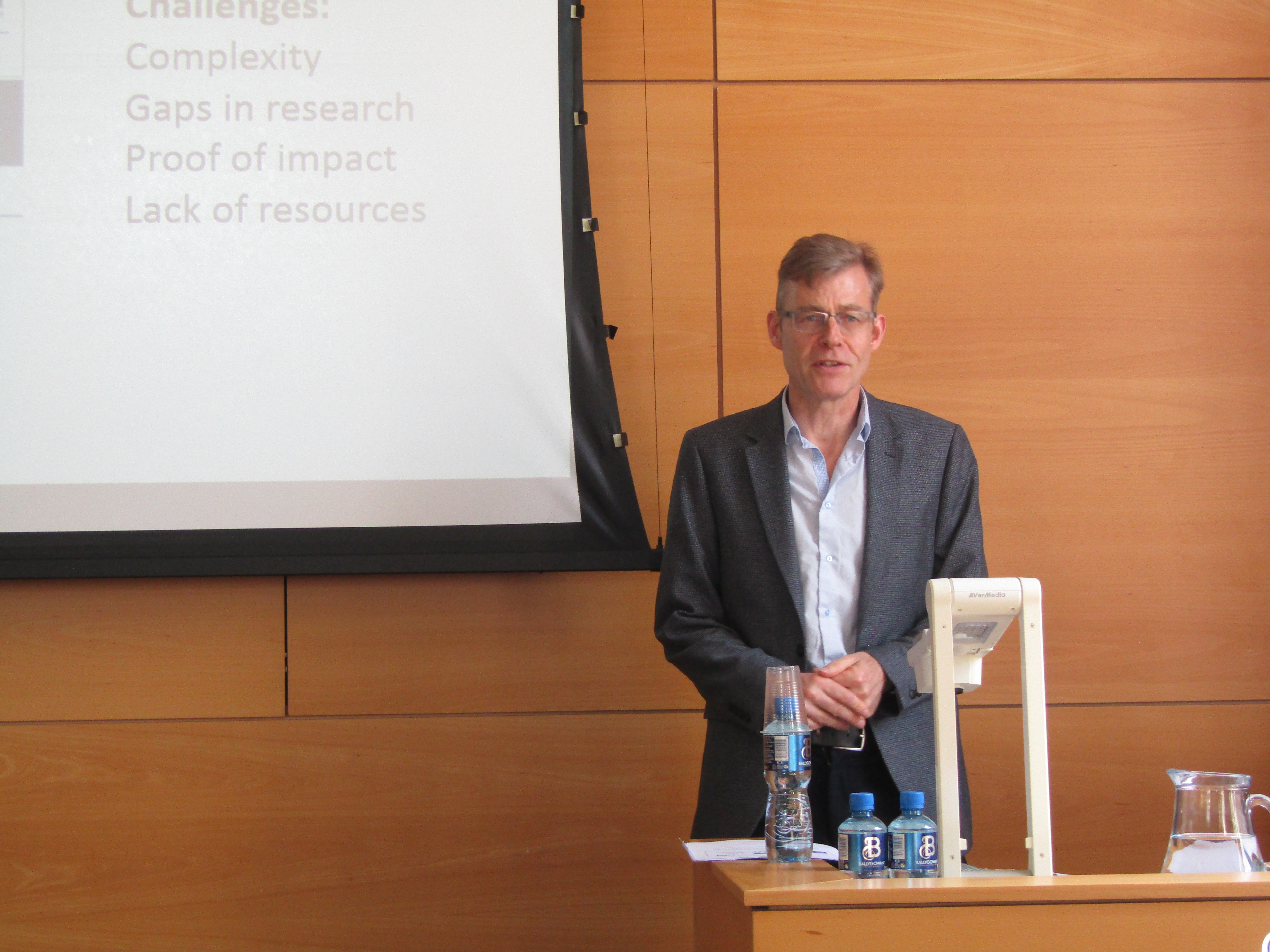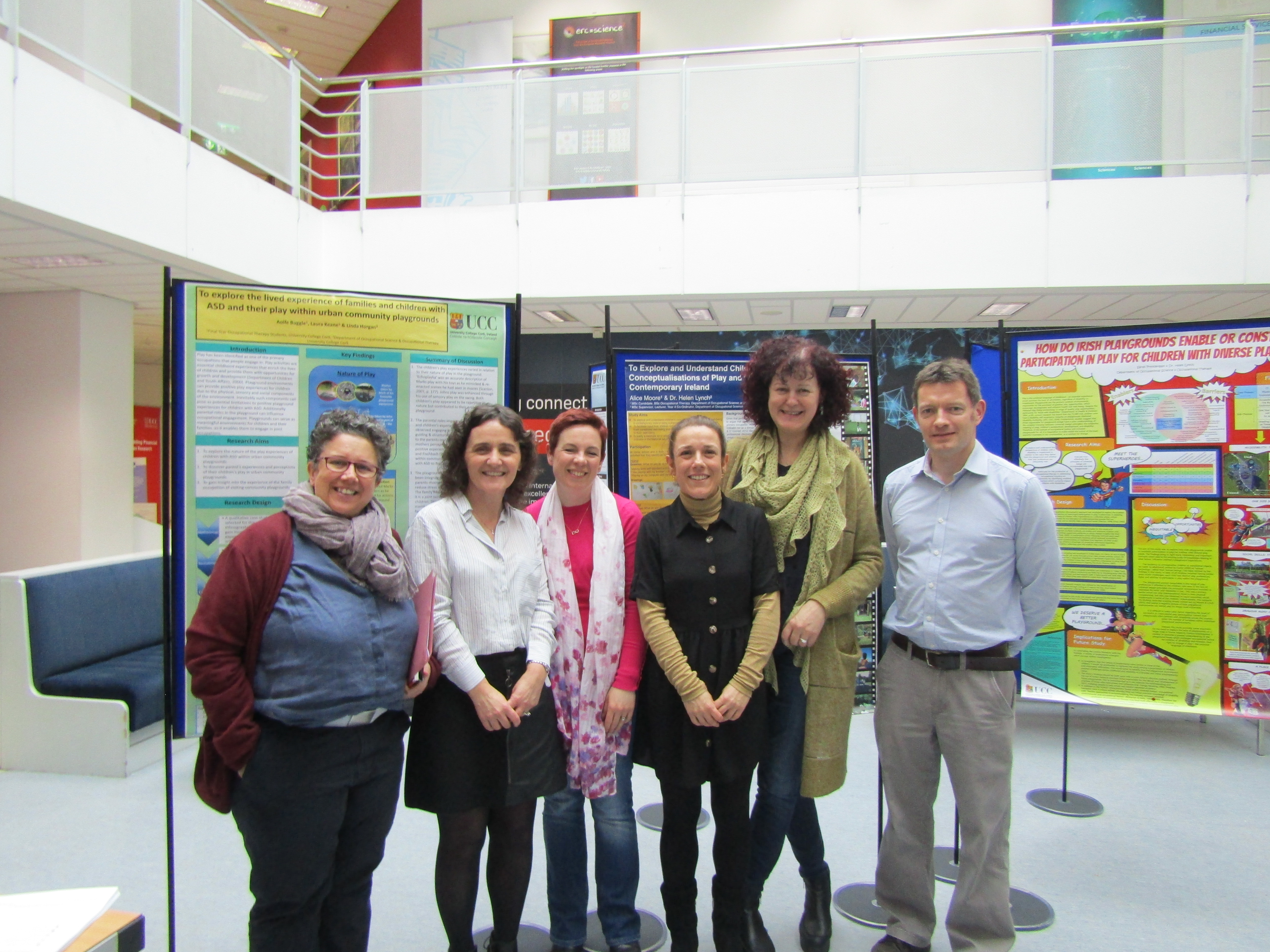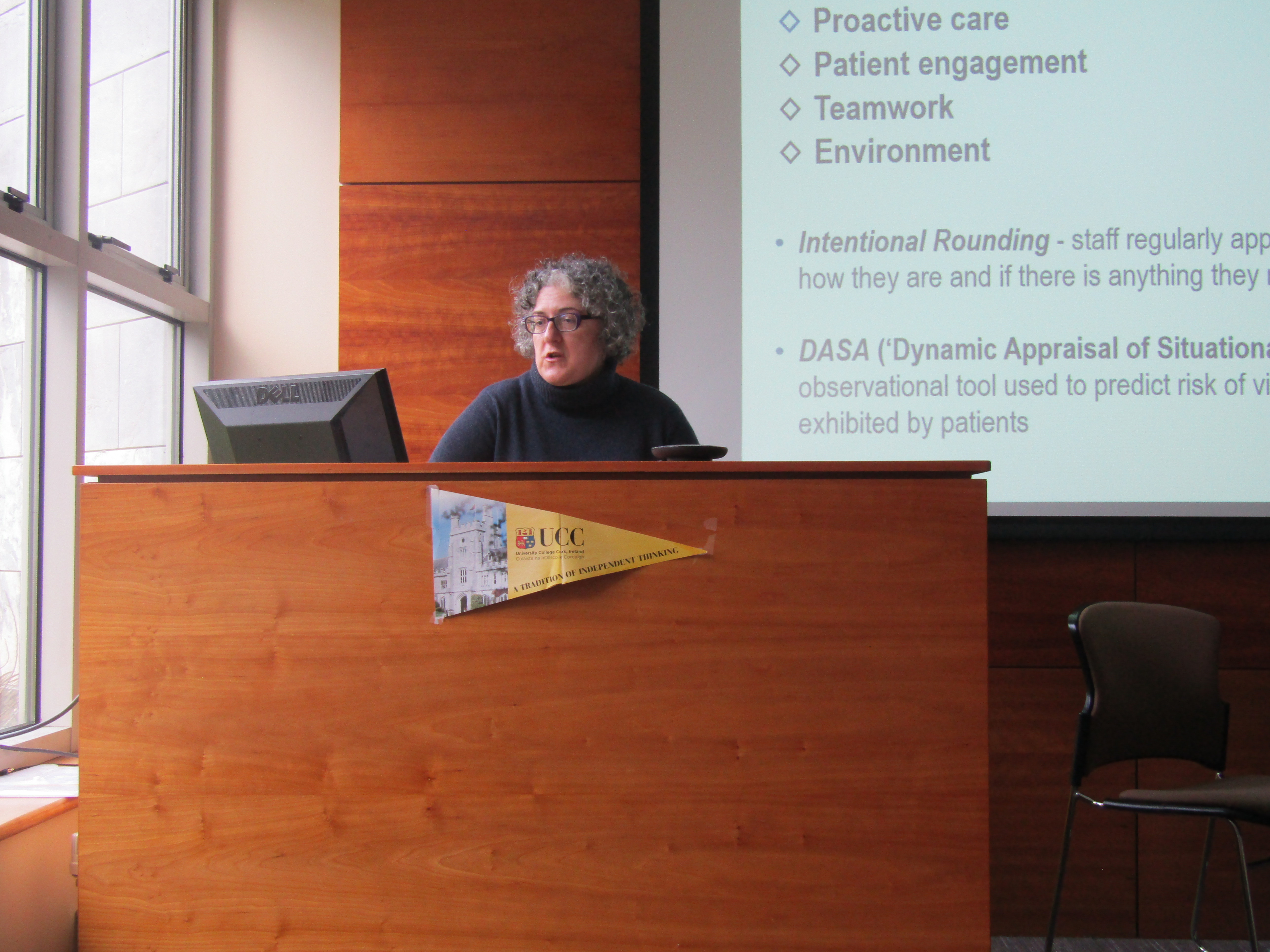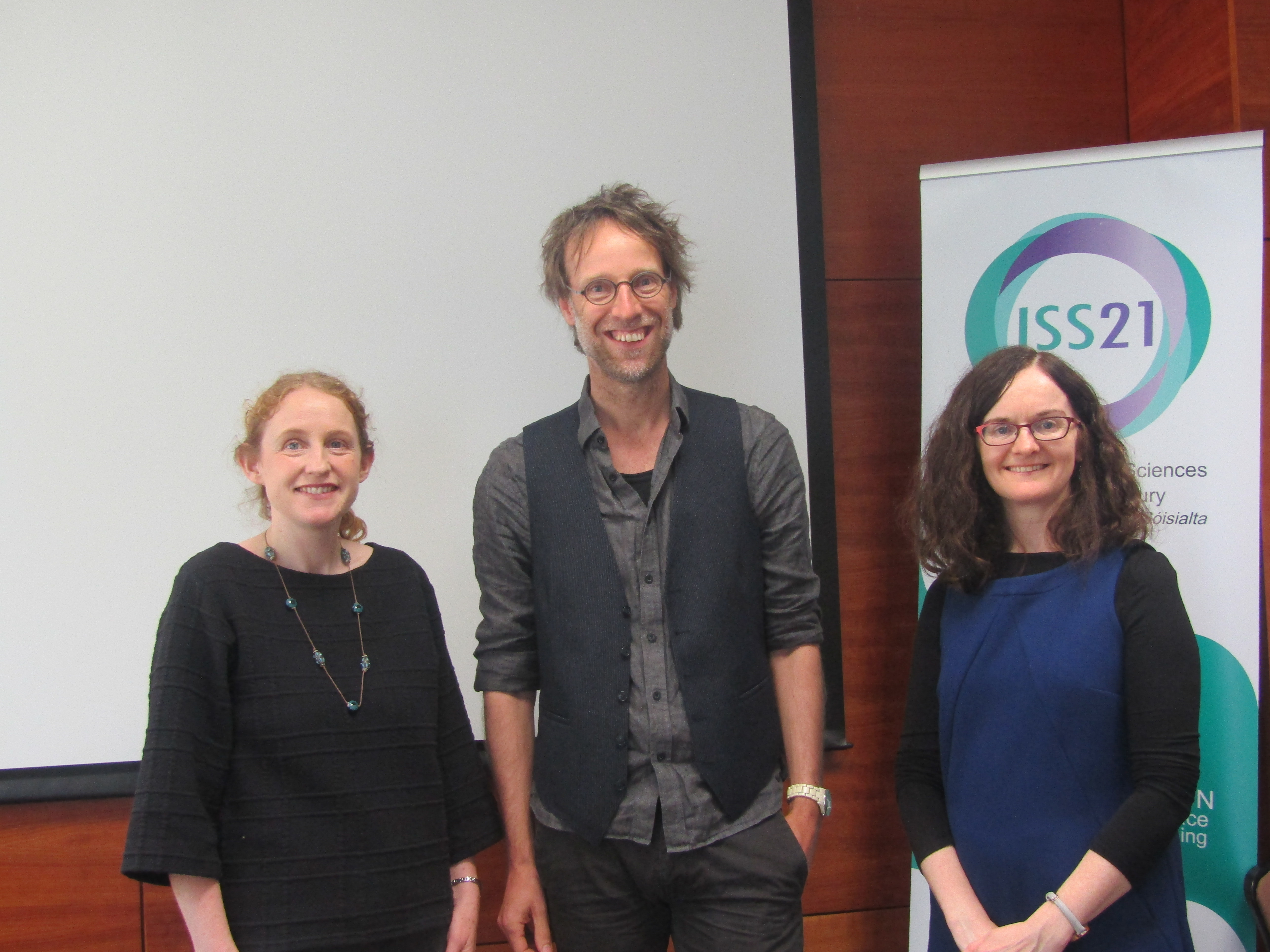The ISS21 SHAPE Research Cluster is delighted to announce a series of Bus Stop Chats, to be held online from December 2025 to April 2026.
Read moreIn This Section
- Home
- About Us
- Research
- Research Clusters & Working Groups
- Ageing
- Children and Young People
- Research for Civil Society, Environment and Social Action (REACT)
- Genders, Sexualities and Families
- Disability and Mental Health
- SHAPE
- CARE21
- Migration and Integration
- Poverties, Social Justice and Inequalities
- Gender and the Academy Research Working Group
- Crime and Social Harm (CSH)
- Populism and the Rise of the Far-right
- Work, Organisations and Welfare
- TRANSS UCC Working Group
- News and Events
- People
- Events
- Join Us
-
SHAPE Research Cluster Bus Stop Chats
.png)
-
PhD Positions in Migration Studies
.png)
15 fully-funded PhD positions in migration studies available in 7 universities as part of MITIME Doctoral Network
Read more -
ISS21/CSF Adjunct Professor Máiréad Dunne Delivers Global Keynote at Gender, Education and Work Conference
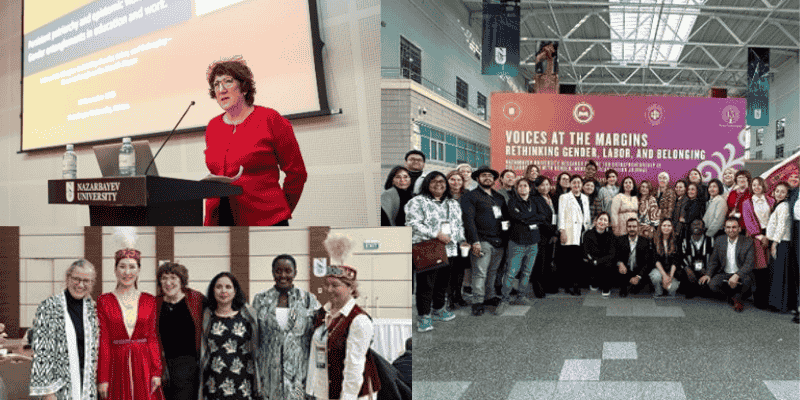
Adjunct Professor Máiréad Dunne, ISS21-CSF recently gave the keynote address entitled ‘Persistent patriarchy and epistemic violence: gender entanglements in education and work’ to the ‘Voices from the Margins: Rethinking Gender, Labor and Belonging conference in Nazarbayev University, Astana, Kazakhstan.
Read more -
The TARA Project hosts initiatives showcase event
16 Dec 2025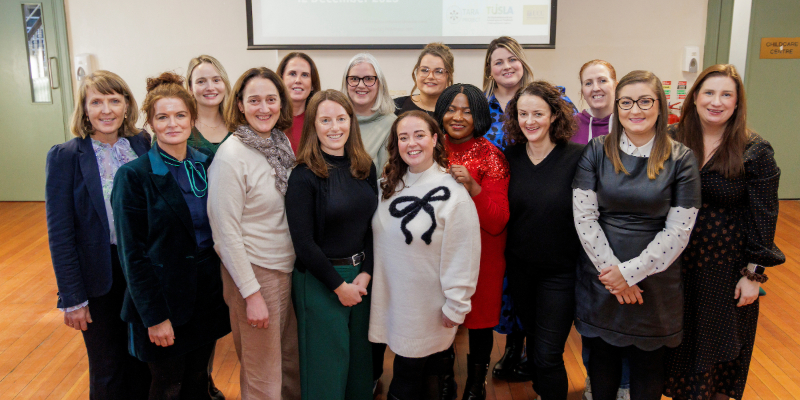
The Initiatives Showcase Event highlighted learning and practice developments from the TARA project.
Read on ucc.ie -
Collective Social Futures Festival of Social Science
.png)
The third annual Festival of Social Science brought together researchers, practitioners and artists for a range of events that showed the breadth of social inquiry taking place across the university.
Read on ucc.ie -
A look back at UCC Futures - Collective Social Futures Festival of Social Science 2025

Thank you to everyone who made the UCC Futures – Collective Social Futures third annual Festival of Social Science such a resounding success. Multiple events were held on campus over several days celebrating the social sciences.
Read more -
Populism and the Rise of the Far Right
01 Dec 2025
On 1 December, ISS21 hosted a panel discussion to explore the rise of the far right in Ireland and internationally.
Read more -
First “Getting Going with Health Impact Assessment” Event in Ireland
06 Nov 2025.png)
On 6th November around 60 people attended the first “Getting Going with Health Impact Assessment” knowledge translation event across the island of Ireland.
Read more -
Collective Social Futures Festival of Social Science - registration open
03 Nov 2025.png)
We have a wonderful line-up of contributors and events taking place over the week Monday 24 November - Friday 28 November.
Read more -
"Make America Healthy Again!" Biopolitics, Geopolitics and Ideals of Recovery in the Second Trump Regime
28 Oct 2025
On 28 October, Professor Elizabeth Bernstein, Chair of Women’s, Gender, & Sexuality Studies and Professor of Sociology at Barnard College, Columbia University (USA) visited UCC for a talk titled: "Make America Healthy Again!" Biopolitics, Geopolitics and Ideals of Recovery in the Second Trump Regime.
Read more -
Global & Comparative Perspectives on Gender-Based Violence Seminar
20 Oct 2025
Last week, a seminar titled Global & Comparative Perspectives on Gender-Based Violence took place in the Dora Allman Room in The Hub at UCC.
Read more -
From Lived Experience to Collective Shared Wisdom
24 Sep 2025.png)
Seminar hosted by the ISS21 Disability and Mental Health Cluster in which Sinead Pierce (Peer Support Worker, HSE & Lived Experience Informed Educator) explored the use of experiential knowledge in third level teaching and practice.
Read more -
Informing Decision-making with HIA Evidence: Theory and Reality
18 Sep 2025.png)
Hosted by the ISS21 SHAPE Research Cluster and the School of Public Health, this seminar critically examined the theory and reality of decision-making with Health Impact Assessment evidence.
Read more -
ISS21 Disability & Mental Health Research Sharing Event
19 Sep 2025.png)
On Friday 19 September the ISS21 Disability and Mental Health Research Cluster hosted a meet and greet event at which colleagues from across UCC shared their research/research interests in this field.
Read more -
Rethinking Research Sharing Practices: Ageing, Reclaiming the Personal and Artificial Intelligence
12 Sep 2025
Co-hosted by the ISS21 Ageing Research Cluster & UCC Futures - Ageing and Brain Science, this symposium explored the shift towards greater public engagement in research, and the implications of sharing scientific methods and tools. In the keynote address, Regius Prof. Rose Anne Kenny (Trinity College Dublin) shared findings from the longitudinal TILDA study.
Read more -
Dr Julius-Cezar Macarie's project NIGHTWORK_FOOTPRINT receives Research Ireland Pathway Programme award
30 Jun 2025
Congratulations to Dr Julius- Cezar Macarie, Department of Sociology & Criminology, Collective Social Futures and ISS21, one of six early stage researchers at UCC to receive a Research Ireland Pathway Programme award announced last week by Minister for Further and Higher Education, Research, Innovation and Science, James Lawless TD.
Read more -
UCC to partner on PhD programme in mobility and migration
03 Jul 2025
- MITIME is an interdisciplinary PhD Programme focusing on mobility, migration, and societal transformation.
- University College Cork is one of seven UNIC universities and ten civil society partners brought together in this programme consortium.
- Funded by the Marie Skłodowska-Curie Actions (MSCA) Doctoral Networks Call, the programme will recruit 15 PhD students across the consortium, two of whom will be registered at UCC.
-
Migration, Place/making and Belonging Conference
05 Jun 2025.png)
The ISS21 Migration and Integration Research Cluster hosted a two-day conference on the themes of migration, place/making and belonging on 5-6 June 2025.
Read more -
Community or Custody?
02 May 2025.png)
Seminar hosted by the ISS21 Crime and Social Harm Research Cluster.
Read more -
Marketisation of Care: Current and Emerging Approaches
04 Apr 2025
On Friday 4th April the ISS21 SHAPE and CARE21 research clusters hosted a seminar on the marketisation of care and emerging approaches to care.
Read more -
The Potential and Pitfalls of Lived Experience - Theoretical & Practical Reflections
01 Apr 2025.png)
ISS21 was delighted to host a one-day symposium with invited keynote speakers and round table discussions with colleagues from UCC.
Read more -
Populism and the Rise of the Far Right
28 Mar 2025.png)
A well-attended panel discussion on Populism and the Rise of the Far Right was held on 27th March, as part of Refugee Week at UCC 2025.
Read more -
Problematising the ‘Man Problem’ in the Domestic Abuse Act: Discursive Co-Option
26 Mar 2025.png)
We were delighted to welcome Dr Sharron FitzGerald (University of Paris 8) to UCC on 26 March, for a seminar hosted by the ISS21 Genders, Sexualities and Families Research Cluster and UCC Futures - Collective Social Futures.
Read more -
The Palestine Exception
21 Mar 2025.png)
A public screening of The Palestine Exception was held in UCC on Friday 21st March. We were delighted to welcome Prof Jan Haaken, one of the film's directors, to the screening.
Read more -
Jumping Generations - Revisited
12 Mar 2025.png)
Keynote talk by Professor Iris van der Tuin, Utrecht University
Read more -
Growing Up in Ireland
26 Feb 2025.png)
On 26 February Dr. Eoin McNamara (Department of Children Equality Disability Integration and Youth) presented a workshop on the Growing Up In Ireland (GUI) study methodology and data set.
Read more -
Decentering the Study of Migration
20 Feb 2025.png)
This panel discussion event addressed critical questions about current trends and historical legacies in contemporary migration scholarship and research.
Read more -
The Social Pathologies of Contemporary Civilization conference “Enduring the Social Pathologies of (Late) Modernity: From Diagnosis towards Metanoia”
11 Feb 2025ModernityFromDiagnosistowardsMetanoiaâ(1).png)
A call for papers for the Social Pathologies of Contemporary Civilization conference “Enduring the Social Pathologies of (Late) Modernity: From Diagnosis towards Metanoia” is underway. The conference will take place in December 2025 at UCC.
Read more -
Enabling Diverse Student Voice - report launch
10 Jan 2025
On 10 January an event was held to mark the launch of the final report of the Enabling Diverse Student Voice research project, a joint project of Access UCC and ISS21. The event showcased UCC’s unique Access Student Ambassador Advisory Group initiative as an example of good practice in enabling diverse student voices to be heard in university structures.
Read more -
Imaging/imagining Reproductive Crisis
09 Dec 20242.png)
In this workshop Dr Rebecca Close explored the entanglements between images and imaginations of the so-called fertility crisis as constitutive of the epistemic, affective and political investments that determine how societies manage reproductive capacities and practices.
Read more -
Dementia Lifeworlds Symposium
05 Dec 2024
The first Dementia Lifeworlds Symposium took place on Wednesday 29th November at UCC and was an occasion for the research project team to bring ideas on the table, to explore and establish common ground, and to share interests and ideas.
Read more -
Making Space for Play in Irish Schoolyards
28 Nov 2024.png)
At a seminar held on 28 November, Dr. Michelle Bergin presented a paper on the “Making Space for Play in Irish Schoolyards” project, which aims to evaluate existing provision for children’s right to play in diverse schoolyards and to inform how we can support schools to create conditions for all children to play. The seminar was hosted by the ISS21 Children and Young People Research Cluster & UCC Futures – Children.
Read more -
So much change in academia: and yet how much?
19 Nov 2024
On 19th November, ISS21 Genders, Sexualities & Families research cluster and MA Women’s Studies in association with UCC Futures – Collective Social Futures presented a talk by Pat O’Connor, emeritus Professor of Sociology and Social Policy, University of Limerick, and Visiting Professor, Geary Institute, University College Dublin.
Read more -
Launch of EUROBORDERWALKS Project at UCC
18 Nov 2024.png)
The EUROBRODERWALKS project was officially launched with a series of events, including a keynote talk by Prof Mimi Sheller.
Read more -
Mobility Justice and the Changing 'Power-Geometries’ of European Borders
18 Nov 2024
On 18 November Professor Mimi Sheller presented a paper on migration, mobility justice and borders as part of the launch of EUROBORDERWALKS project. This three-year project is led by Professor Maggie O'Neill and funded through the IRC Advanced Laureate Awards programme.
Read more -
‘First, Do Good’: Critical and Creative Responses to Iatrogenic Harm in Mental Health Practices
08 Nov 2024
The 16th Annual Critical Perspectives in Mental Health Conference took place on 8th and 9th November at Brookfield Health Sciences Complex.
Read more -
Queer Justice: Violence, Victimization, and Protection in LGBT+ Communities
05 Nov 2024
The first symposium, hosted by the ISS21 research cluster Crime and Social Harm (CSH) in association with the Department of Sociology and Criminology, UCC, took place on Tuesday, November 5th.
Read more -
Book Launch and Webinar: Teaching and Learning in Ecosocial Work: Concepts, Methods and Practice
16 Oct 2024
On 16 October a webinar was held to launch Teaching and Learning in Ecosocial Work: Concepts, Methods and Practice. This groundbreaking book redefines how we approach education, the environment and sustainability in social work and the social professions. This book addresses the urgent need for an ecosocial and ecocentric approach in teaching, learning and practice, addressing the complexities of an ever-changing global landscape.
Read more -
Open Clasp Theatre Company screening of Mycelial at UCC
30 Oct 2024-1.png)
Mycelial an Open Clasp Theatre Company Film written by Catrina McHugh and directed by Laura Lindlow, co-created with sex worker activists in Ireland, the UK and New Zealand was screened in The Shtepps on Thursday 24th October.
Read more -
UCC Futures - Collective Social Futures & ISS21 hold well attended Volunteering Research and Practice in Ireland report seminar
17 Oct 2024.png)
UCC Futures – Collective Social Futures and ISS21 were pleased to hold a seminar yesterday on Volunteering Research and Practice in Ireland.
Read more -
Knowledge is Power: Justice Education as a Liberatory Practice
09 Oct 2024
We were delighted to welcome Romarilyn Ralston, Senior Director of the Justice Education Center at Claremont Colleges, to present this seminar.
Read more -
Home-making and Gender in Contemporary Chinese Migration: The Case of Highly Educated Female Migrants in Shenzhen, China
07 Oct 2024Happening On 16/10/2024.png)
Join us for an ISS21 Lunchtime Research Seminar, jointly hosted by ISS21 Migration & Integration and ISS21 Genders, Sexualities and Families Research Clusters.
Read more -
Call for submissions for 2nd Annual UCC Futures - Collective Social Futures, Festival of Social Science Conference
02 Oct 2024Happening On 26/11/2024
The 2024 Festival of Social Science (CSF) will launch on 25th November with an evening of music, spoken word and performance in The Shtepps, followed by a full-day CSF conference on 26th November in the Aula Maxima.
Read more -
Seminer hosted by ISS21 Disability & Mental Health Cluster: 'Mad Studies and an Ethic of Unruliness'
18 Sep 2024.png)
A seminar hosted by the ISS21 Disability & Mental Health Cluster, UCC Futures - Collective Social Futures and the School of Applied Social Studies took place this week at UCC.
Read more -
Book Launch - The making of a left-behind class: educational stratification, meritocracy and widening participation
13 Sep 2024.png)
Professor Diane Reay, University of Cambridge gave the keynote address at the launch of an important new book by the ISS21 REACT Cluster and UCC – Collective Social Futures on Thursday 12th September.
Read more -
PhD Studentship focusing on care and care relations available for January 2025
12 Sep 2024
A PhD Studentship focusing on care and care relations in contemporary society is available at UCC from January 2025. The studentship will be hosted by ISS21 (Institute for Social Science in the 21st Century), in conjunction with the School of Applied Social Studies. Deadline for applications is Friday 8th November 2024.
Read more -
Seminar: Tide players surf the currents: Twenty years of the development of health impact assessment in Australia
11 Sep 2024Happening On 17/09/2024
-
Feminist Walk of Cork, 27th July
27 Jul 20243678(1).jpeg)
The Feminist Walk of Cork explores rich contributions of women and women led organisations. Members of the public are invited to take a winding walk across Cork city. There are no monuments to women in Cork city; the walk writes women into the spaces and topography of the city.
Read more -
Report Launch: Pathways towards Stable Housing for Parents & Children Exiting Residential Services
18 Jun 2024
This seminar reported on the findings of the project Pathways towards Stable Housing for Parents & Children Exiting Residential Services.
Read more -
Dr Katharina Swirak - Joint Winner of Engaged Research Award 2023
10 Jun 2024.png)
Congratulations to Dr Katharina Swirak, Department of Sociology and Criminology, Joint Winner of the Engaged Research of the Year Award at the recent UCC Research and Innovation Awards 2023.
Read more -
ISS21 Visiting Speaker, Dr. Iva Šmídová, Masaryk University, will hold three research seminars at UCC in June
28 May 2024.png)
Please join us for any or all of the following research seminars:
Perinatal loss: challenging the norms in the Czech context
Institutions of Ageing Men: Relations of Power, Care, and Lack of Them
Intersectionality - Beyond gender relations in researching men as men
Read more -
Designing Kind Educational Practices Workshop
29 May 2024
Visiting research fellow, Dr Wajeehah Aayeshah (University of Melbourne), ran a workshop on 'Designing Kind Educational Practices on 29th May.
Read more -
The State of Play - UNCRC, Article 31
23 May 2024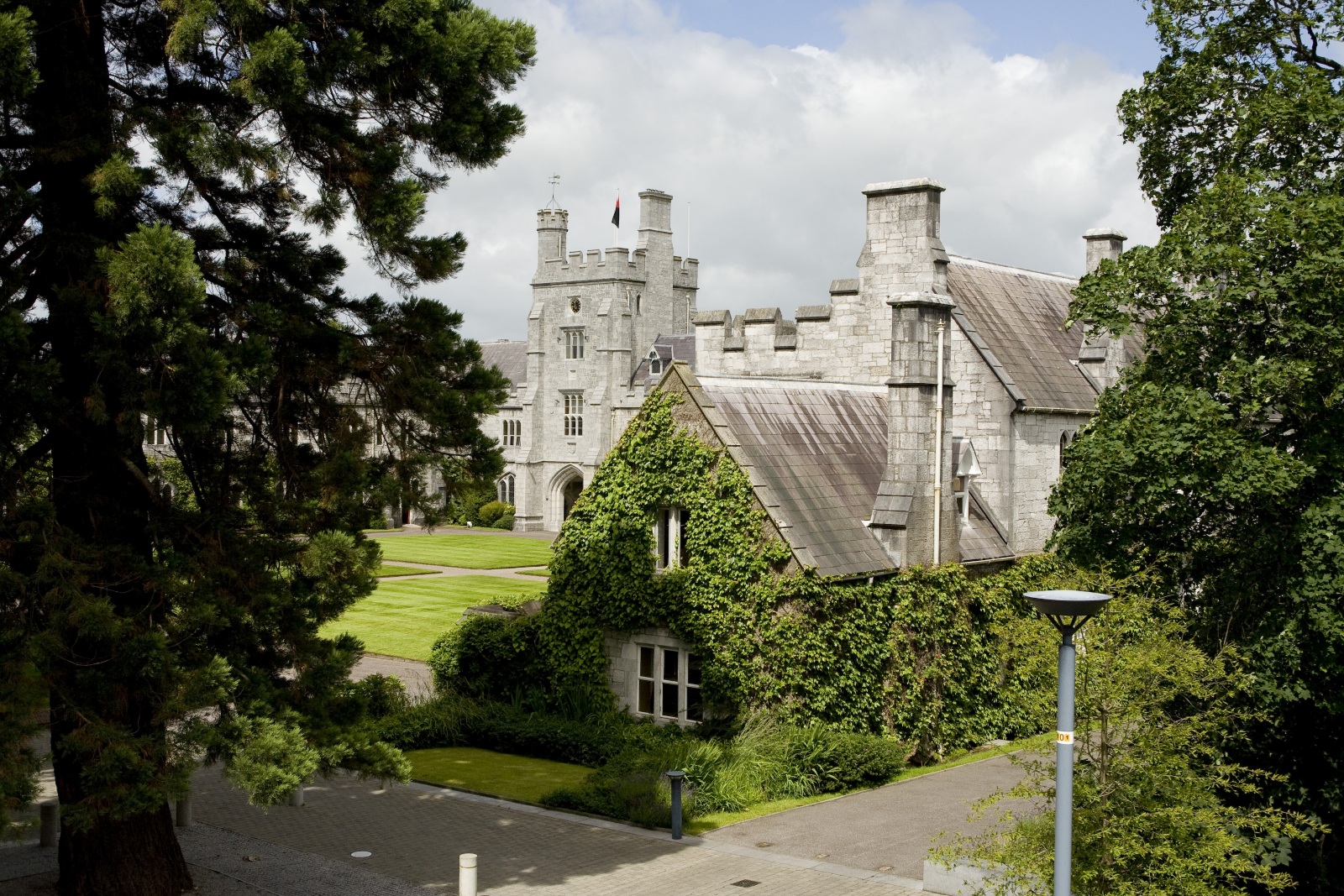
On Friday 23rd May, the UCC Futures: Children Cluster, in collaboration with the ISS21 Children and Young People Research Cluster and the P4Play Joint Doctoral Network Programme, welcomed Theresa Casey and Marguerite Hunter Blair to discuss the background of General Comment No. 17 and a Scottish perspective on incorporating the right to play in Scottish law in 2024.
Read more -
Prof Andrew Cottey, UCC's Dept of Government & Politics, Inaugural Lecture
23 May 2024
Professor Andrew Cottey, Department of Government & Politics recently gave his inaugural lecture in the Dora Allman room at UCC.
Read more -
Perspectives of hearing children of deaf parents & their exposure to deafness stigma
10 May 2024
The ISS21 Children and Young People Research Cluster in collaboration with UCC Futures: Children Cluster, hosted a seminar with Dr Noel O’Connell, to present on the CODA (Children of Deaf Adults) Project.
Read more -
Examining the effects of Graduate Trauma-informed Practice Education on Child Welfare Professionals
19 Mar 2024
In this webinar Dr Maria Lotty presented the findings of Phase 1 of the TARA project, a study that evaluated the effects of a UCC graduate level trauma-informed care program developed for child welfare professionals.
Read more -
PhD Studentship in care research available from October 2024
01 May 2024
A PhD Studentship focusing on care and care relations in contemporary society is available at UCC from October 2024.
Read more -
The Evolution of Health Impact Assessment in Wales
23 Apr 2024
The focus of this seminar was on the experience of Wales over more than 20 years in institutionalising HIA across local and national policy development, with examples of HIAs on city development planning, climate change, and Brexit.
Read more -
Care Co-operatives Research Report Launch
22 Mar 2024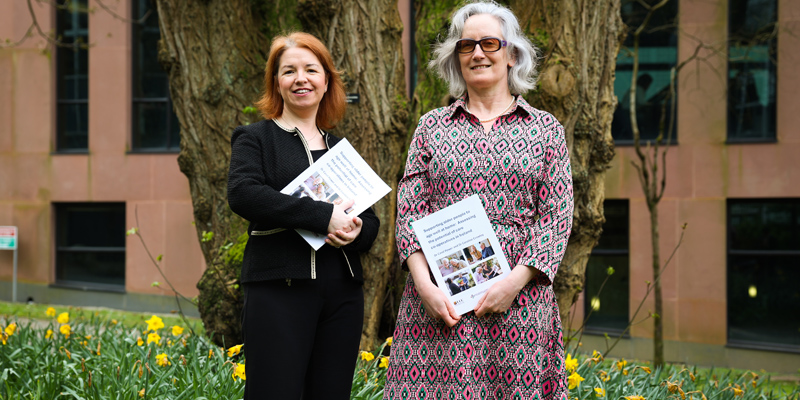
On 22 March 2024 the Centre for Co-operative Studies and ISS21 hosted a launch for the report: Supporting Older People to Age Well at Home: Assessing the Potential of Care Co-operatives in Ireland, by Dr Carol Power and Dr Caroline Crowley.
Read more -
Migrant "crisis" in the Mediterranean? Perspectives from Italy, 5 March 2024
05 Mar 2024
On 5 March 2024 the ISS21 Migration and Integration Cluster and the Department of Italian UCC hosted a seminar with guest speakers Angela Caponnetto and Prof. Nando Sigona.
The seminar was followed by a reception to launch two books:
Invisible Migrant Nightworkers in 24/7 London (JC Macarie)
Migration and Home: IMISCOE Short Reader (M. Fathi & C. Ní Laoire)
Read more -
Debating the Referendum: Family, Care and the Constitution
29 Feb 2024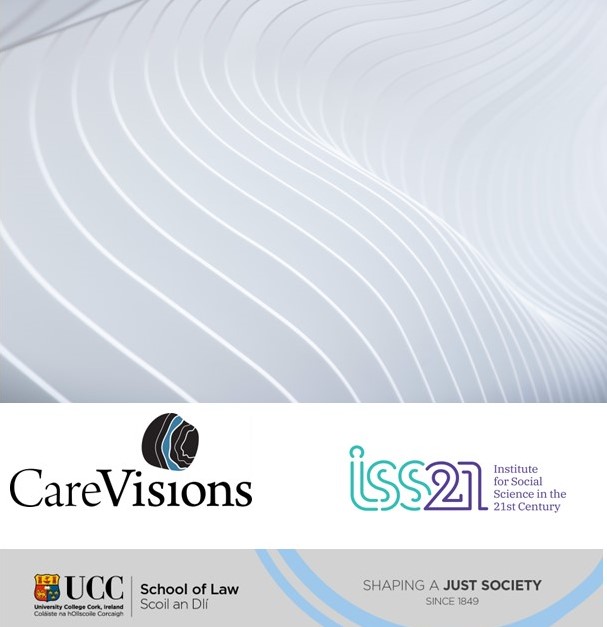
A public event on the 8 March referendum to change the Irish Constitution was hosted by the Centre for Children’s Rights & Family Law and CareVisions research project, ISS21, University College, Cork.
Read more -
UCC Refugee Week 2024
19 Feb 2024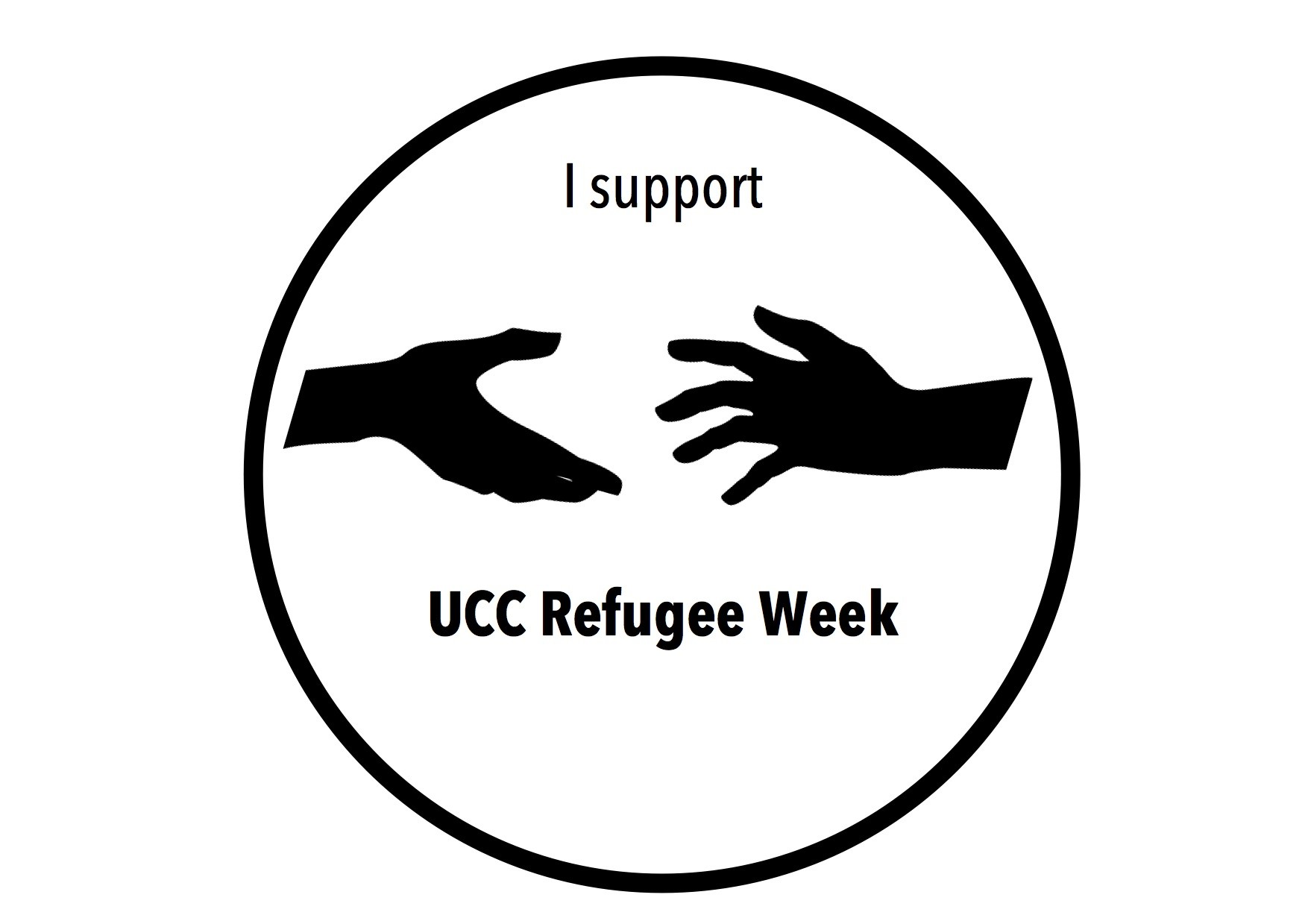
ISS21 was proud to be associated with a number of events as part of UCC Refugee Week 2024 (Feb 19-24).
Read more -
Rattlesnake – addressing coercive control in intimate partner relations
14 Feb 2024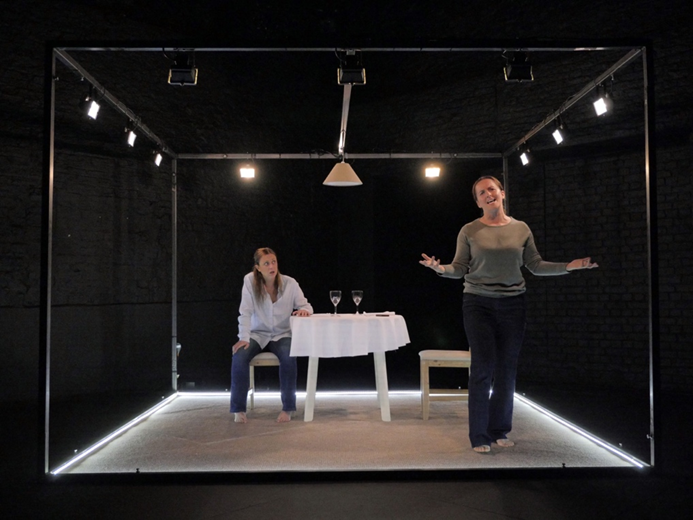
On 14 February the Sexual Violence Centre Cork Community Hub in collaboration with UCC Futures: Collective Social Futures ISS21 and the Violence, Conflict and Gender research cluster screened Rattle Snake followed by a Q&A with Mary Crilly and Prof. Maggie O’Neill UCC to honour ‘V-day’ which is “a global activist movement to end violence against all women (cisgender, transgender, and those who hold fluid identities that are subject to gender-based violence), girls and the Earth”.
Read more -
Three projects funded under Collective Social Futures Interdisciplinary Research Funding Scheme
12 Feb 2024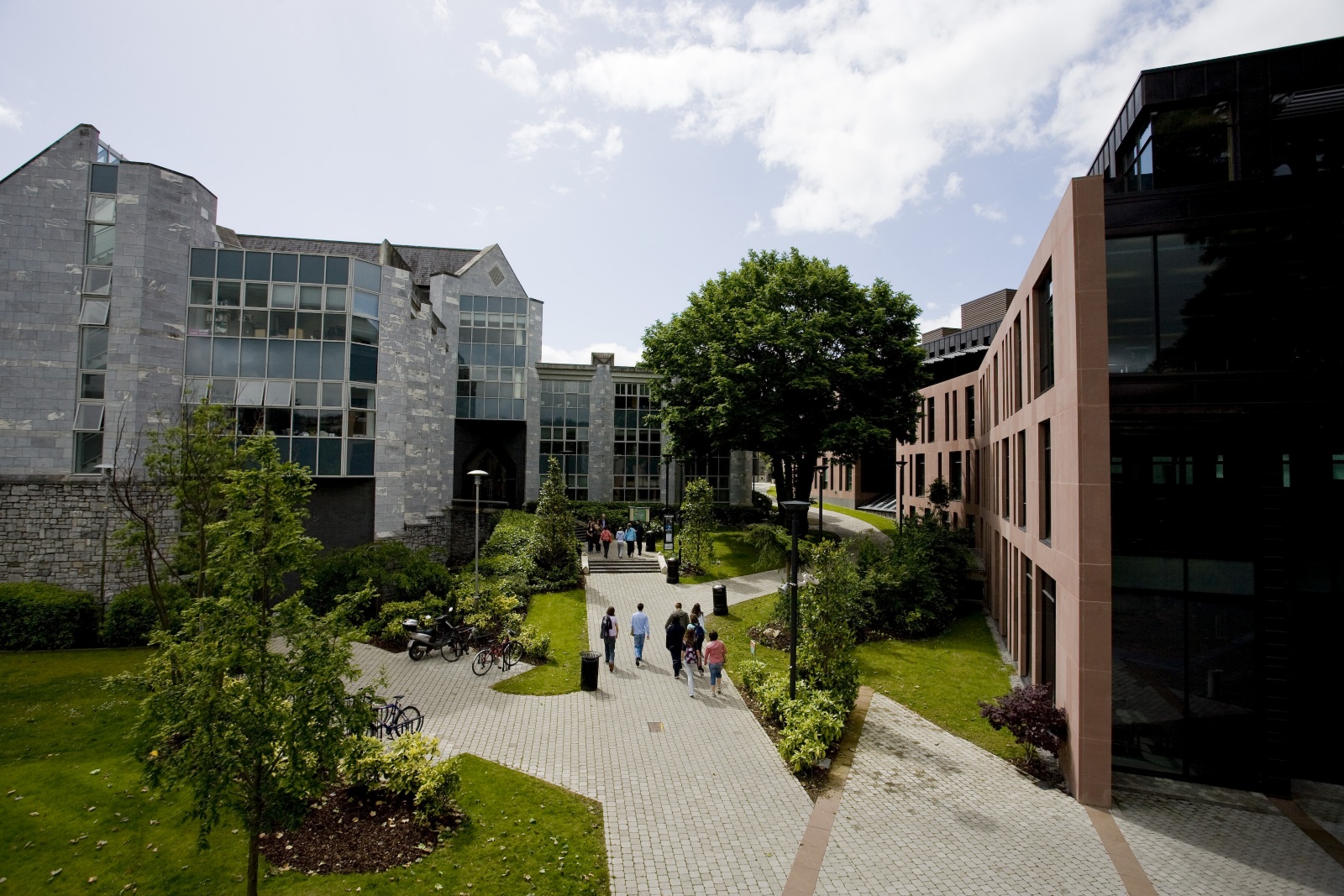
Three projects recently received seed-funding under the UCC Futures - Collective Social Futures Interdisciplinary Research Funding Scheme.
Read more -
Report Launch
25 May 2023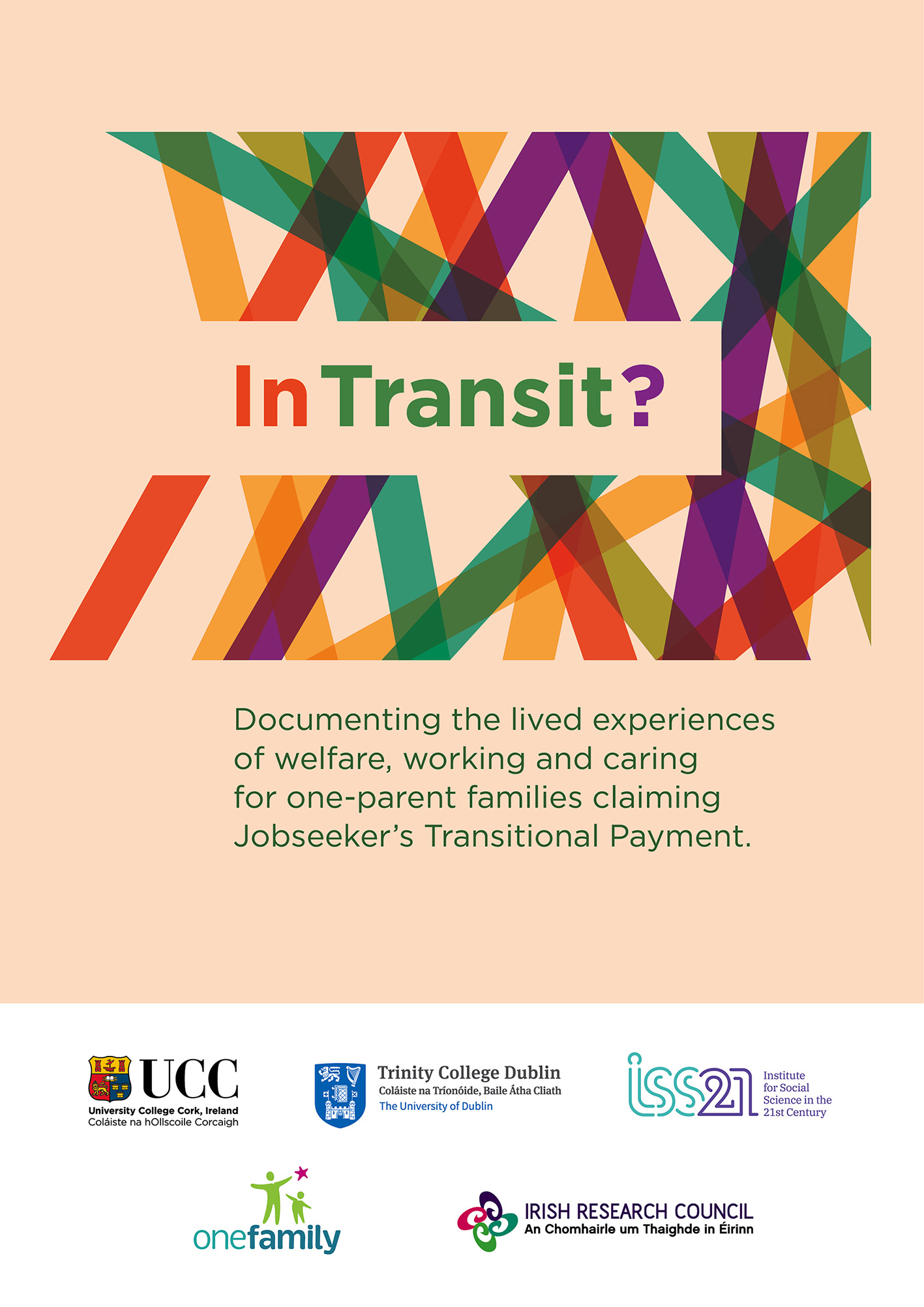 The research report In transit? Documenting the lived experiences of welfare, working and caring for one parent families claiming Jobseeker’s Transitional Payment was launched by Senator Alice Mary Higgins on 25th May 2023. This online event was hosted by ISS21, Trinity College Dublin and One Family.Read more
The research report In transit? Documenting the lived experiences of welfare, working and caring for one parent families claiming Jobseeker’s Transitional Payment was launched by Senator Alice Mary Higgins on 25th May 2023. This online event was hosted by ISS21, Trinity College Dublin and One Family.Read more -
New Research Funding Awards
20 Dec 2023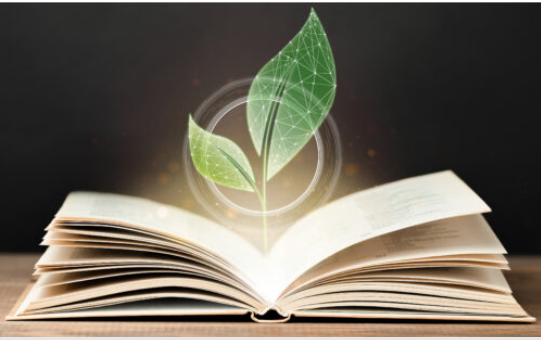
Three ISS21-affiliated projects have been awarded funding under the Irish Research Council's Advanced Laureate and New Foundations Programmes.
Read more -
Launch of CareVisions Research Report
12 Dec 2023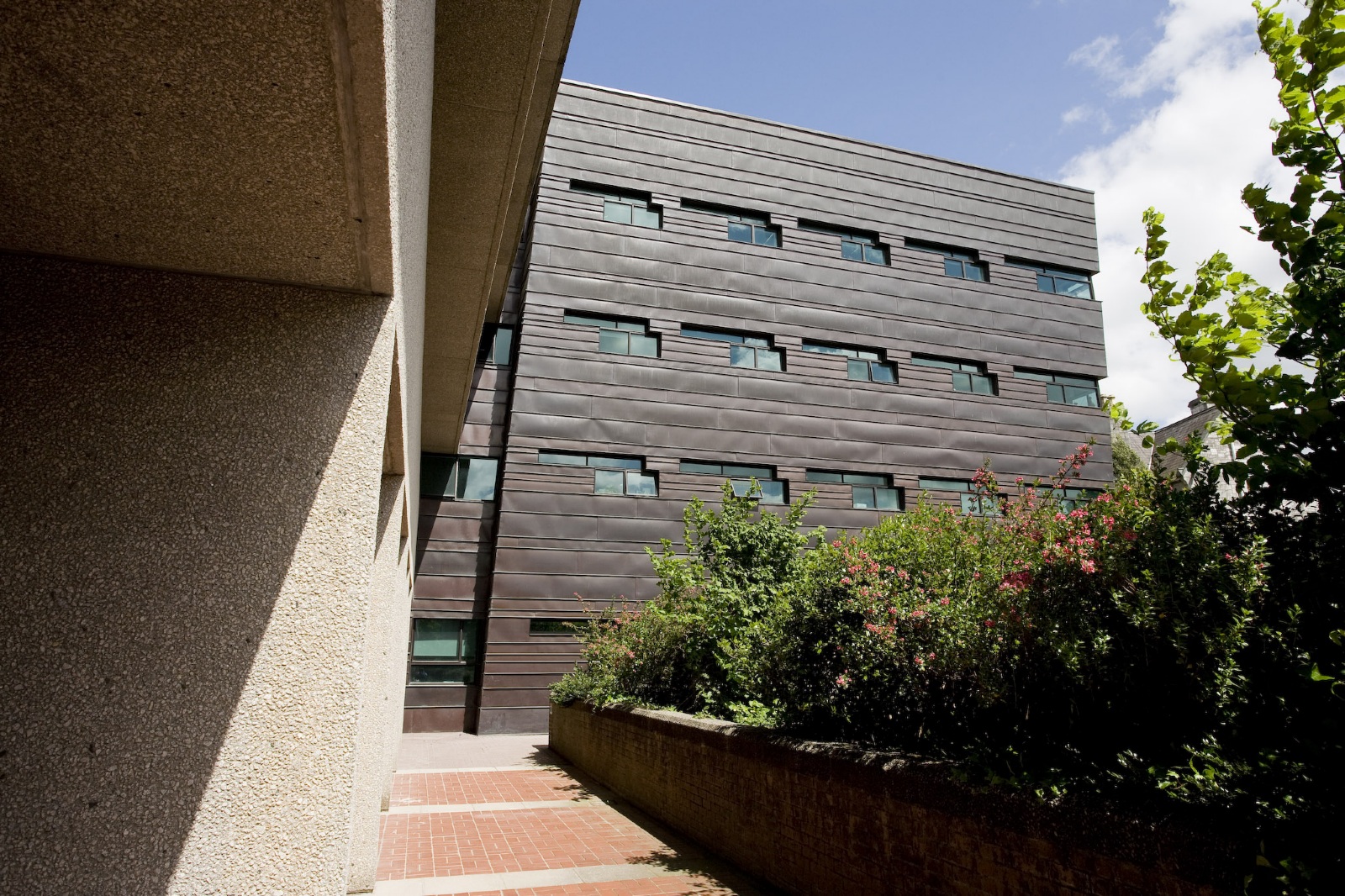
Launch of CareVisions: Re-Envisioning a Care-Centred Society in Ireland Beyond COVID-19
Read more -
Collective Social Futures Festival of Social Science
21 Nov 2023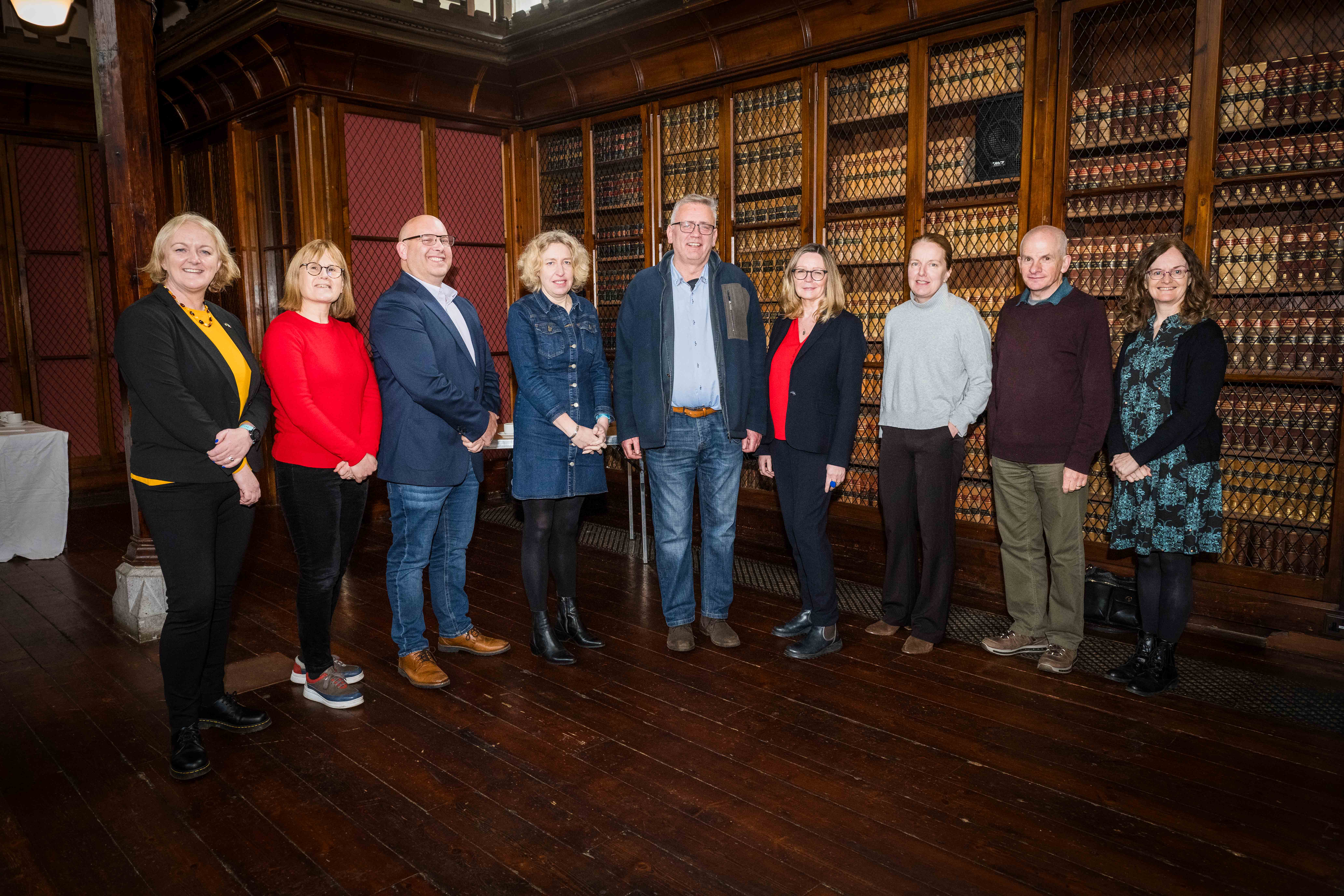
On 20-21 November 2023 UCC Futures: Collective Social Futures hosted a Festival of Social Science, including a book launch; an evening of music and performance; and a full-day symposium showcasing social science research across UCC.
Read more -
Festival of Social Science: evening of music & performance
20 Nov 2023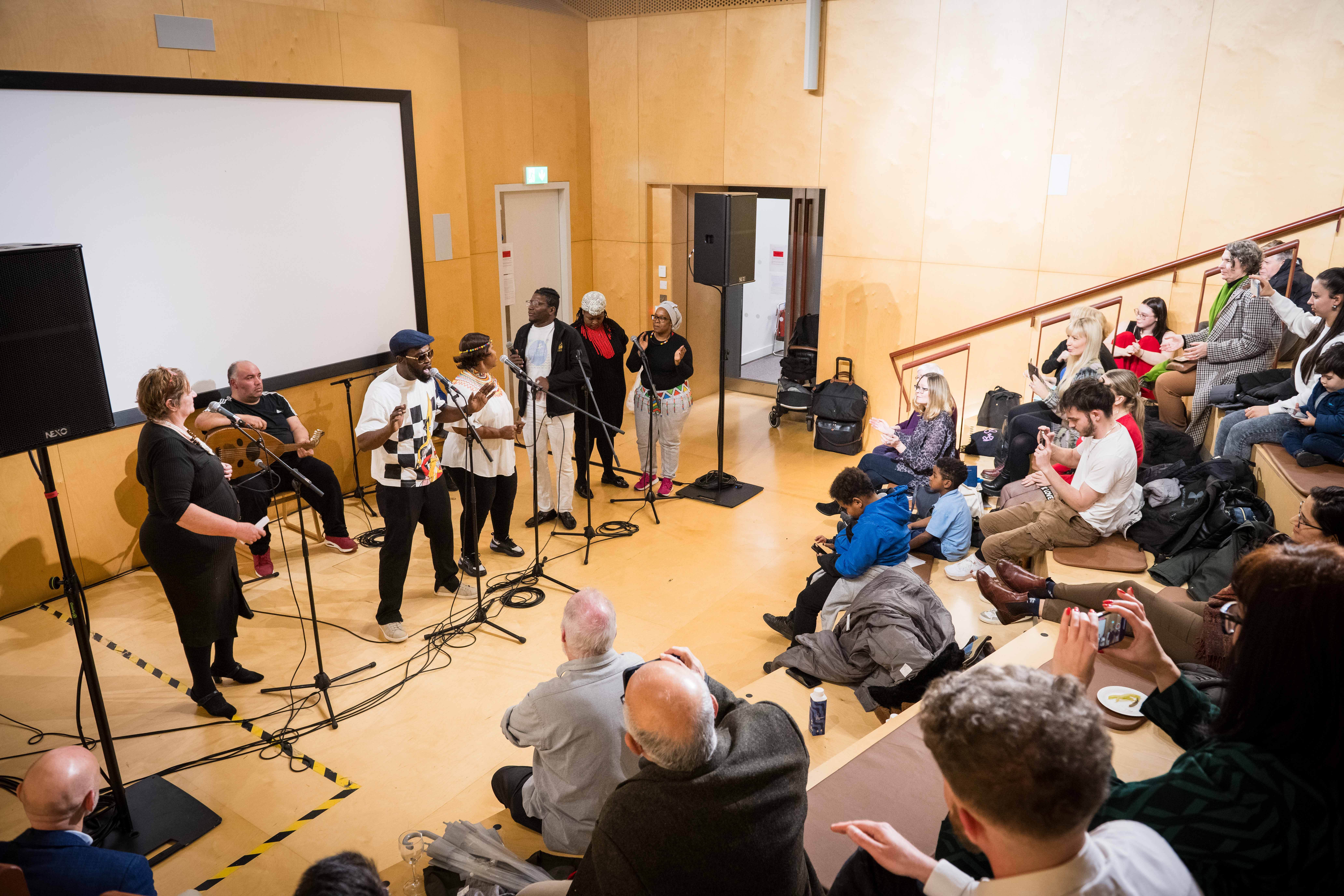
On 20-21 November 2023 UCC Futures: Collective Social Futures hosted a Festival of Social Science, including the launch of Professor Louise Ryan's new book, Social Networks and Migration: Relocations, Relationships and Resources; an evening of music and performance (see below); and a full-day symposium showcasing social science research across UCC.
Read more -
Festival of Social Science: launch of 'Social Networks and Migration' (Prof Louise Ryan)
20 Nov 2023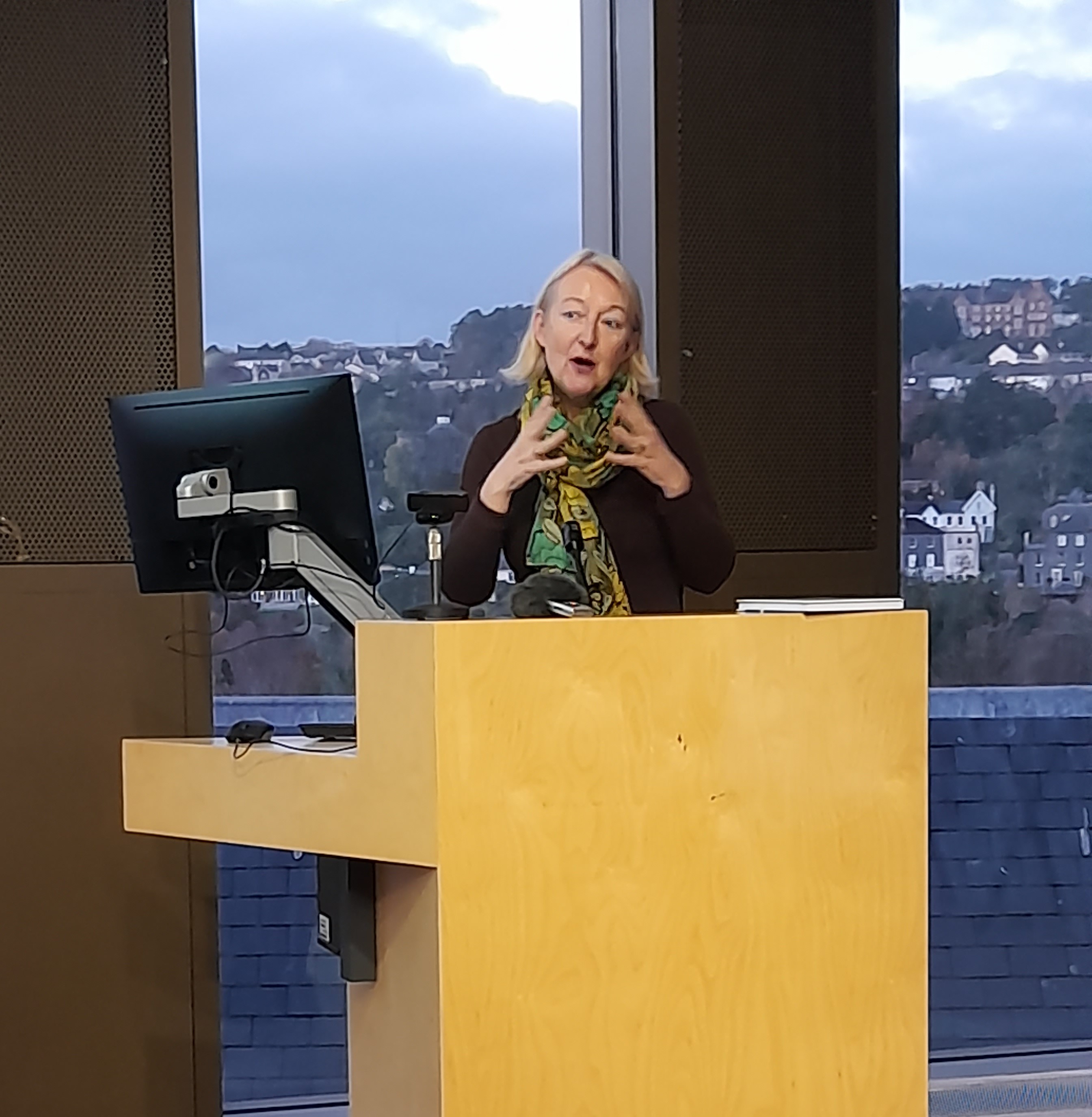
On 20-21 November 2023 UCC Futures: Collective Social Futures hosted a Festival of Social Science, including a book launch (see below); an evening of music and performance; and a full-day symposium showcasing social science research across UCC.
Read more -
Collective Social Futures Festival of Social Science, 20-21 November 2023
31 Oct 2023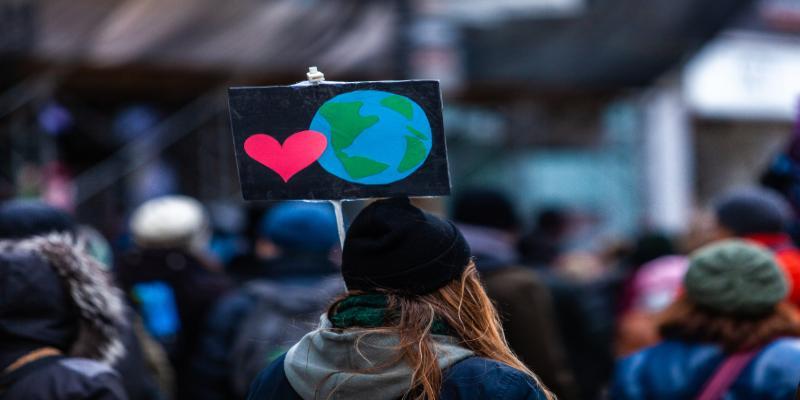
On 20-21 November UCC Futures: Collective Social Futures hosted a Festival of Social Science, including a book launch, an evening of music and performance, and a full-day symposium showcasing social science research across UCC.
Read more -
Informal care and the precariousness of migration experience
13 Nov 2023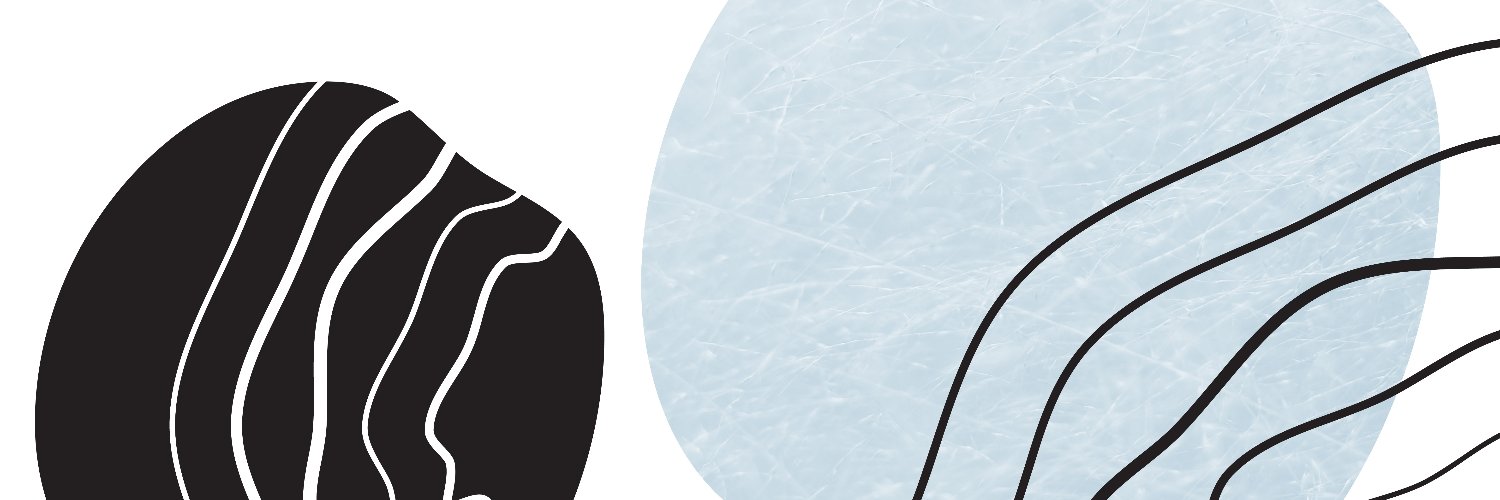
Informal care and the precariousness of migration experience: An ethnographic study on welfare and migrants' care, help and support within and because of the migration process
Speakers: Marcus Herz (Associate Professor in Social Work, University of Gothenburg, Sweden); Frida Andréasson (Senior Lecturer in Social Work, Linnaeus University, Sweden); Jesper Andreasson (Professor in Sport Science, Linnaeus University, Sweden).
Hosted by the CareVisions research project & Institute for Social Science in the 21st Century, UCC.
Read more -
'Every Moment Counts: Promoting mental wellbeing and inclusion in Irish schools', Monday 13th November 2023, 1-2pm
13 Nov 20232-477x400.jpg)
Online Seminar
Dr Susan Bazyk and colleagues will present on their innovative work in school inclusion models in the USA, integrating therapy and education. The online seminar aims to present an overview of a multitiered school-based model of practice that underpins the Every Moment Counts programme and aligns with the National Council for Special Education (NCSE) model of school inclusion initiative in development in Ireland.
Read more -
Belonging and Narrative
20 Sep 2023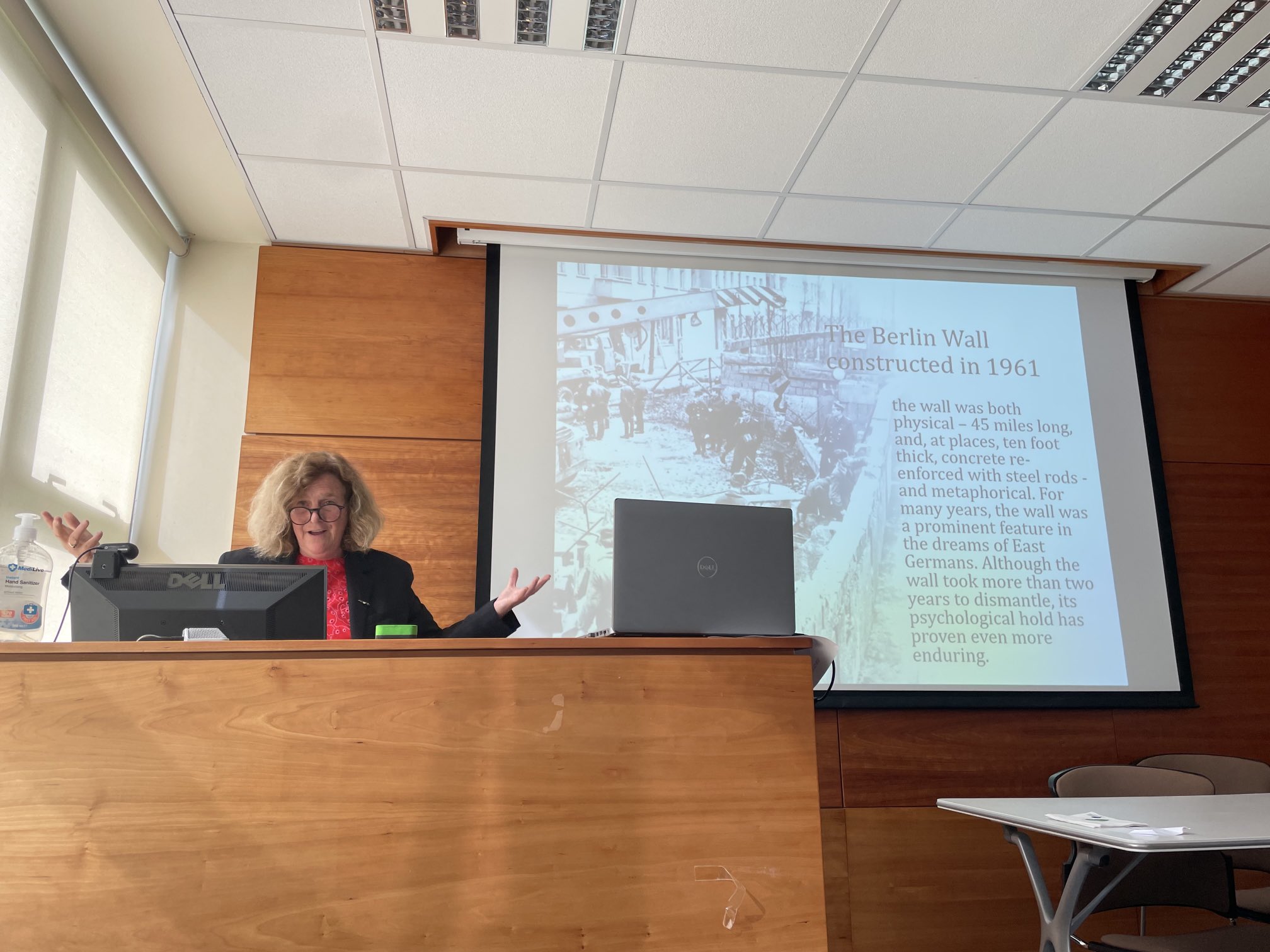
This half day symposium, hosted by the Department of Sociology and Criminology in collaboration with ISS21, featured keynote presentations from Professor Nira Yuval-Davis (University of East London) and Professor Molly Andrews (University College London).
Read more -
IMMERSE H2020 Conference
15 Sep 2023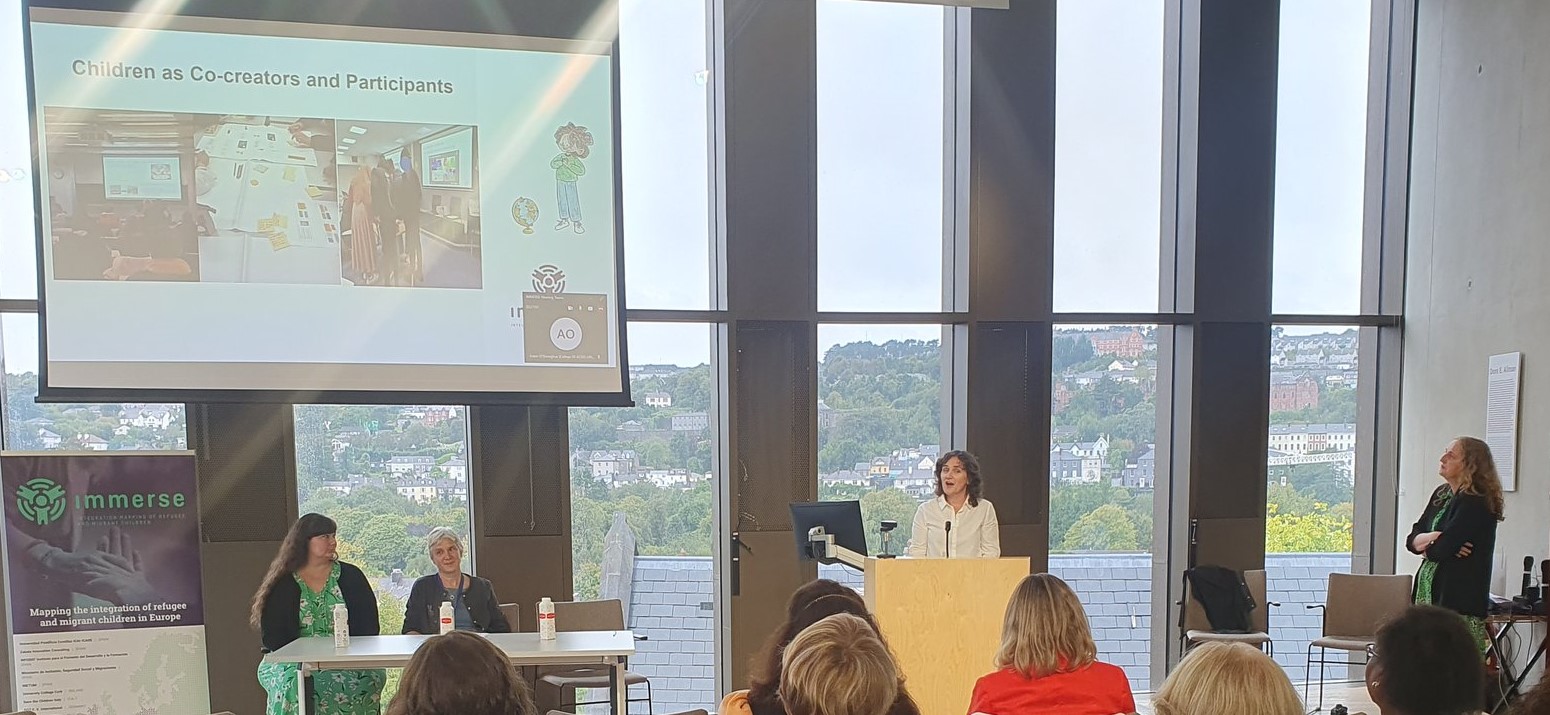
This conference presented the findings from the Irish component of the four-year Horizon 2020 project: IMMERSE (Integration Mapping of Refugee and Migrant Children in Schools and other Experiential Environments in Europe). The keynote address on the integration of migrant children in Ireland was delivered by Emma Quin (Economic and Social Research Institute).
Read more -
Launch of ISL HEALTH research report
12 Sep 2023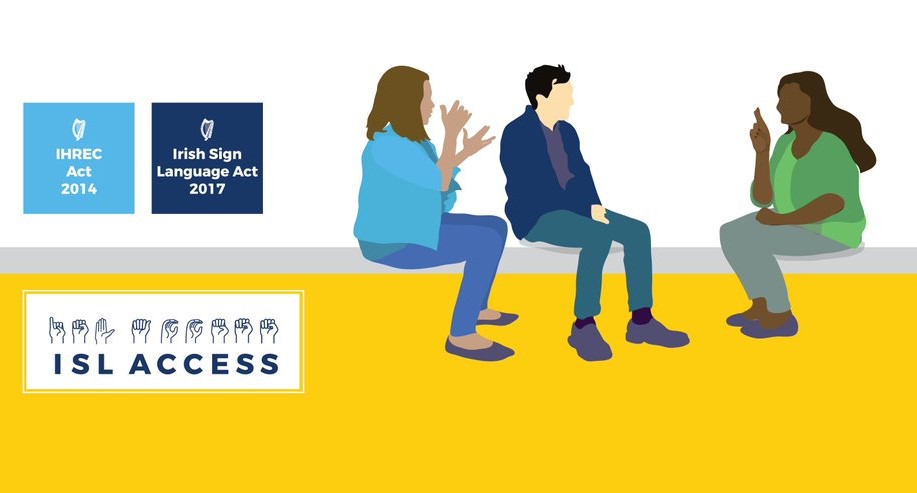
ISL HEALTH: Supporting the effective implementation of the Irish Sign Language Act 2017 in public healthcare settings
The ISL HEALTH project, funded by the Irish Research Council, was carried out by researchers from the School of Applied Social Studies & ISS21 in University College Cork, in partnership with the Cork Deaf Association and Kerry Deaf Resource Centre.
Read more -
Launch of report on addressing violence against women
31 Aug 2023
On 31st August an online seminar was held to launch the report Addressing Masculinities to Tackle Violence Against Women in Ireland: Findings from the PositivMasc Study. The report sets out the Irish findings and recommendations of the EU GENDER-NET funded study PositivMasc - Positive Masculinities: Masculinities and violence against women among young people: Identifying discourses and developing strategies for change.
The main findings were presented by two members of the research team (Dr Claire Edwards and Dr Robert Bolton), followed by a panel discussion with key stakeholders. The seminar was chaired by Dr Fiachra Ó Suilleabháin.
A recording of the launch is available here
Read more -
Professor Maggie O'Neill elected to Royal Irish Academy
26 May 2023.jpg)
We are delighted to announce that Professor Maggie O'Neill, incoming Director of ISS21 and Director of UCC Futures – Collective Social Futures, has been elected to the Royal Irish Academy (RIA).
Read more -
Health Inequalities Symposium, Thursday 27 April
27 Apr 2023
Leaving No One Behind: Health Inequalities on the Island of Ireland
Read moreOn 27 April, the ISS21 SHAPE & REACT Research Clusters hosted an online symposium on health inequalities on the island of Ireland. A number of themes were explored through panel discussions, including health economics, mental health, and health in the community.
-
Valuing Care in Feminist and Disability Politics, 24 April
24 Apr 2023
Online seminar hosted by the CareVisions research project in affiliation with ISS21:
Valuing Care in Feminist and Disability Politics
Speaker: Prof. Janice McLaughlin, Sociology, Newcastle University
Read more -
Duty to Care and Solidarity: Counter-hegemonic civic acts in authoritarian and xenophobic contexts, 21 April
21 Apr 2023.jpg)
-
Sharing Canadian & Irish Research and Practice in Housing First & Rapid Rehousing, 20th April
20 Apr 2023.jpg)
In this half-day event, visiting speakers and researchers from UCC shared their research on Housing First and other initiatives to tackle homelessness in Canada and Ireland.
Read more -
Qualitative Research in Cross-cultural & Non-Western Settings
22 Mar 2023
Qualitative Research in Cross-cultural and Non-Western Settings: Ethical and Methodological Approaches and Challenges
Read more -
Mental health system responses to young people in distress
03 Apr 2023
Unleashing the voice within: Challenging Current Responses of Mental Health Systems to Young People in Distress
Read more -
Launch of Collective Social Futures
31 Mar 2023
UCC announces new research drive for Collective Social Futures
Read more -
Looking Back, Looking Forward: Early Years & Childhood Studies Conference
10 Mar 2023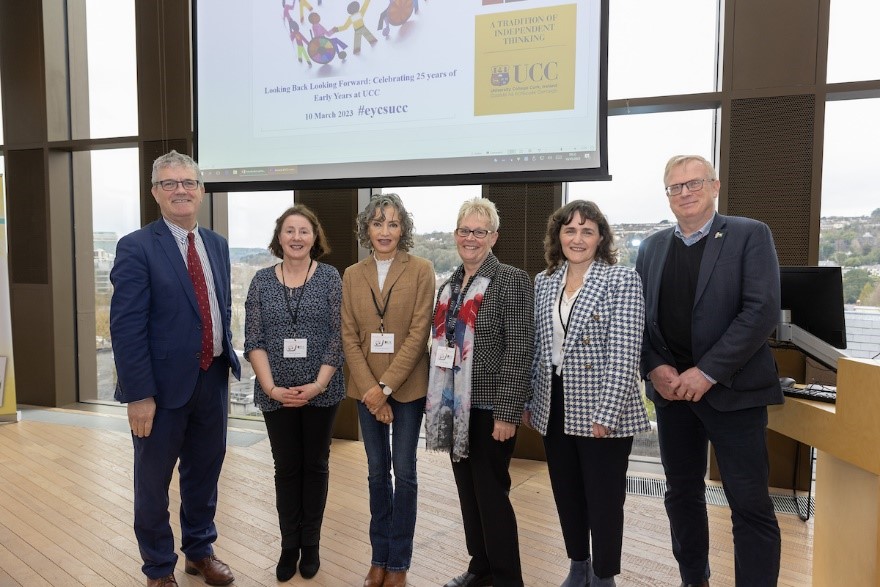
Looking Back, Looking Forward: Celebrating 25 Years of Early Years and Childhood Studies in UCC
The Looking Back, Looking Forward conference was hosted by the Early Years and Childhood Studies Programme, UCC, in conjunction with the ISS21 Children and Young People Research Cluster.
Read more -
Launch of Report on Young Carers in Ireland
07 Mar 2023.jpg)
Sharing the Caring: Young carers' experiences and access to supports in Ireland
The final report of the YOUNGCARERS research project was launched in Dublin on Tuesday 7 March. The project is a collaboration between Family Carers Ireland, ISS21, UCC, the University of Limerick, and the Irish Second-Level Students’ (ISSU). It was funded by the Irish Research Council under the New Foundations programme.
Read more -
Border Securitisation and the Criminalization of Migration
24 Feb 2023
Hosted by: UNIC & the ISS21 Migration & Integration Research Cluster
Refugee Week Online Research Seminar:
Border Securitisation and the Criminalization of Migration Inside Schengen: The case of the Franco-Spanish border in the Basque Country
Speaker: Dr. Gustavo de la Orden Bosch
24 Feb. 2023, 3-4pm
Read more -
Ethical, political and methodological dilemmas in doing survivor research
18 Nov 2022.jpg)
'Last night I was shot, you were shot too’:
Ethical, political and methodological dilemmas in doing survivor research in mental health
In this seminar, adopting an autoethnographic approach and drawing on personal experiences as a service user researcher in English Universities, Dr Konstantina (Dina) Poursanidou explored the identity and other (ethical, political and methodological) struggles implicated in the task of constructing and negotiating her double/liminal identity as an academic researcher and a mental health service user. In discussion with the audience, she interrogated crucial concerns that have dominated her conversations with other service user/survivor researchers in academia over the years through some hard questions such as:
Read more -
Four projects funded under IRC New Foundations
13 Feb 2023
New Foundations Awards
We are delighted to announce that the following ISS21-affiliated projects have been awarded funding under the Irish Research Council's 2022 New Foundations Programme:
Read more -
'At Your Age?!' An Ethnodrama from the AgeACTED Project
26 Jan 2023.jpg)
On 26th January 2023 the Granary Theatre hosted a first reading of the play At Your Age?!, followed by a lively Q&A discussion with audience members.
Read more -
Researcher's Nightworkshop: Reaching out to vulnerable migrant nightworkers
12 Dec 2022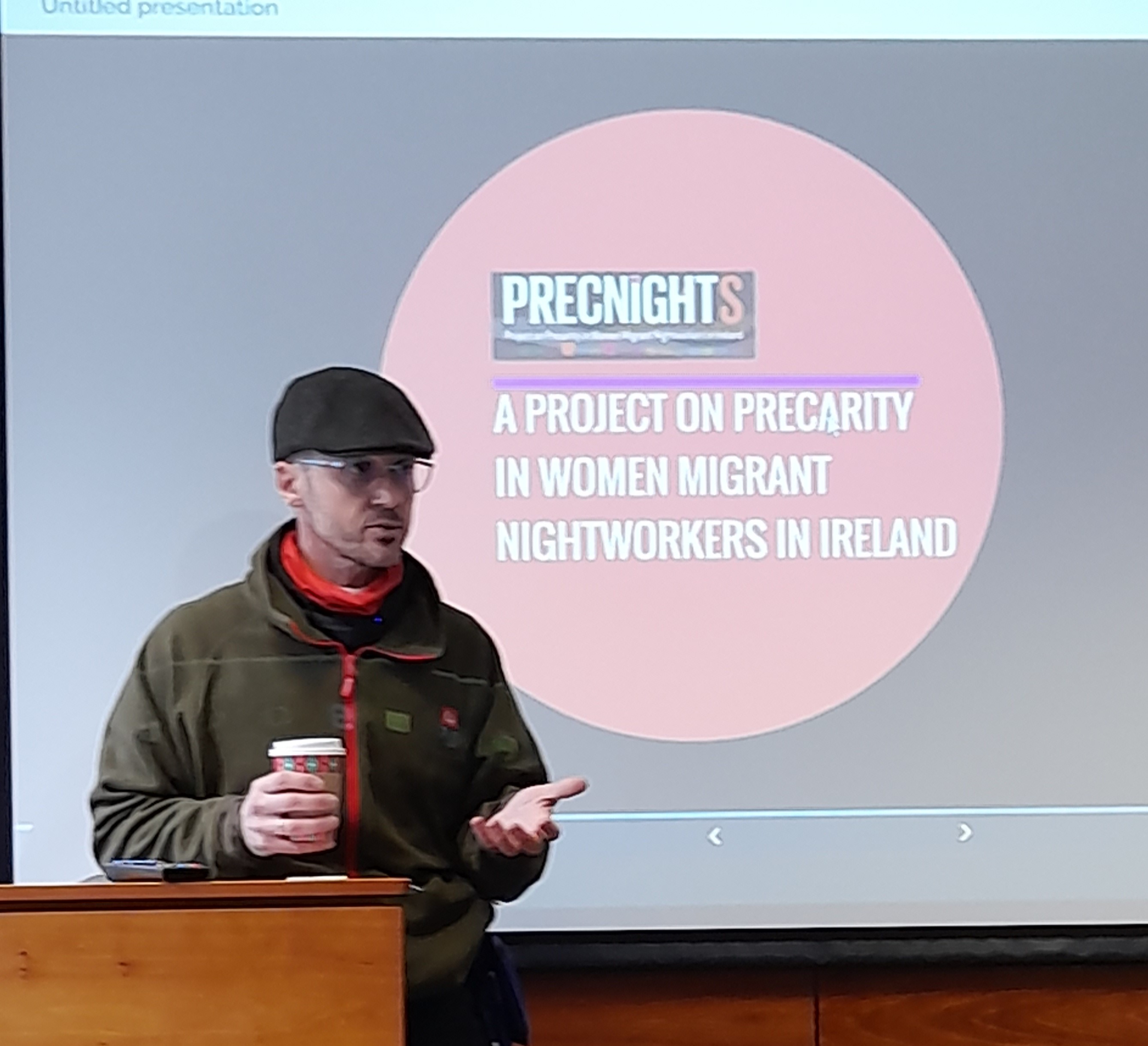
In this seminar, hosted by the ISS21 Migration and Integration Research Cluster, Dr Julius-Cezar Macarie presented the findings from his research with London’s manual night workers, a group which is often overlooked in public debates, political agendas, and academic research. As part of this ethnographic study, he worked the ‘graveyard shift’ at the New Spitalfields market alongside migrants whose precarious working and living conditions he experienced first-hand. His research provides valuable insights into the mental and physical impacts of night working, as well as innovative research methods for use in future research.
Read more -
'Environmental Policy Making and the Circular Economy', 13th October
13 Oct 2022 -
GendeResearchIreland Symposium: Reflections on Institutionalising Gender Equality in Higher Education
14 Nov 2022
A symposium bringing together experts, practitioners and activists interested in the topic of embedding gender equality in higher education institutions took place on Monday 14th November 2022 in UCC. The symposium was hosted by the GendeResearchIreland project, funded by the European Commission’s Marie Skłodowska-Curie Action mobility fellowship programme. The event marks the conclusion of the project, finishing December 2022. The project was carried out by Dr Monica O’Mullane, ISS21.
Read more -
The Good Life
22 Nov 2022.jpg)
The Good Life
Read moreA talk by Professor Daniel Miller, Director, Centre for Digital Anthropology, University College London
-
The Dark Side of Care
14 Nov 2022
In this seminar, Dr Tiina Sihto and Dr Paula Vasara discussed themes from their forthcoming book which explores the dark side of care in the Finnish context. The edited collection contains 12 chapters that deal with 1) the gaps in care; 2) the breaking of norms related to care; 3) the limits of professionalism; and 4) distortions in the service system.
Read more -
Young People's Inclusion in Public Policy-making in Portugal, the UK and Ireland
18 Oct 2022.jpg) OverviewRead more
OverviewRead moreParticipatory governance or formalised types of participatory decision-making have become widespread in Europe, as governments seek to include citizens and members of the public in decision-making and policy-making in diverse areas of public policy. At the same time, the inclusion of children and young people in formal and informal decision-making processes has been widely emphasised due mainly to the influence of the UN Convention on the Rights of the Child. Including children and young people in public decision-making and policy-making has several benefits but also a number of challenges and risks that need to be carefully considered. This seminar considered the experiences, challenges and outcomes of young people's inclusion in public decision-making and policy-making in Portugal, England and Ireland.
-
Let's Talk About Climate Change
14 Oct 2022
The ISS21 Ageing Research Cluster was delighted to collaborate with Cork County Council and the School of Applied Psychology in the organisation of a webinar on the SDGs, as part of Sustainable Development Goals Promotion 2022.
Read more -
Researching Care Workshop
14 Oct 2022.jpg)
On 14 October, the CareVisions research project and ISS21 hosted a workshop to showcase care-related research in UCC, discuss ideas for future research, and develop networks in care research, including through the ISS21’s CARE21 Research Cluster.
Read more -
Securitised Borders: Human Security Migrant Mobilities & Resistance
23 Sep 2022
-
Launch of Learning Disrupted Report
02 Sep 2022On 2nd September 2022, ISS21 and the National Learning Network hosted an event to launch the report Learning Disrupted: Young People with Disabilities’ Access to and Experiences of Learning and Workplace-based Training during COVID-19.
The report is based on research that explored the challenges that faced young people and service providers in transitioning to online learning and training during lockdown, and the potential of virtual technologies to enable greater flexibility in how people with disabilities participate in education and employment beyond the pandemic.
Read more -
'Witches, Wise Women and What to Wear (for Your Afterlife): Histories from the Dark Side'
19 Aug 2022
Hosted by: The ISS21 Witch Hauntings Youghal (WHY) Research Project, UCC in collaboration with Youghal community organisations (Youghal Celebrates History, Youghal4All Community Group, Youghaloween Spooktacular and Youghal Active Retirement Association) with the support of Cork County Council.
This event was held in the Mall Arts Centre, Youghal, Co. Cork as part of National Heritage Week 2022.
Read more -
The potential of the co-operative care model to support older people to age well at home
23 Jun 2022
-
UCC UNIC Superdiversity School 17-19 May
19 May 2022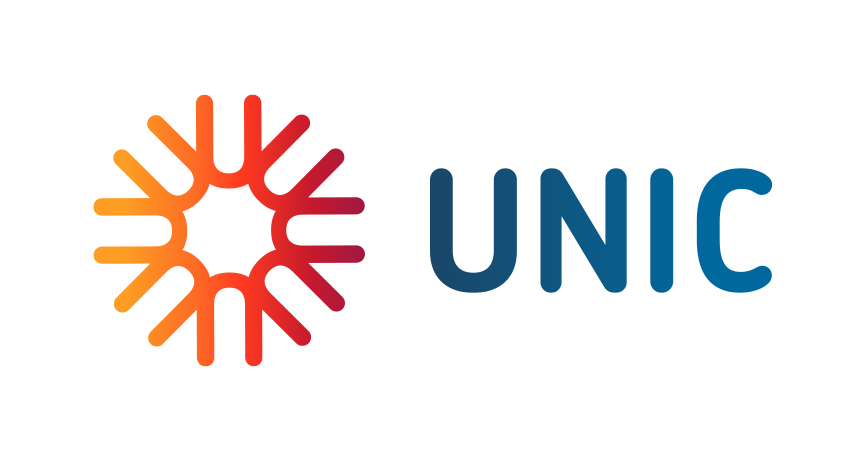
Enacting Superdiversity: Towards Critical Change in Higher Education
A three-day Superdiversity School organised by ISS21, the Equality, Diversity and Inclusion (EDI) Unit and Access UCC, University College Cork.
Read more -
Relational research and producing knowledge about care
25 Apr 2022
Hosted by: CareVisions in partnership with ISS21
Presenter: Dr Lizzie Ward, Principal Research Fellow in the School of Humanities and Social Science at the University of Brighton (UK)
Recording available: here
Read more -
First Do No Harm: Iatrogenic Harm in Mental Health
26 Apr 2022
-
Exploring welfare bricolage in Europe's superdiverse neighbourhoods
07 Apr 2022
As part of the UNIC European University initiative, ISS21, in conjunction with the Equality, Diversity & Inclusion Unit and Access UCC, is hosting a seminar series focused on the theme of superdiversity. The third seminar in this series was presented by Professor of Migration and Superdiversity, Jenny Phillimore, from the University of Birmingham. The seminar focused on the theme of 'exploring welfare bricolage in Europe's superdiverse neighbourhoods'.
Read more -
Agency and Ageing Report
06 Apr 2022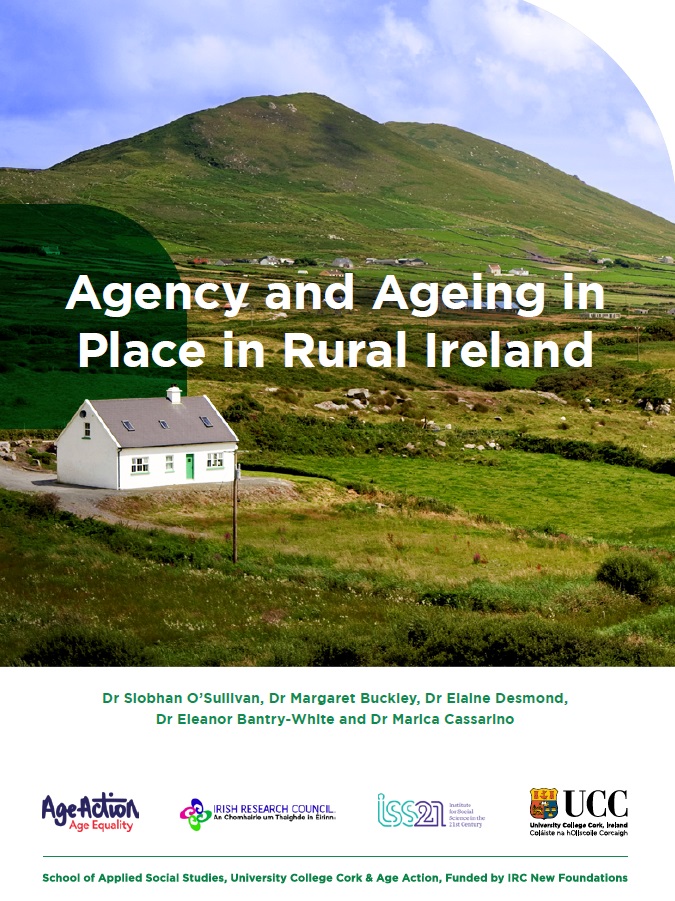
The report Agency and Ageing in Place in Rural Ireland was launched on 6 April and is available to download here The report presents the findings of an IRC-funded project that was carried out by researchers in the School of Applied Social Studies, in partnership with Age Action. Further details and project outputs are available on the project website (AAPRI).
The report launch included opening comments from Celine Clarke (Age Action) followed by presentations from Dr Siobhan O'Sullivan (Project PI), Annie Curbelo Lang (Participatory Research Group & Research Advisory Group), Gabrielle O'Keeffe (HSE) and Inspector Miriam McGuire (Garda Bureau of Community Engagement). Dr Margaret Buckley chaired the event. A recording of the launch is available here
Read more -
Report Launch
30 Mar 2022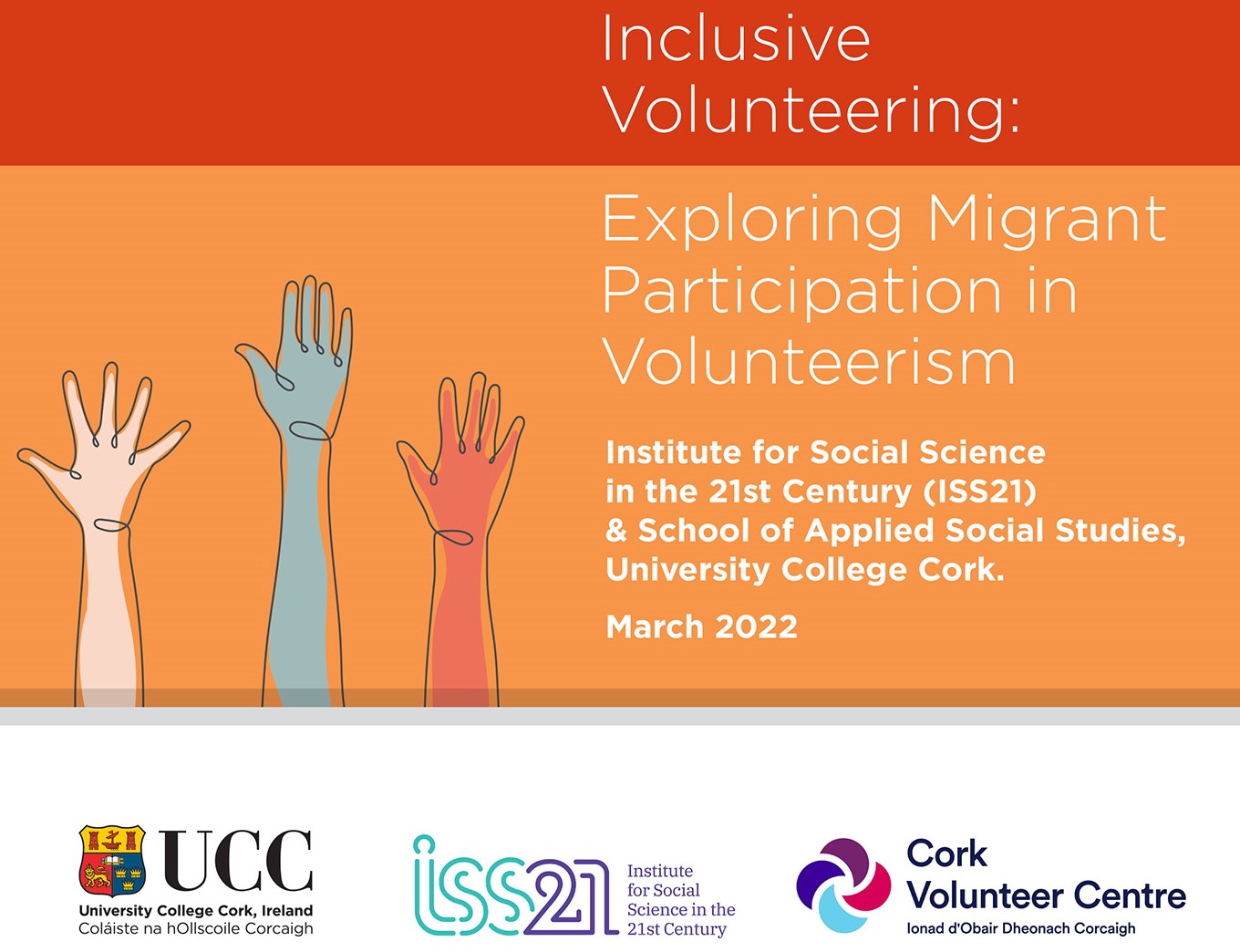
On 30 March ISS21 hosted an event to launch the report Inclusive Volunteering: Exploring Migrant Participation in Volunteering. The report is based on the findings of a small-scale study which explored migrants’ experiences of volunteering in Cork city and county, including their motivations and pathways into volunteering, the benefits and challenges of volunteering, and the factors which facilitate or inhibit volunteering. The findings highlight the contribution which migrants make to local communities and the wide range of skills and experience which they bring to their volunteering roles. In line with international research, the study also indicates that volunteering can be an important aspect of two-way processes of integration. The research was carried out in partnership with Cork Volunteer Centre and was funded under the Irish Research Council's New Foundations programme.
Read more -
The University as a Superdiverse Space? A Conversation
28 Mar 2022
As part of the UNIC European University initiative, ISS21, in conjunction with the Equality, Diversity & Inclusion Unit and Access UCC, is hosting a seminar series focused on the theme of superdiversity. The second seminar in this series was held on 28 March, and explored the role of the university as a space for diversity and inclusion.
Read more -
UCC UNIC Superdiversity Academy Seminar Series
09 Mar 2022
As part of the UNIC European University initiative, UCC’s Institute for Social Science in the 21st Century (ISS21), in conjunction with the Equality, Diversity & Inclusion Unit and Access UCC is hosting a seminar series focused on theme of superdiversity. The term superdiversity underlines the growing complexity of diversity, reflecting the increasing prominence of complex mixtures and intersectionalities of ethnicity, race, gender, sexuality, culture, religion, (dis)ability, economic status, legal status and many other aspects. Part of the aim of UNIC is to explore what superdiversity means for the higher education space as well as our wider city and communities.
The seminar series aims to begin a series of conversations on the concept and will feature a range of speakers and panellists from UCC and outside, including academics and NGO representatives. We welcome all UCC staff and students to attend and join the discussions. Sessions will take place via MS Teams and further details for each seminar will follow in due course.
Read more -
Children's Research Advisory Groups: 'Who else would you ask?’
29 Mar 20222-477x400.jpg)
-
"And the activists tell us that meds are evil": Polarised mental health politics and the struggle for ambivalence
22 Mar 2022
Speaker: Dr Konstantina (Dina) Poursanidou Co-Director of the Survivor Researcher Network, UK
Hosted by: the ISS21 Disability & Mental Health Cluster, CVNI, the Survivor Researcher Network & Asylum Magazine
Abstract
Current mental health politics in the UK- and the Global North at large – is characterised by an acute polarisation when it comes to issues that are particularly contested in the area of mental health, including the nature of ‘mental illness’, psychiatric diagnosis, the effectiveness of drug treatments in comparison to psychotherapy, the problems associated with the use of psychiatric medication, ECT, and involuntary hospitalisation. Social media, Twitter in particular, constitute a pertinent example of the acrimony prevailing more often than not in discussions of these issues among mental health professionals and service users alike – acrimony that at times translates into vicious and abusive personal attacks replacing respectful discussion and debate.
Read more -
Critical perspectives in mental health seminar series (Feb-April 2022)
28 Feb 2022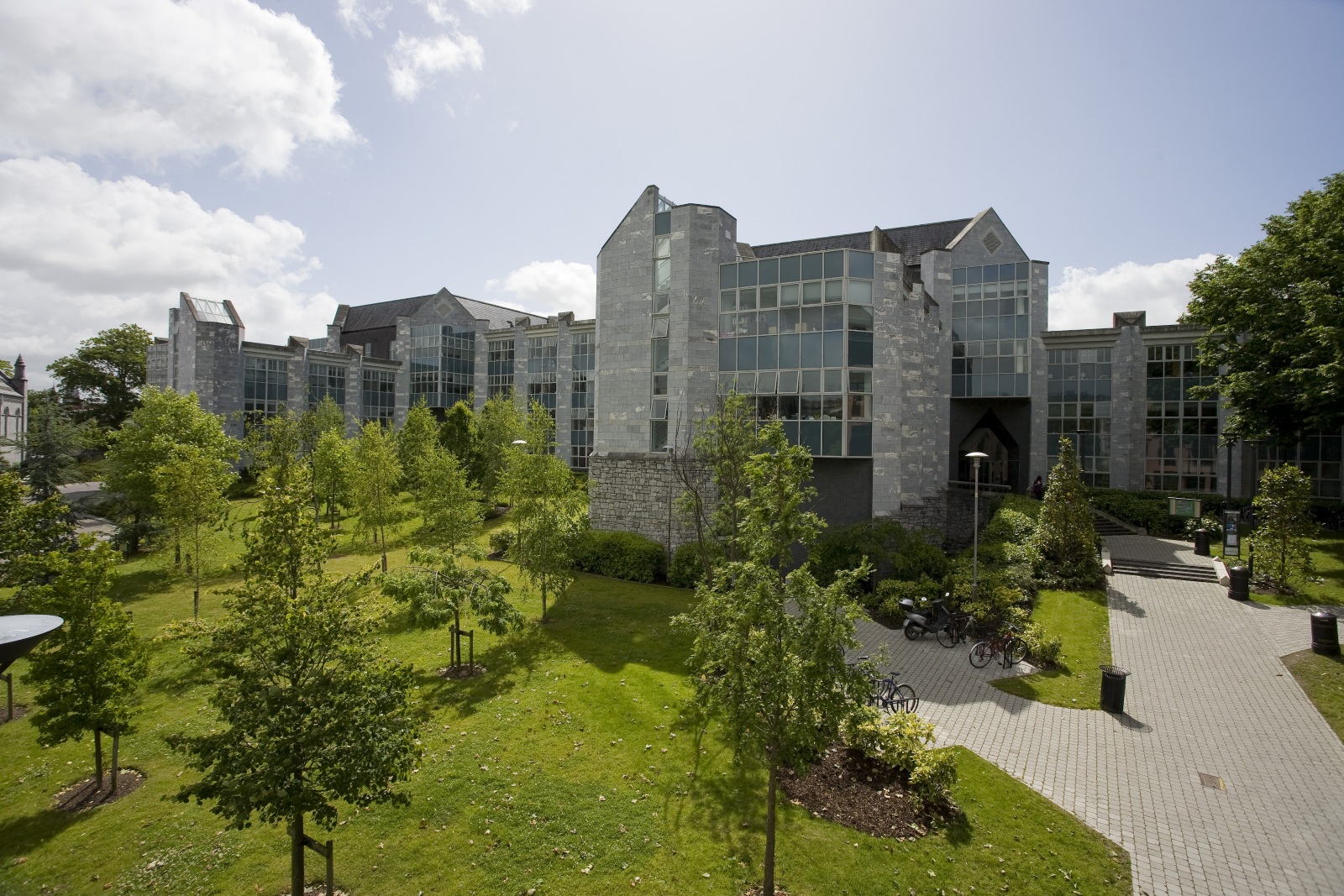
Over the next few months, the ISS21 Disability and Mental Health Research Cluster will host a series of four seminars on critical mental health matters, in partnership with Critical Voices Network Ireland (CVNI). Seminar titles and dates are provided below, with further details and registration to follow.
Read more -
Agency and Ageing in Place in Rural Ireland: Exploring the housing preferences of older people in rural areas
15 Mar 2022 -
Children's Daily Lives during the COVID-19 Pandemic
21 Oct 20212.jpg)
Children's daily lives during the COVID-19 pandemic:
A qualitative participative online study with 7-to-9-year-olds from Germany
Iris Würbel , Freie Universität, Berlin
Read more -
"Can you help me get out?": Ethical, Political and Methodological Struggles in Doing Survivor Research in Mental Health'
15 Mar 2022
Hosted by: the ISS21 Disability & Mental Health Cluster, Critical Voices Network Ireland (CVNI), the Survivor Researcher Network & Asylum Magazine
Presenter: Konstantina (Dina) Poursanidou Co-Director of the Survivor Researcher Network, UK.
Read more -
Exploring Superdiversity: A Critical Roundtable Discussion
28 Feb 2022
As part of the UNIC European University initiative, UCC’s Institute for Social Science in the 21st Century (ISS21), in conjunction with the Equality, Diversity & Inclusion Unit and Access UCC, is hosting a seminar series focused on the theme of superdiversity. One of the aims of UNIC is to explore what superdiversity means for the higher education space as well as our wider city and communities. This first seminar explored the concept of superdiversity, examined its potential and limitations, and considered some of its implications for practice within the university.
Read more -
How was care represented in Ireland’s Oireachtas Special Committee on COVID-19 Response?
02 Mar 2022Hosted by: The ISS21 SHAPE Research Cluster and chaired by Dr Eluska Fernandez, cluster convenor.
Presenter: Dr Felicity Daly (Postdoctoral Researcher, CARE-VISIONS project, ISS21)
Abstract
Drawing on the feminist ethics of care-inspired Trace methodology, this paper analyses governmental discourses about care in the context of the COVID-19 pandemic. It explores whether and how a rapid parliamentary investigation frames care as a value and practice; reveals interdependence of care givers and receivers; reflects on how ‘vulnerable’ identities were ascribed to older people, people with disabilities, and asylum seekers; and applies a feminist perspective to Ireland’s response to COVID-19.
Read more -
"Yes, but where do you really come from?" Race, Racism and Mental Health
15 Feb 2022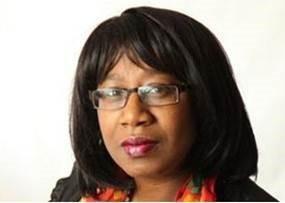
In this seminar Sonia Thompson (Co-Director of the Survivor Researcher Network, UK) critically explored constructions of race and racism; looked at the ways in which racialised people are 'othered'; and at how racism impacts on mental health. The links between race and physical/mental health and life-expectancy were also highlighted. It was noted that the UK government response (or lack thereof) to the over representation of BME people in the COVID morbidity and mortality statistics is seen by many as a wider indication of systemic racism in action and may have helped to reinforce a lack of trust between BME communities and government bodies. The seminar considered the role of peer-based approaches to wellbeing and mental health as one way in which to address some of the historical and current trauma in BME communities.
Read more -
Adapting Social Work and Health Practice following Covid 19 and other Disasters
23 Feb 2022
On 23 February the ISS21 Research for Civil Society and Social Action (REACT) Cluster, in partnership with colleagues in the School of Applied Social Studies (MSW Programme), hosted an online seminar with Margaret Alston, Professor of Social Work at Newcastle University, Australia.
Read more -
Migration from North America: An Overview from a Mexican Perspective
22 Feb 2022
As part of Refugee Week 2022, the ISS21 Migration and Integration Research Cluster and University of Sanctuary UCC hosted a seminar on return migration, with presenter Aranzazu González Hernández.
Read more -
'A Reflexive Self-assessment Approach to Integrating Gender into Research
15 Feb 2022
On 15 February, ISS21 hosted a seminar on integrating gender into research with Professor Carol Linehan (School of Applied Psychology & ISS21), Dr Caitríona Ní Laoire (School of Applied Social Studies & ISS21) and Dr Christine Gaffney (ISS21).
Read more -
The Care Economy in Crisis: A post-COVID-19 feminist recovery plan
07 Feb 2022-717x400.jpg)
In this seminar, Silke Staab and Laura Turquet drew on the UN Women report Beyond COVID-19: A Feminist Plan for Sustainability and Social Justice (2021), to propose the idea of a feminist social contract that centers women’s access to decent work, investments in the care economy and gender-just transitions to environmental sustainability within a broader politics for economic recovery and transformation. They looked at the different ways in which the pandemic has revealed current social contracts to be fractured. The idea of a feminist social contract was also explored, tracing some of the history of how feminists have engaged with social contract theory, and how this can be applied to new framings of a renewed social contract with care at its core. The role of the state in reimagining and re-engineering fractured social contracts was explored, both in terms of the what (provision of collective goods and services) and the how (redefinition of state-society relations, including a shift in gender power relations, and greater global solidarity). Discussant, Ailbhe Smyth responded to the issues raised in the two presentations.
A recording of the seminar is available here
Read more -
‘ENERGISE: Enhancing the transition to energy citizenship’
27 Jan 2022
In this timely seminar, Dr. Olive McCarthy (Centre for Co-operative Studies, UCC) and Gwen Harris (North Dublin Money Advice and Budgeting Service - MABS) reported on the initial findings from the IRC-funded ENERGISE project, which explores energy poverty and the barriers/enablers to energy efficiency in low-income homes.
Read more -
What Have We Learned about Long-term Care in the Pandemic?
11 May 2021
In this seminar Professor Mary Daly (University of Oxford) reflected on what the COVID-19 pandemic has revealed about long-term care, and care in general. She considered the priorities and assumptions that were embedded in policy responses, both those about the giving and receiving of care.
Read more -
Care and Capitalism: Moving beyond Capitalocentric thinking about equality, social justice and politics
24 Jan 2022-492x338.jpg)
In this online seminar, Kathleen Lynch (Professor Emerita of Equality Studies, UCD) discussed a number themes from her recently published book Care and Capitalism (Polity Press, 2021). One of the central arguements is that while the logics and ethics of neoliberal capitalism currently dominate public discourses and politics, capitalism is neither invincible nor inevitable. Affective relations are potential sites for a counter-movement to neoliberalism. While people are self-interested, they are not purely self-interested: they are bound affectively and morally to others, even to unknown others. The cares, loves and solidarity relationships within which people are engaged give them direction and purpose in their daily lives. They constitute cultural residuals of hope that stand ready to move humanity beyond a narrow capitalism-centric set of values.
Read more -
ISS21 to co-host nine new projects under IRC New Foundations
17 Jan 2022
We are delighted to announce that nine ISS21-affiliated projects have been awarded funding under the Irish Research Council's New Foundations programme. Research projects funded under Strand 1 ('Enhancing Civil Society') will address a range of important social issues in the fields of ageing, health and well-being, care-giving, Deaf studies, early childhood education, welfare reform, and social justice. We are also pleased to note that departments/schools from across the university are represented in the New Foundations project teams, including Applied Social Studies, Co-operative Studies, Cork University Hospital, Management and Marketing, Nursing and Midwifery, Sociology and Criminology, Speech and Hearing Sciences, and Theatre.
In line with the collaborative nature of the New Foundations programme, researchers in UCC will work in partnership with civil society organisations. Details on individual projects can be accessed by clicking on the links in the table below.
Congratulations to all the successful applicants, we look forward to working with you over the coming year.
Read more -
Centering and Embedding Family Carers in the Co-Production of Carer Research, Supports and Policy
03 Dec 2021-453x297.jpg)
On 3 December the PPI Ignite Network @ UCC and ISS21 hosted a seminar which explored how family carers are integrated and involved in the co-production of carer research, policy and supports. Representatives from Family Carers Ireland (FCI) described the lessons learnt from establishing a PPI panel of family carers, as well as future plans. In addition, two Irish Research Council New Foundations funded projects on family carers were presented, the CARERENGAGE and INTERFACE projects. Family carers, researchers and partner organisations (Care Alliance Ireland and FCI) from both projects reflected on the experience.
Read more -
Gender Stereotyping in 5–7 Year-olds and the Development of an Initiative to Combat Gender Bias
12 Jan 2022.png)
On 12 January 2022 the ISS21 Children and Young People Research Cluster was delighted to host a seminar with Cormac Harris and Alan O’Sullivan, winners of the BT Young Scientists 2020 and the European Union Contest for Young Scientist 2021.
Read more -
Care Provision: A Feminist Economist's Perspective
15 Nov 2021
On 15th November the ISS21 CareVisions research project hosted a seminar on care provision with Professor Nancy Folbre (University of Massachusetts) and Professor Mary Murphy (Maynooth University).
Read more -
Researching and Responding to Homelessness
16 Nov 2021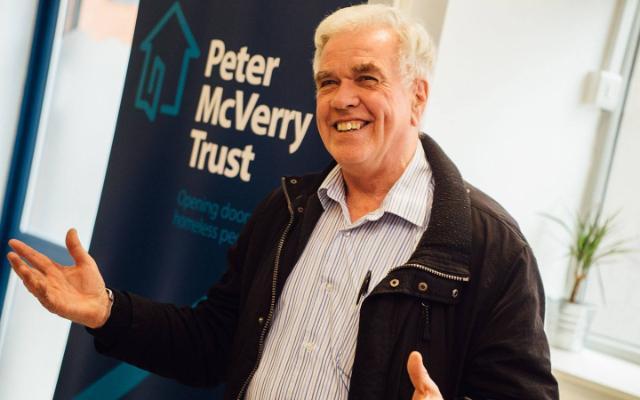
On 16 November the ISS21 Poverties, Social Justice & Inequalities Research Cluster hosted a seminar on the issue of homelessness in Ireland with researchers from the School of Applied Social Studies and guest speaker Fr Peter McVerry.
Read more -
Ethnic discrimination in the Irish housing market: Evidence from two field experiments
04 Nov 2021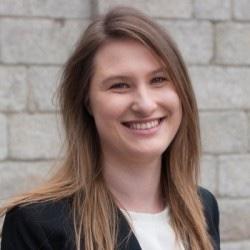
On 4th November the ISS21 Migration and Integration Research Cluster hosted a seminar with Dr. Egle Gusciute (Department of Sociology and Criminology, UCC) on the theme of ethnic discrimination in the Irish rental housing market.
There is consistent evidence of ethnic/racial discrimination against ethnic minorities in the housing market across Europe. In addition to greater challenges in securing accommodation, discrimination in the housing market has significant social and economic consequences for individuals and society.
Read more -
The University in the Era of Climate Change and the Responsibility of the Civic University
13 Oct 2021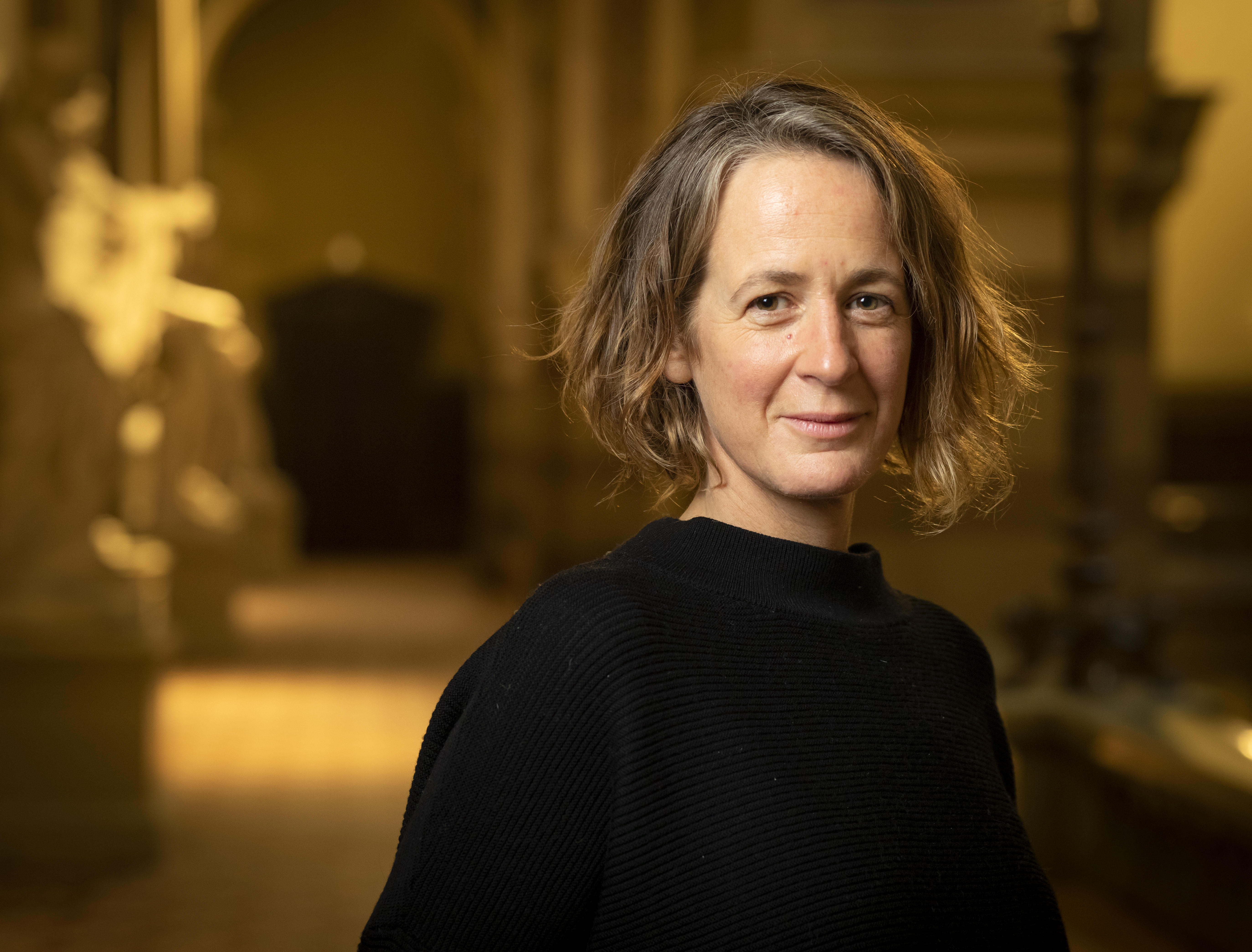
As part of UCC Community Week 2021, the ISS21 Research for Civil Society and Social Action (REACT) Cluster was delighted to host a seminar on the role of the university in the era of climate change with speaker Professor Keri Facer (University of Bristol) and discussant Professor John O’Halloran (President, UCC).
Read more -
Supporting Migrant Children’s Educational Access and Participation
23 Sep 2021-711x400.jpg)
-
New report: A Review of the National Carers’ Strategy
19 Jul 2021
As part of the CARERENGAGE project, Care Alliance Ireland and ISS21 have published a new report entitled 'A Review of the National Carers Strategy (2012): How Relevant are the Actions in 2021 and For The Future?'
Read more -
Family Carer Experiences of Inclusion and Exclusion
22 Sep 2021
On 22 September, Care Alliance Ireland and ISS21 hosted the third and final in a series of online round table events as part of the CARERENGAGE project. This series of workshops was designed to address the project goals of centering and embedding family carers in the co-production of carer research, supports and policy.
Read more -
Climate Action Across Generations
30 Apr 2021
This event, hosted by the ISS21 Ageing Research Cluster, explored climate activism and attitudes to environmental issues across different generations.
Dr Tracey Skillington opened the event with a paper on the experience of ecological grief and climate anxiety, and how these can be a stimulus for action on climate change. She outlined some of the legal challenges that have been mounted by citizens against their governments' inaction on environmental issues. These included, for example, a case lodged in 2020 by the Senior Women for Climate Protection with the European Court of Human Rights against the Swiss Government for its failure to keep emissions levels within sustainable targets and, in doing so, violating their rights to health and life.
Read more -
Cork Healthy Cities Action Plan Seminar
21 Apr 2021
Cork is a designated World Health Organisation (WHO) Healthy City since January 2012. With this designation is a requirement of the local authority to commit to health and a process and structure to achieve it. In this seminar Denise Cahill (Healthy Cities Co-coordinator) described initiatives that are underway in Cork city to increase the number of green spaces and open up different spaces (including streets and the river) for recreation, play and exercise. Initiatives/groups linked to Cork Healthy Cities include Green Spaces for Health, the Playful Paradigm Project, and the Cork Age Friendly City Programme.
Read more -
The Joy and the Pain
21 Apr 2021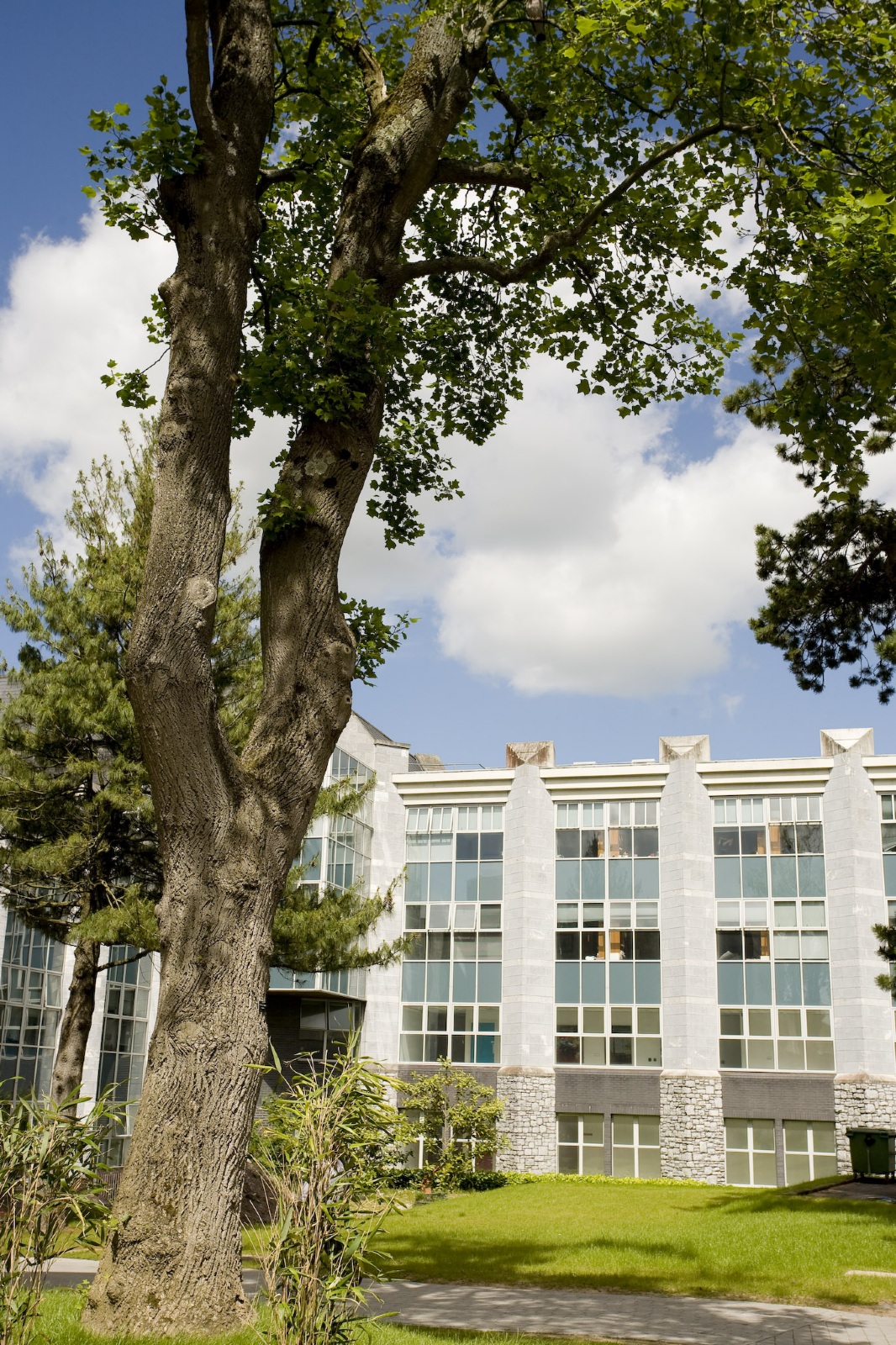
Dr Vanessa Lacey (Transgender Equality Network Ireland) shared insights from her research on the experiences of adult trans women, and the families of adult trans women, concerning grief and loss.
Read more -
Sustainability and the Environment: Developing New Disciplinary Norms in the Social Professions
10 Mar 2021
On 10 March 2021 the ISS21 Research for Civil Society and Social Action (REACT) Cluster hosted a well-attended webinar on environmental education and practice in the social professions. This was the second in a series of webinars that seeks to:
- share knowledge and ideas on the connections between climate change and the social professions,
- build the awareness and capacity of educators in the social professions to envisage and develop innovative environmental education practices through disciplinary and interdisciplinary collaboration,
- facilitate co-operation in this area between academic and practitioner colleagues across the social professions in Ireland and internationally.
-
ISS21 to co-host three new projects under IRC New Foundations
07 Apr 2021
We are delighted to announce that three ISS21-affiliated projects have been awarded funding under the Irish Research Council's New Foundations Programme. The projects will address important social issues in relation to housing needs on the West Cork Islands; enhancing energy efficiency in low-income homes; and young people with disabilities' learning/training experiences during the Covid 19 pandemic.
In line with the collaborative nature of the New Foundations scheme, researchers in UCC will work with partner organisations, including the Bere Island Projects Group, West Cork Development Partnership, Comhdháil Oileáin na hÉireann, the Money Advice and Budgeting Service (MABS) and the National Learning Network.
Read more -
Evaluating the National Carers Strategy: Future Directions
23 Mar 2021
On 23 March, ISS21 and Care Alliance Ireland hosted a workshop at which Dr. Maria Pierce presented the results of recent research with family carers, service providers and policy makers on their views of the National Carers Strategy (NCS). The NCS is the principal guiding Strategy relating to family carers in Ireland and has been in place since 2012. For a recording of Dr. Pierce's presentation, click here. The presentation slides are available at the following link: CarerEngage Presentation of Findings.
Read more -
Subjective Beliefs and Economic Preferences During the COVID-19 Pandemic
24 Mar 2021
During 2020, a team of experimental economists from the CEAR Lab (Atlanta, Cape Town, Utrecht) conducted 6 waves of online experiments, in the US and South Africa, to estimate relationships among people's risk preferences, their preferences over distributions of rewards over time, their beliefs about the future course of the COVID-19 pandemic, their sources of information about the virus, and their behaviour with respect to health and safety. In this seminar Professor Ross presented results on how well the US subjects' beliefs about COVID-19 matched the publicly available forecasts of epidemiologists over the course of the year. In relation to beliefs about the future course of the pandemic, young people's predictions were found to be broadly accurate. The research also suggests that young people generally became more risk averse during the pandemic.
Read more -
Migration Narratives: A Critical Exploration
25 Feb 2021
As part of Refugee Week 2021, the ISS21 Migration and Integration Research Cluster and the University of Sanctuary Working Group (USWG) co-hosted this webinar on migration narratives, with speaker Kilian Kleinschmidt.
Read more -
Deploying a Gender Lens: Snapshots from Current Research
18 Feb 2021
This seminar showcased the work of two ISS21 Genders, Sexualities and Families Research Cluster members, Charlotte Waltz, PhD candidate and Dr Robert Bolton, ISS21 Post-Doctoral Researcher on the Horizon 2020 PositivMasc Project. Drawing on their respective projects, both researchers highlighted the significance of applying a gender lens in research.
Read more -
Moving Towards a Barnahus Model: Setting the Scene for an Integrated Response to Child Sexual Abuse
22 Feb 2021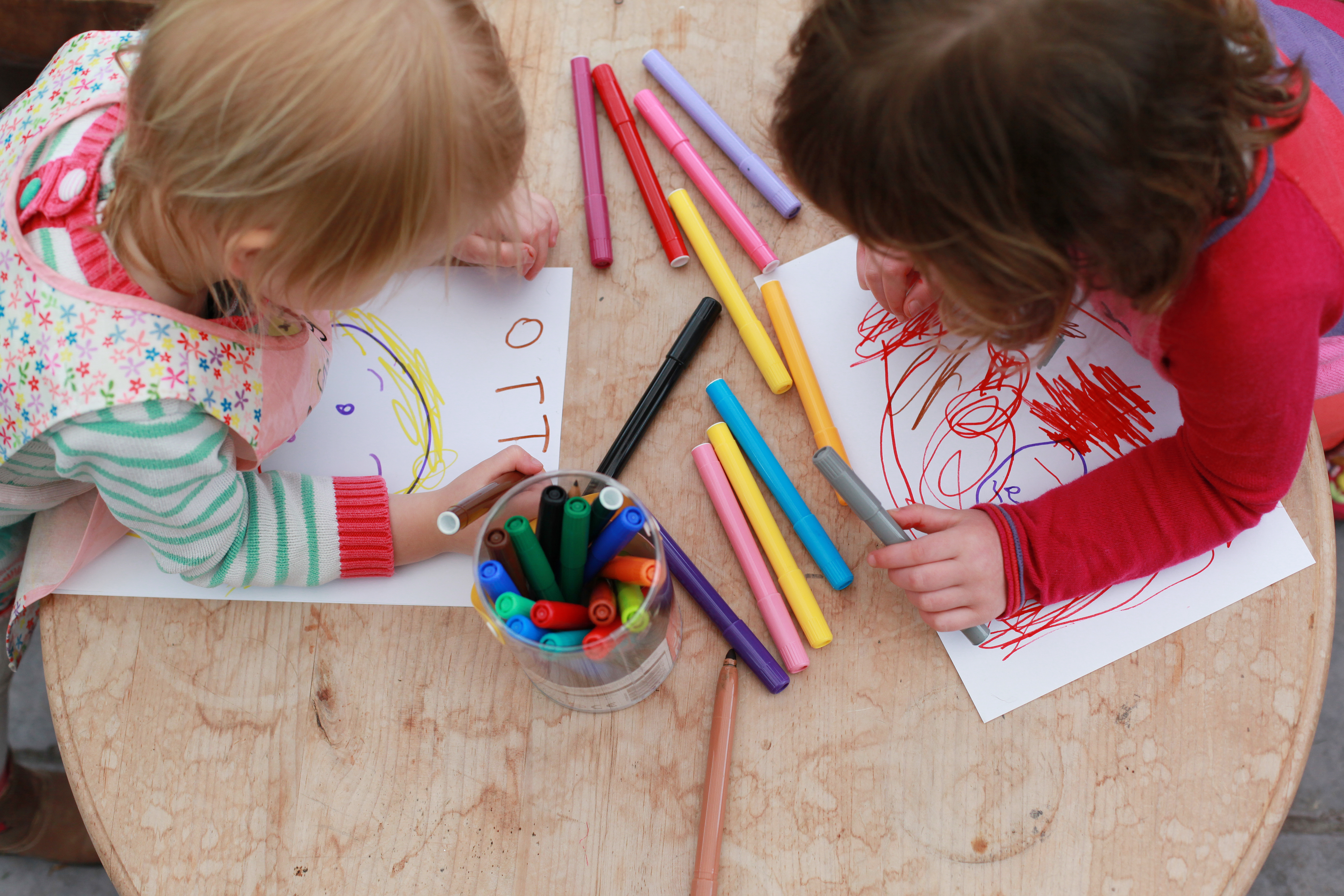
On Monday 22 February the ISS21 Children and Young People Research Cluster hosted a seminar on the Barnahus model of service provision to children in sexual abuse cases, with presentations from Aoife O’Malley, Manager of Barnahus OneHouse Galway, and Fiona Geraghty, Principal Social Worker at the Family Centre in Cork.
Read more -
Launch of Guidance on Access For Deaf Irish Sign Language Users
29 Jan 2021.png)
On Friday 29 January Senator Mark Daly, Cathaoirleach of Seanad Éireann, officially launched the guidance document Providing Access for Deaf Irish Sign Language Users: Guidance for Public Bodies. The key note address - “It’s Time to Act to Ensure the ISL Act is Successfully Implemented” - was delivered by Dr John Bosco Conama, Centre for Deaf Studies, Trinity College Dublin. The remarks made by Senator Daly and Dr Conama highlighted the need for continuing efforts to ensure the full and effective implementation of the Irish Sign Language Act 2017, following its commencement in December 2020.
The guidance on access for ISL users is based on research conducted by Dr. Gill Harold, working in partnership with Cork Deaf Association and Kerry Deaf Resource Centre. Funded by the Irish Human Rights and Equality Commission, the project was hosted by UCC's School of Applied Social Studies and ISS21. Further details on the project can be accessed here
Read more -
Turing’s children: Representation of sexual minorities in STEM
15 Dec 2020
On the 15 December 2020, Dr. Dario Sansone presented a webinar on the under-representation of sexual minorities in STEM fields, based on research he conducted with Christopher S. Carpenter, Vanderbilt University, Tennessee. The findings were published in Turing’s children: Representation of sexual minorities in STEM (https://doi.org/10.1371/journal.pone.0241596).
Read more -
Sustainability and the Environment: Developing New Disciplinary Norms
06 Nov 2020
Pressing global issues like environmental change and migration are increasingly covered in the Social Work, Youth Work and Community Development and Nursing literatures. Much of the literature discusses the need for greater awareness of environmental, climate and associated issues amongst these professional groups and the need to integrate these topics into professional education and training.
Read more -
Conversion to Islam in “Multicultural” South Korea and the Struggle for Belonging
31 Jan 2020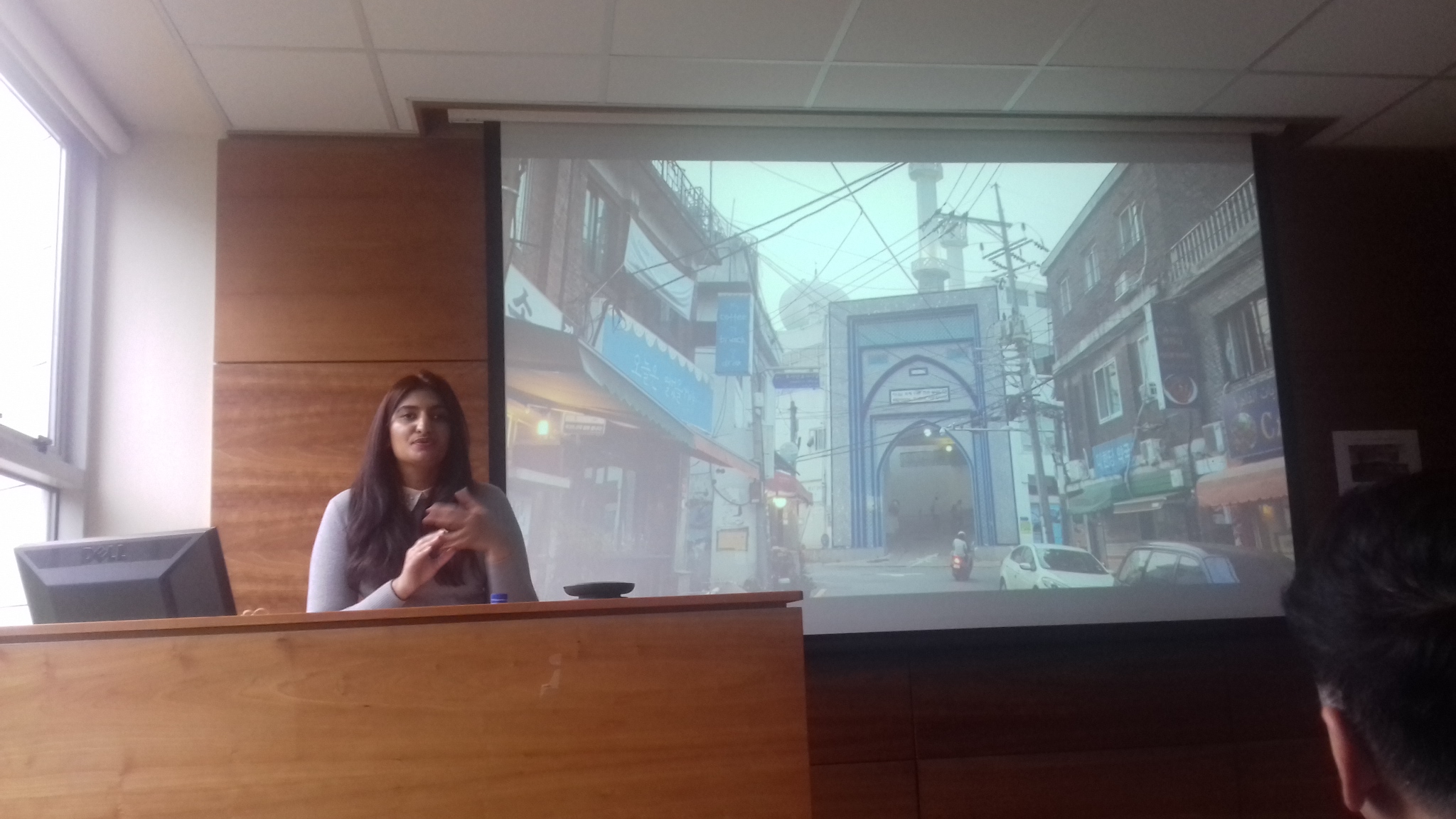
On 31 January, ISS21 and the Study of Religions Department hosted a seminar with visiting speaker Dr Farrah Sheikh on South Korean women's experience of conversion to Islam and their struggle for belonging.
Read more -
The Special Rapporteur for Child Protection in Ireland: Stories from the Field
09 Dec 20202-477x400.jpg)
In July 2019, Professor Conor O’Mahony was appointed as Special Rapporteur for Child Protection for a three-year term by the Minister for Children and Youth Affairs, Dr Katherine Zappone. The Rapporteur is accountable to the Oireachtas and is entitled to consult with government departments and the Ombudsman for Children about legislative initiatives designed to enhance child protection.
Read more -
Ethnographic and Biographical Methods Seminar
02 Sep 2020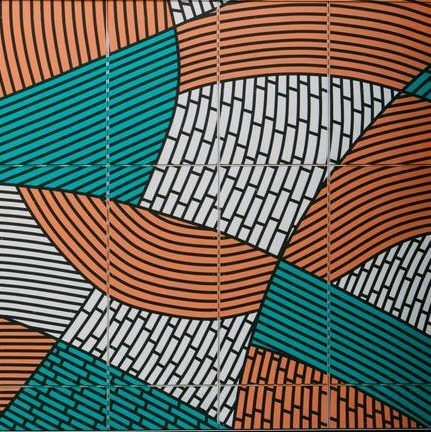
Ethnographic and biographical methods were explored in the third seminar in the ISS21 Creative Methodologies seminar series 2020. Presentations were made available to watch on the ISS21 website in advance of an online discussion with the three presenters on 2nd September. In a lively discussion, presenters and attendees addressed a range of issues, including the challenges of accessing historical sources; the use of object-based interviews in researching migrant home-making; ethical issues in bibliographical and ethnographic research; and the archiving of interviews, images and other research data. The seminar was chaired by Dr Claire Edwards, ISS21 Director.
Read more -
Walking Methodologies Seminar
17 Jun 2020.jpg)
The second seminar in the ISS21 Creative Research Methodologies Seminar Series 2020 explored the use of walking methodologies across a range of different research topics - from dog walking and young people's experiences of their neighbourhood, to migrant home-making and revisiting sites of feminist resistance. Papers were made available to watch on the ISS21 website in advance of an online discussion with the presenters which was hosted live on Wednesday 17 June. The seminar was chaired by Dr Claire Edwards, ISS21 Director.
Read more -
Research as Participatory Process: Participative and Reflective Methods
09 Nov 2020-481x400.jpg)
The final seminar in the ISS21 Creative Research Methodologies Seminar Series 2020 explored the use of participative and reflective research methods. Papers were made available to watch on the ISS21 website in advance of an online discussion with the presenters, Rebecca Dennehy, Monica O’Mullane, Siobhan O’Sullivan and Katie Power, on Monday 9 November. The seminar was chaired by Dr Margaret Scanlon, ISS21 Research Coordinator.
Read more -
Public Patient Involvement (PPI) in Family Carer Research
13 Oct 2020
As part of an ongoing PPI collaboration, Care Alliance Ireland and ISS21 launched their joint initiative entitled CARERENGAGE: Centering and Embedding Family Carers in the Co-Production of Carer Research, Supports and Policy, funded by the Irish Research Council New Foundations Programme, on 13 October 2020.
Read more -
Reflections on Institutionalising Gender Equality
15 Nov 2019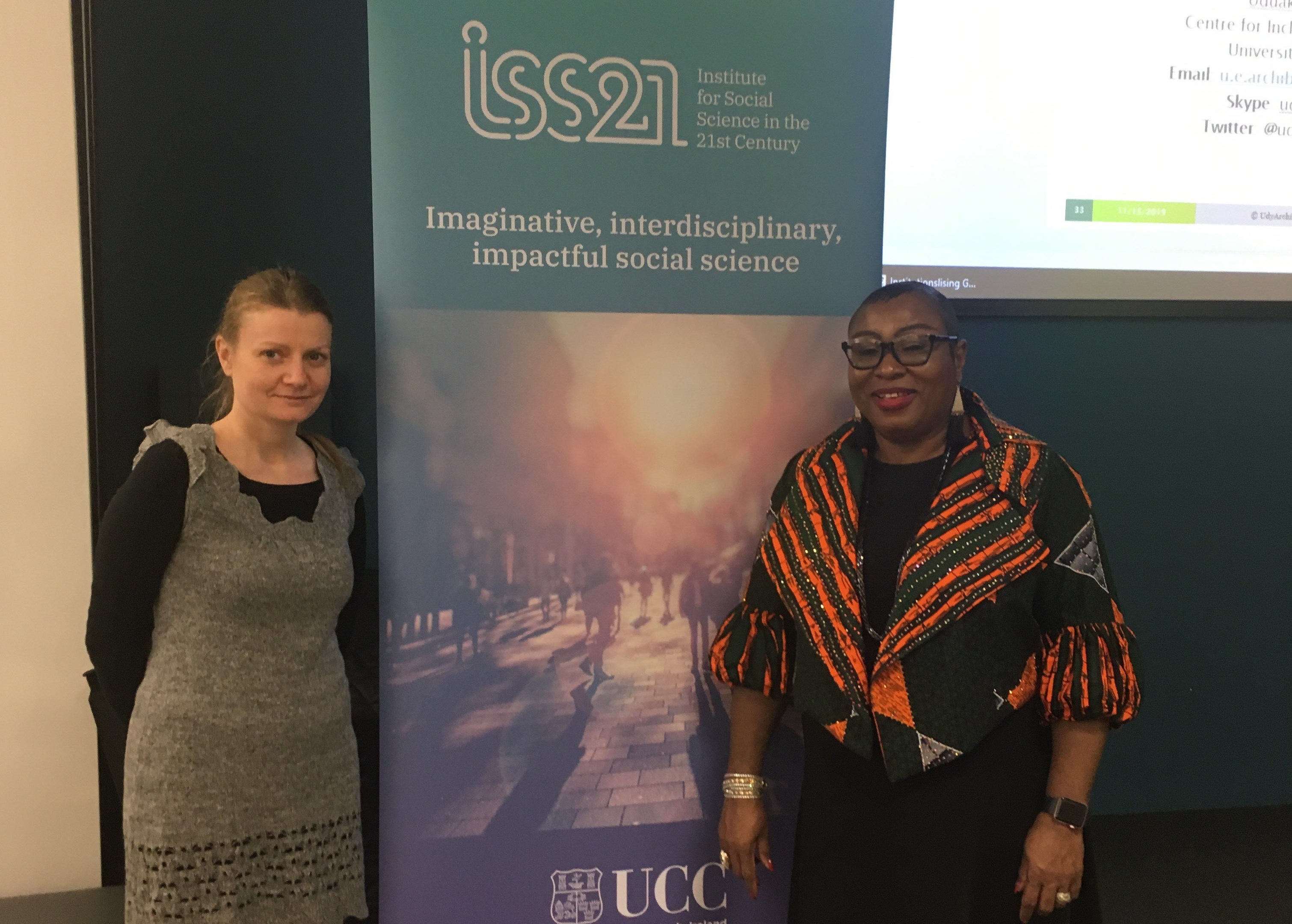
On 15 November ISS21, with EC funded project GendeResearchIreland, hosted a seminar with Professor Uduak Archibong on the theme of institutionalising gender equality in higher education.
Read more -
‘Other' Voices: Children and Music within Asylum Seeker Accommodation
30 Jan 2020
In this seminar Dr Ailbhe Kenny, lecturer and coordinator of Music Education at Mary Immaculate College, presented the findings from participatory music projects about how children living within asylum seeking accommodation make and learn music individually and collaboratively. Dr Kenny also considered the social and cultural uses of music, children’s musical interactions and identities, as well as the social impact of music making within such centres. Insights were drawn from across two country case studies, Ireland and Germany.
Read more -
ISS21 to co-host 6 new projects under IRC New Foundations
07 May 2020.jpg)
We are delighted to announce that six ISS21-affiliated projects have been awarded funding under the Irish Research Council's New Foundations Programme. Research projects funded under Strand 1 of the programme ('Engaging Civil Society') will address important social issues in the fields of ageing, migration and integration, care-giving, and volunteerism. In line with the collaborative nature of the call, researchers in UCC will work in partnership with civil society organisations, including Care Alliance Ireland, Cork Volunteer Centre and Age Action.
A further two projects were funded under Strand 2 'Knowledge Exchange for Impact' and will build international collaborations with partner universities in Belgium and Mexico around the themes of participatory governance, and migration and border securitisation.
Congratulations to all successful applicants, we look forward to working with you in the coming year!
Read more -
Music, Sound, and Power in Contemporary Places of Detention
20 Feb 2020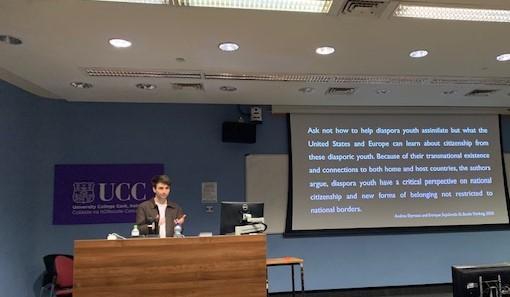
This two-hour seminar featured lectures by Tom Western (University of Oslo/University of Oxford) and Áine Mangaoang (University of Oslo) on the significance of music for those in carceral spaces, including prisons and refugee camps.
Read more -
Covid-19 and Vulnerable Migrant Populations
29 Apr 2020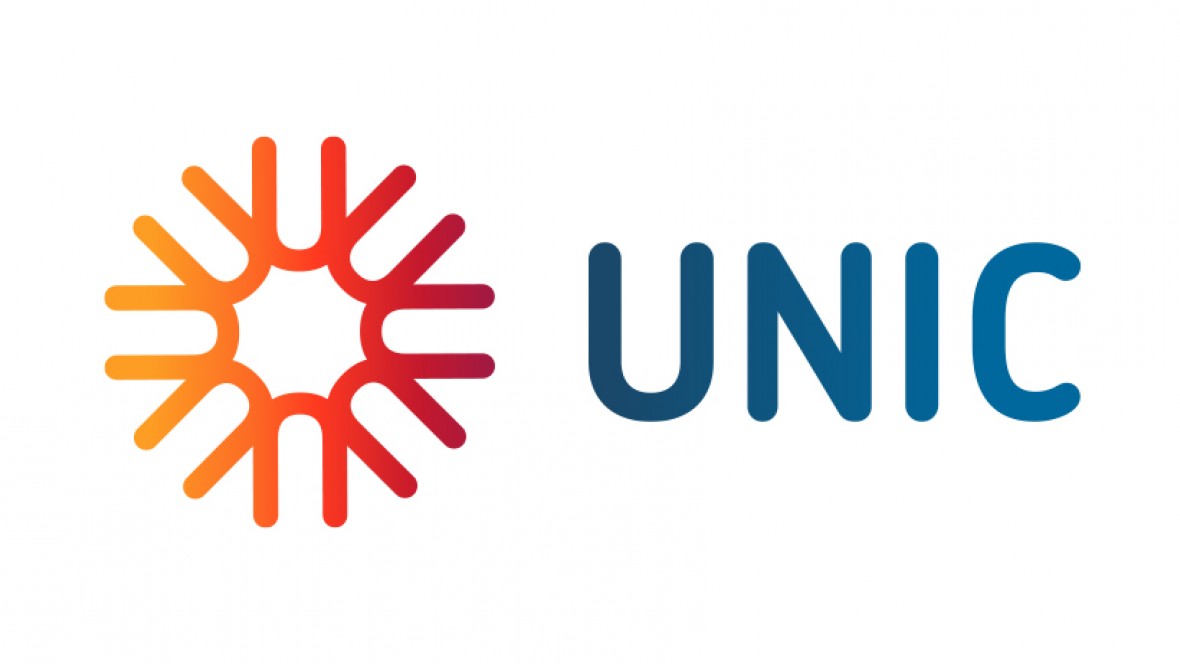
As part of our involvement in UCC's membership of the UNIC universities initiative, and our membership of IMISCOE, ISS21 is participating in the recently launched UNIC online lecture series, 'Migration and Corona'.
Read more -
Looking and seeing: developing creative visual methodologies in social science research
09 Mar 2020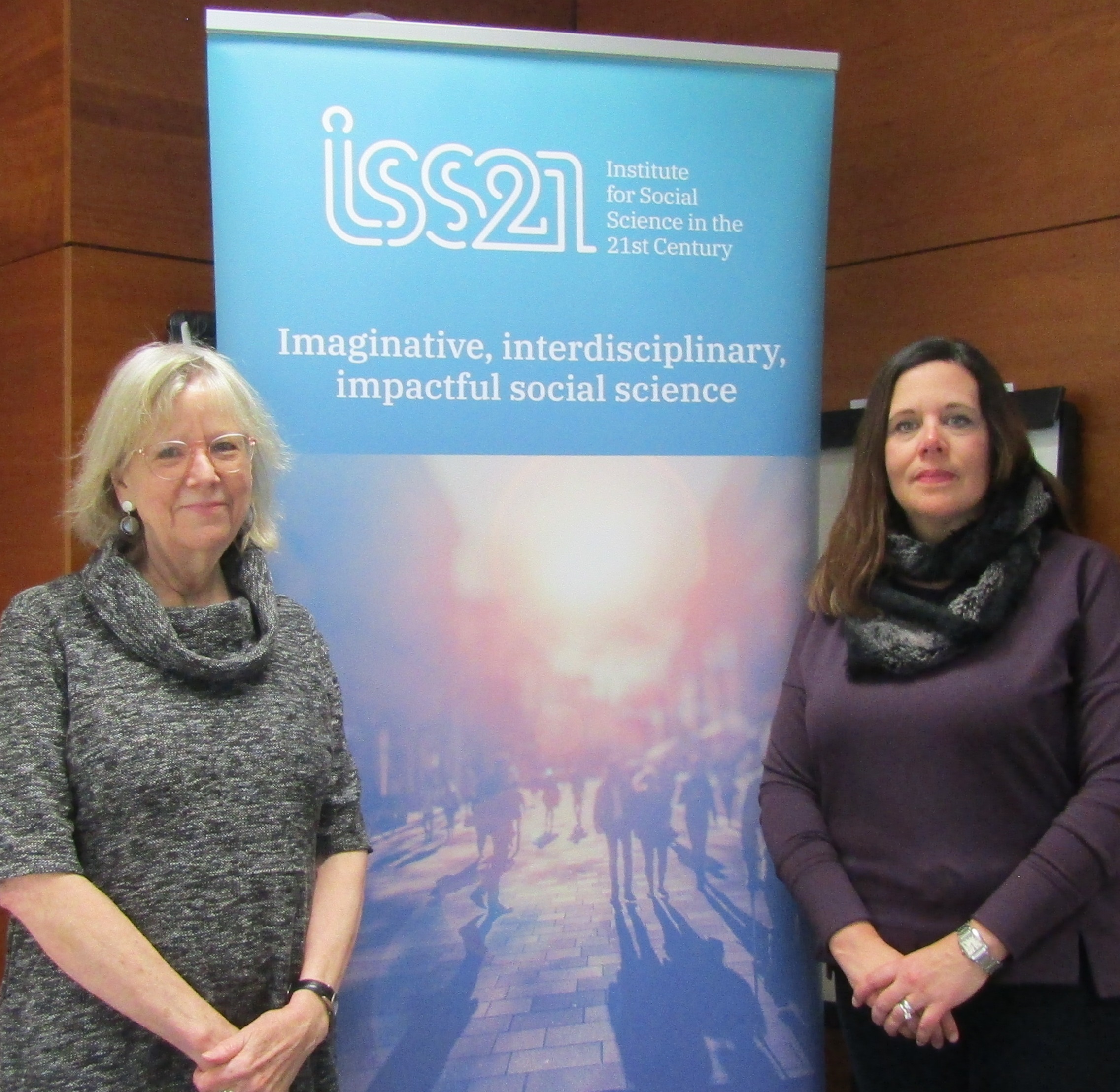
The first seminar in the ISS21 Creative Social Science Research Methods Seminar series 2020 was held on 9 March, with two papers exploring the use of visual methodologies.
Read more -
Masterclass: Creative Research Methodologies with Children & Young People
24 Oct 2019
On the 24 & 25 October the ISS21 Children and Young People Research Cluster, in conjunction with the Children's Research Network, hosted a masterclass on creative research methodologies with children and young people.
Read more -
ISS21 at Cork Discovers 2019
27 Sep 2019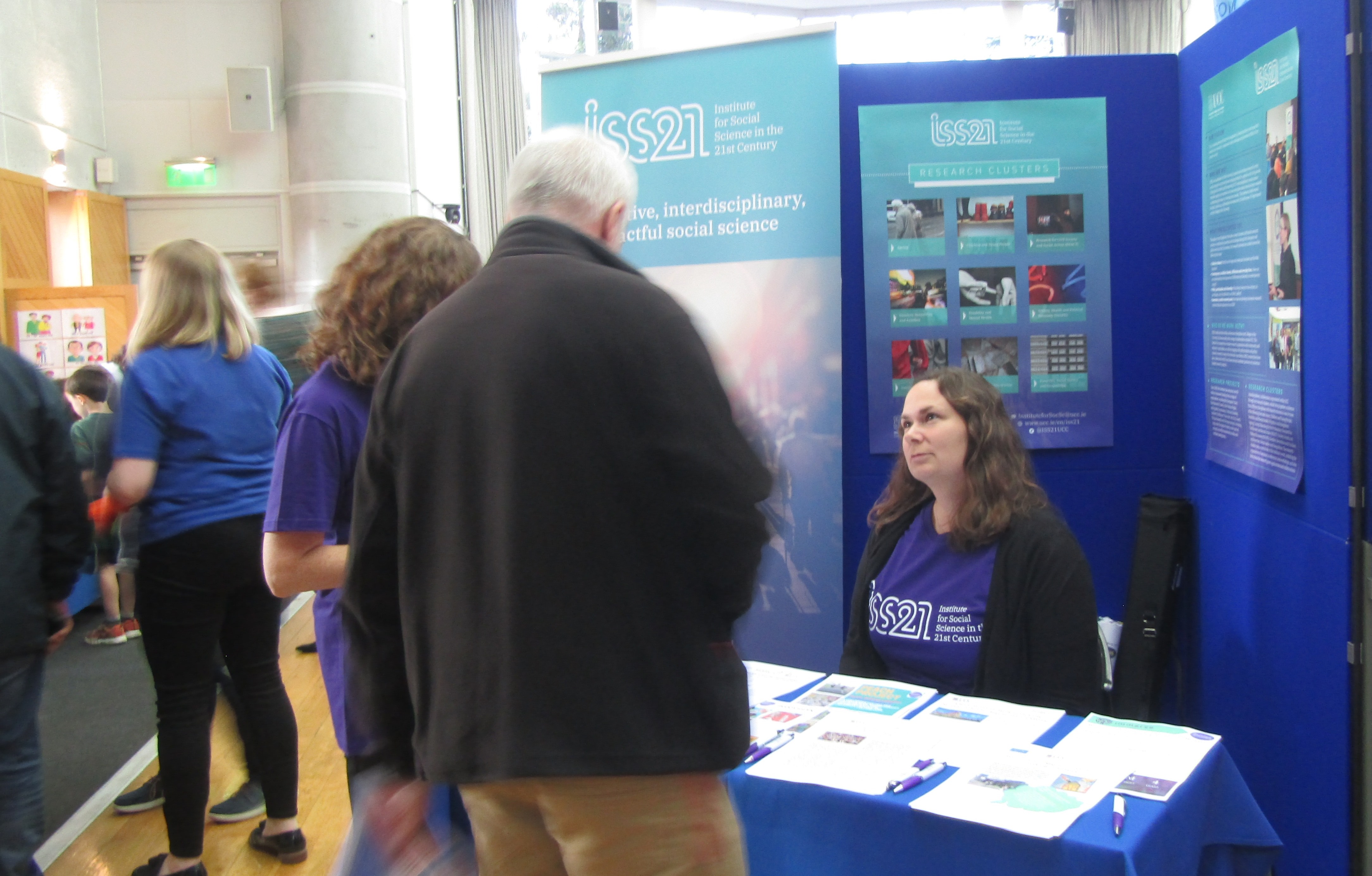
Seeing Society Differently
ISS21 was delighted to participate in Cork Discovers again in September 2019. Our theme for this year’s event was ‘Seeing Society Differently’, focusing on how social science research can provide new insights into our everyday lives and the things that matter to us, such as: How do we envisage and create just, inclusive and liveable societies? How can we understand the lived experience of difference and identity in contemporary society?
Read more -
‘Community, Urban Futures and Faith Belonging in Children's Art’
11 Jun 2019On the 11 June 2019 the ISS21 Children and Young People Research cluster hosted a seminar on interfaith childhoods with Anna Hickey-Moody, Professor of Media and Communication at RMIT University, Australia.
Read more -
Contested Spaces of Belonging: asylum, direct provision and beyond
06 Sep 2019On 6th September the Migration and Integration research cluster hosted a symposium on ‘asylum’ and contested spaces of belonging, centering on current research exploring issues relating to integration, belonging/not-belonging and place for asylum-seekers and refugees.
Read more -
Launch of ISS21 Strategic Plan 2019-2024
04 Nov 2019.jpg)
On 4 November 2019, UCC President, Professor Patrick O'Shea, formally launched the ISS21 Strategic Plan 2019-2024, which sets out a vision for the Institute’s role as a leading centre for imaginative, interdisciplinary and impactful social science research.
Read more -
ISS21 hosts international migration conference
02 Sep 2014
Researchers based in twelve different countries converged on UCC Tuesday, September 2nd, to map some of the key ways that economic, social and political crises in Europe have changed people’s migration patterns and life chances. The conference, titled ‘Crisis, Mobility and New Forms of Migration’ will run until lunchtime on September 4th.
Read more -
Challenges in Current Ageing Research
10 Apr 2019Road to the Irish Gerontology Society Meeting 2019: Challenges in Current Ageing Research
The 67th Annual Irish Gerontological Society Meeting will be held on September 26-28th 2019 in Cork. In advance of the meeting, the ISS21 Ageing Research Cluster organised a half-day workshop to discuss current themes in ageing research in Ireland, showcase UCC research, and foster networking and participation in the IGS from researchers interested in different aspects of ageing.
Key note speeches were delivered by Seán Moynihan (CEO, ALONE) and Cathal McCrory (The Irish Longitudinal Study on Ageing, TILDA). This was followed by a series of short presentations from researchers and PhD students from a range of disciplinary backgrounds, including psychology, biochemistry, public health and music.
Abstracts for IGS close on 1st May. Information can be found at https://www.irishgerontology.com/events/67th-annual-scientific-meeting-irish-gerontological-society
Anyone interested in joining ISS21 UCC Ageing Cluster can contact Annalisa Setti a.setti@ucc.ie or Edel Walsh e.walsh@ucc.ie
Read more -
Evidence Amalgamation Workshop
10 May 2019
On 10 May the Society, Health and Political Economy (SHAPE) research cluster hosted a full-day workshop on evidence amalgamation, with Irish and international presenters. The event was organised by Eluska Fernandez (School of Applied Social Studies) and Katherine Furman (Department of Philosophy) and funded by the CACSSS interdisciplinary award.
Context for Workshop
Criticisms against randomised controlled trials as the most important source of evidence for policy are now well-established. But now that it is permissible to make use of many different types of evidence, how do we combine them to make policy? This was one of the key issues addressed in the course of the workshop.
Read more -
Children & Young People Research Cluster Showcase
09 Apr 2019In this showcase event, members of the Children and Young People Research Cluster presented short papers on their on-going or completed research. A range of research topics were presented by colleagues from different disciplinary backgrounds (Law, Sociology, Occupational Therapy, Applied Social Science) including: the use of animation in children's research, the political socialisation of school children, the integrations of migrant children in schools, and the use of voluntary care arrangements in Ireland (full list below).
The ISS21 Children and Young People (CYP) Research Cluster brings together researchers from a wide range of disciplines in order to collaborate, promote awareness and disseminate research with and for children and young people. For further information on the cluster, please click on the following link: Children and Youth
Those wishing to join the CYP cluster should contact Margaret Scanlon (m.scanlon@ucc.ie).
Read more -
Past, Present and Future of Patient Payment in the Irish Healthcare System
28 Mar 2019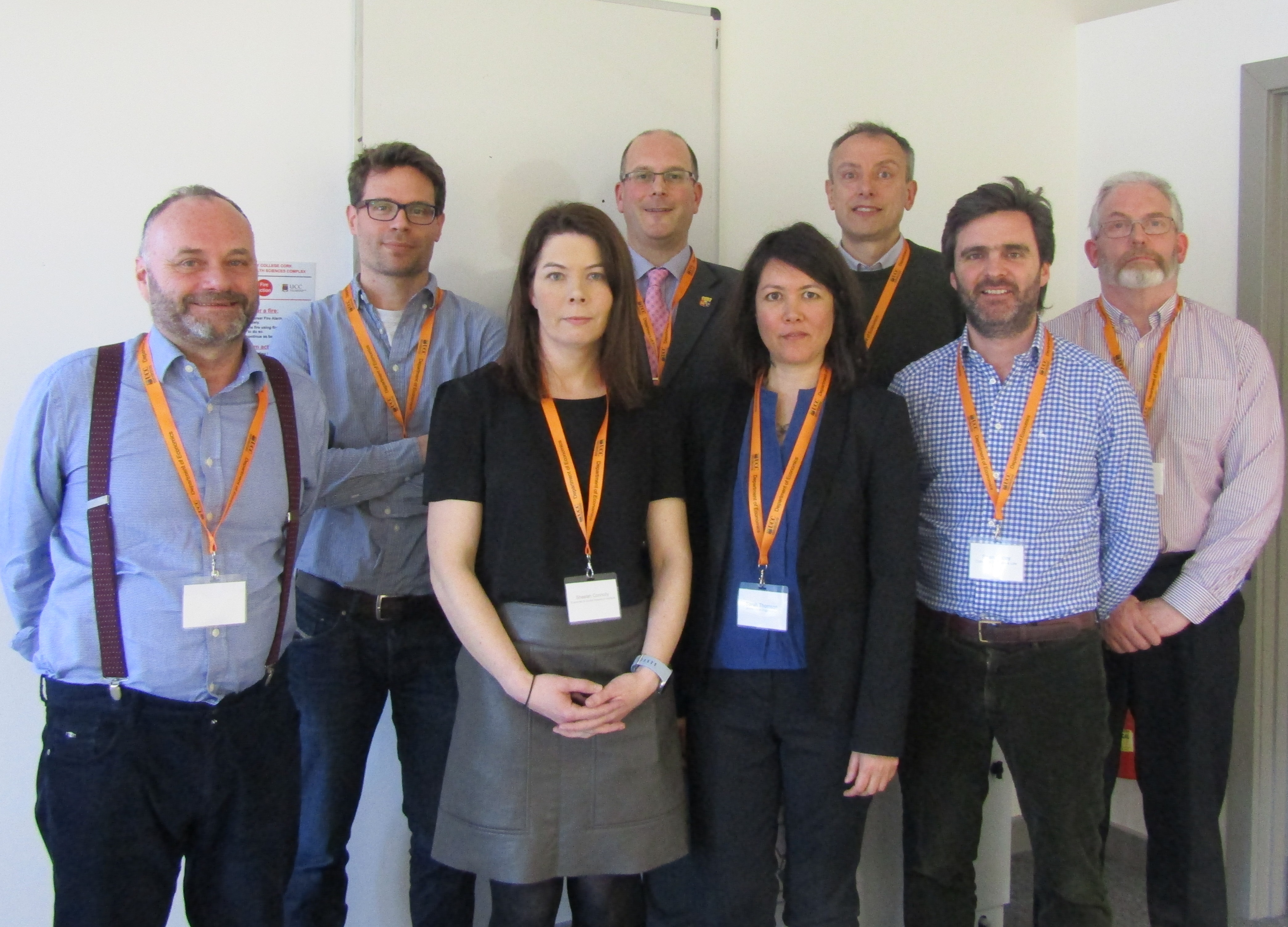
Background
The Irish health system has often been criticised as being a ‘two-tier’ system, which favours privately insured patients over public patients. Although this description does not capture all the nuances of the system, it is reasonable to suggest that the Irish health system contains a number of inequities, partly arising from a combination – and interaction – of different funding mechanisms.
Read more -
Disability, Mental Health and the Ethics of Vulnerability
21 Feb 2019This half-day seminar explores the concept of vulnerability in the contexts of mental health and disability-related research.
Read more -
Beyond Trafficking - reflection on research with child and youth migrants in the majority world
24 Apr 2018On 24 April 2018, the ISS21 Migration and Integration Research Cluster hosted a seminar with visiting academic, Dr. Roy Huijsmans of the International Institute for Social Studies at Erasmus University Rotterdam. Dr Huijsmans presented the findings of his research with child and youth migrants in the majority world.
Read more -
New Marie Sklodowska-Curie Fellow
13 Sep 2018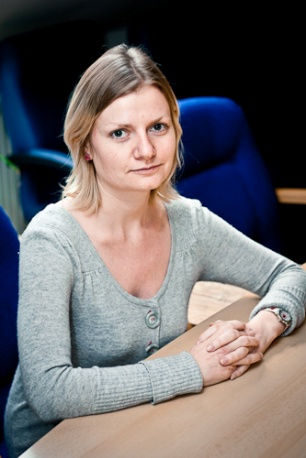
ISS21 is delighted to welcome our new Marie Sklodowska-Curie Research Fellow, Dr. Monica O'Mullane, who has recently joined the Institute to conduct research on gender equality in higher education.
Read more -
Minister Sean Sherlock visits ISS21
15 Feb 2014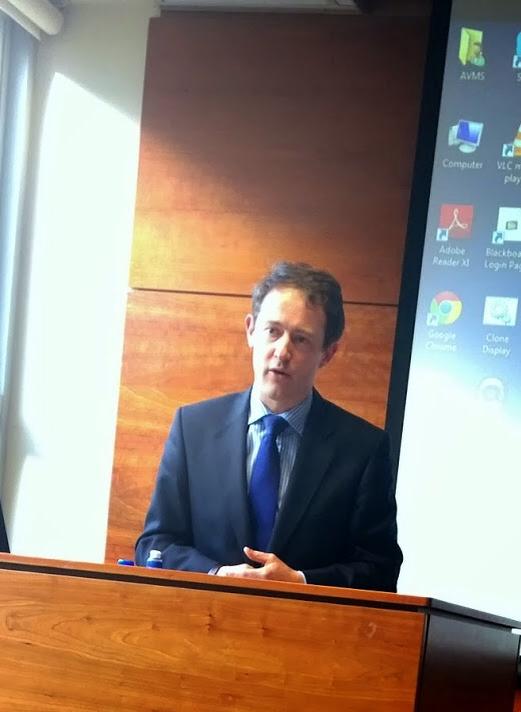
Minister of State for Research and Innovation Sean Sherlock TD visited ISS21 on 10th February 2014.
Read more -
Conference on Play
09 Oct 2015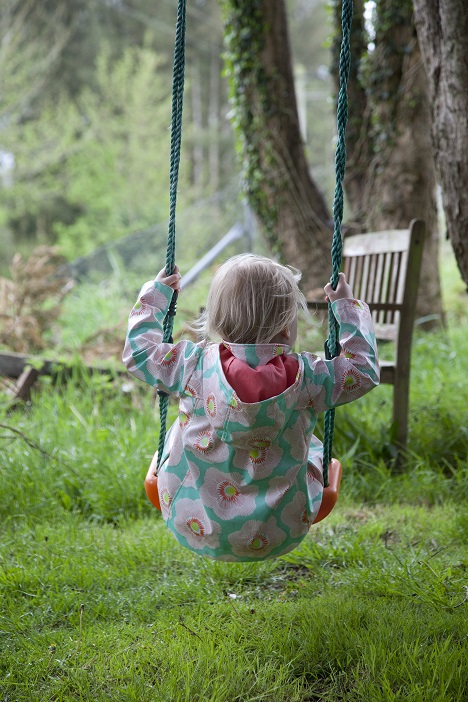
Play Matters – exploring children’s play worlds
A one-day conference to mark the 30th anniversary of Wallaroo Playschool, Cork
In collaboration with the Institute for Social Sciences in the 21st Century – Children and Young People Research Cluster
13 November 2015 @ UCC
Read more -
International Conference on Crisis, Mobility and New Forms of Migration
30 Jan 2014
The ISS21 Migration and Integration Research Cluster will host a major international conference exploring the theme of Crisis, Mobility and New Forms of Migration on 2-4th September 2014.
Read more -
Visiting ISS21 Scholar Dr Nollaig Frost
30 Sep 2013
ISS21 is very pleased to welcome Dr Nollaig Frost as Visiting Scholar at the Institute during Autumn 2013.
Read more -
Sheffield academics to visit ISS21
20 Sep 2013
We look forward to welcoming Professor Allison James and Professor Penny Curtis (Directors of the Centre for the Study of Childhood and Youth at Sheffield University) who will visit the ISS21 Children and Young People Research Cluster on the 3rd and 4th October 2013. Their visit is supported by the UCC Strategic Research Fund. During their visit they will participate in a number of research activities including the events below:
Read more -
Video of Anti-Racist Social Justice Praxis now available
28 May 2015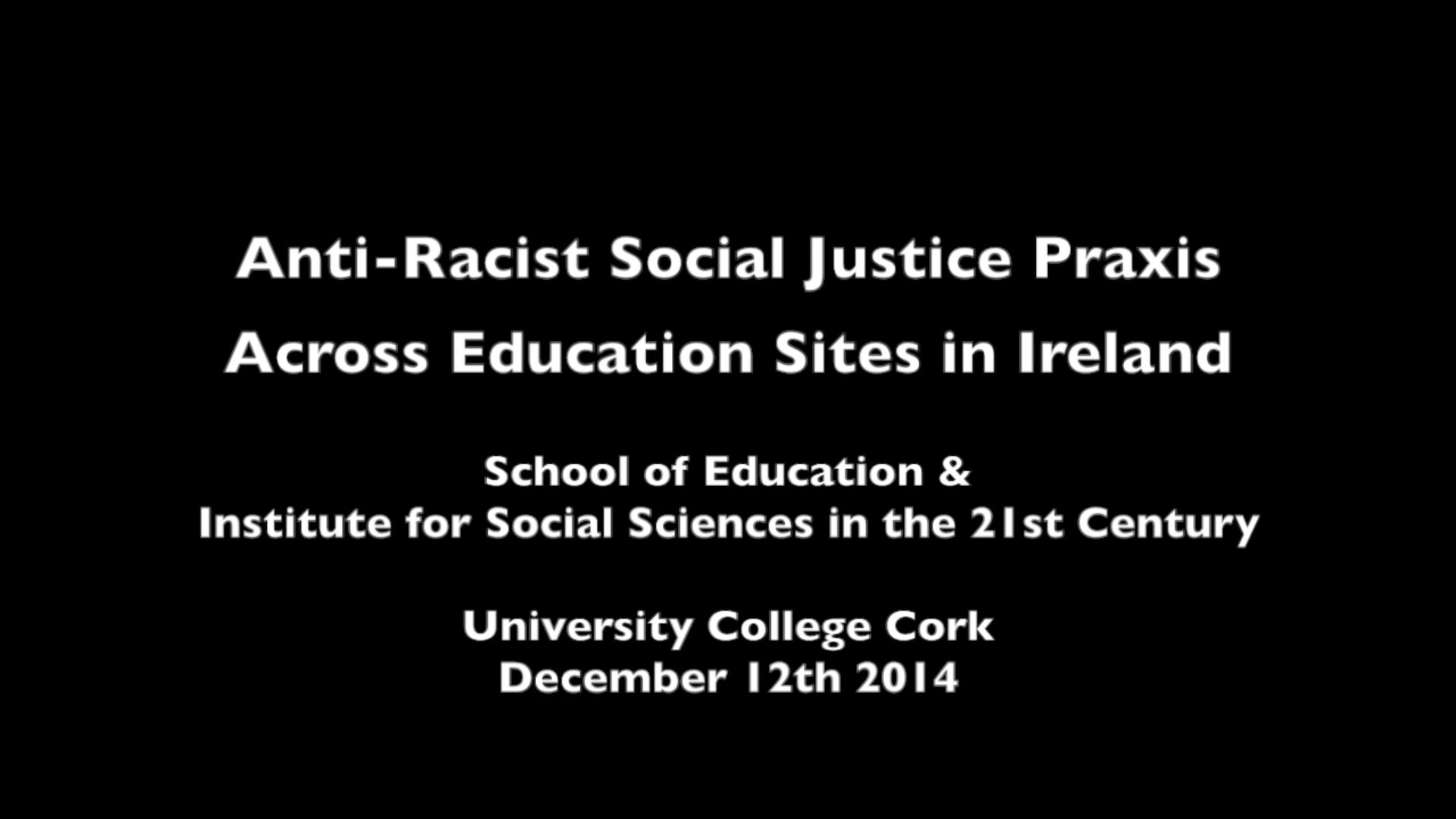
Videos of presentations from the Irish Research Council-funded event 'Anti-Racist Social Justice Praxis across Education Sites in Ireland' are now available online:
Click on: http://www.ucc.ie/en/education/res/researchevents/antiracisteducationireland/
Read more -
Mad Activism in Academia
24 Mar 2016
The ISS21 cluster on Mental Health and Disability is pleased to announce a one-day seminar entitled: Mad Activism in Academia: Challenging Traditions
Read more -
New Perspectives on Youth Political Participation
13 Feb 2018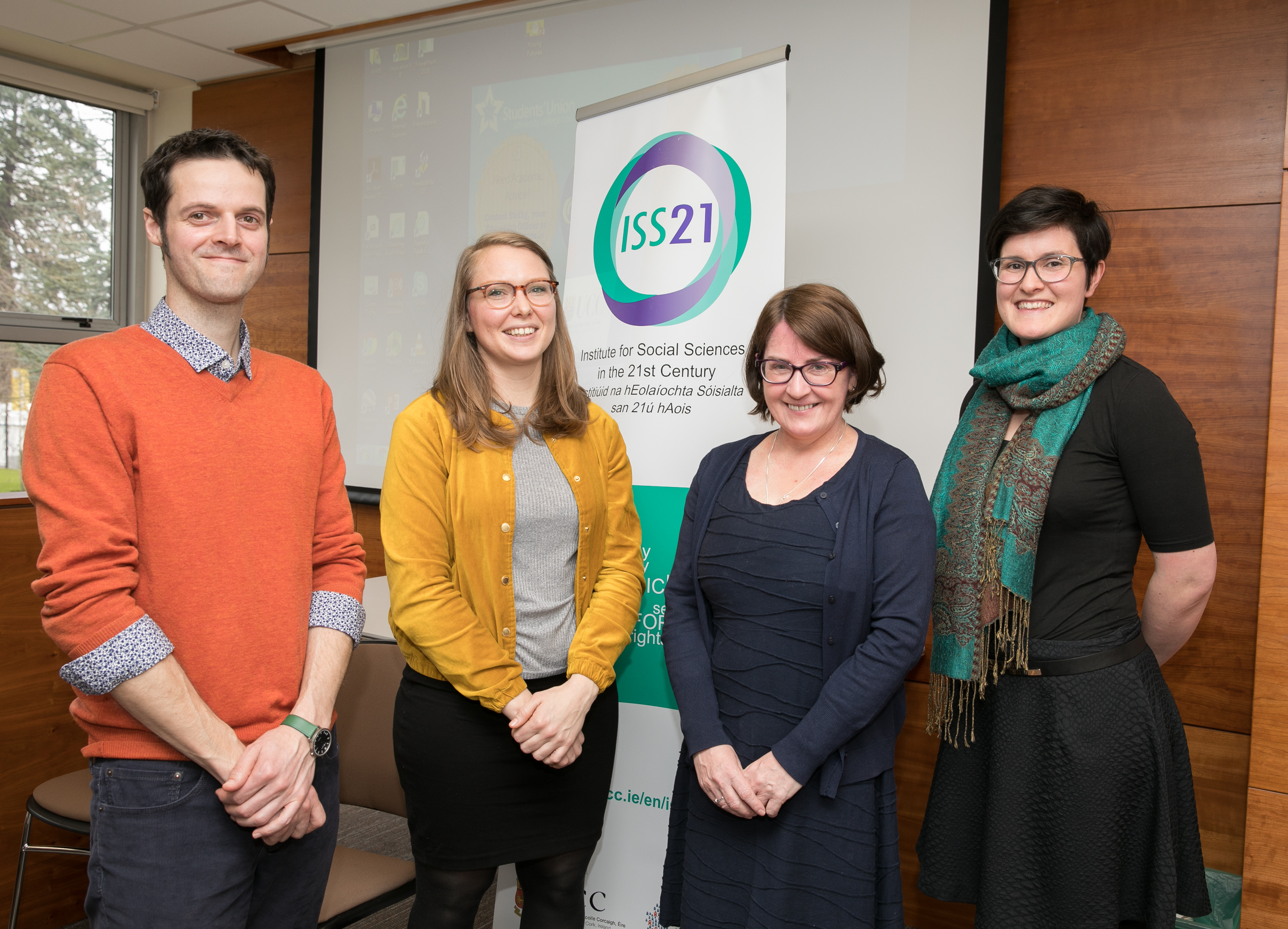
The ISS21 Civil Society cluster hosted ‘New Perspectives on Young People’s Political Participation’ on Friday 23rd February 2018.
Read more -
Professor Peadar Kirby's reflections on 'What We Leave in Our Wake'
19 Mar 2013
Professor Peadar Kirby (Professor Emeritus, University of Limerick) provides some reflections on 'What We Leave in Our Wake' in advance of the screening on March 20th.
Read more -
Seminar Series - Current Research on Migration and Integration
12 Feb 2018
The ISS21 Migration and Integration Research Cluster has a great line-up of speakers from among cluster members for this term's internal cluster seminar series. All are welcome.
Read more -
Public forum on Muslim immigration in Europe
07 Oct 2016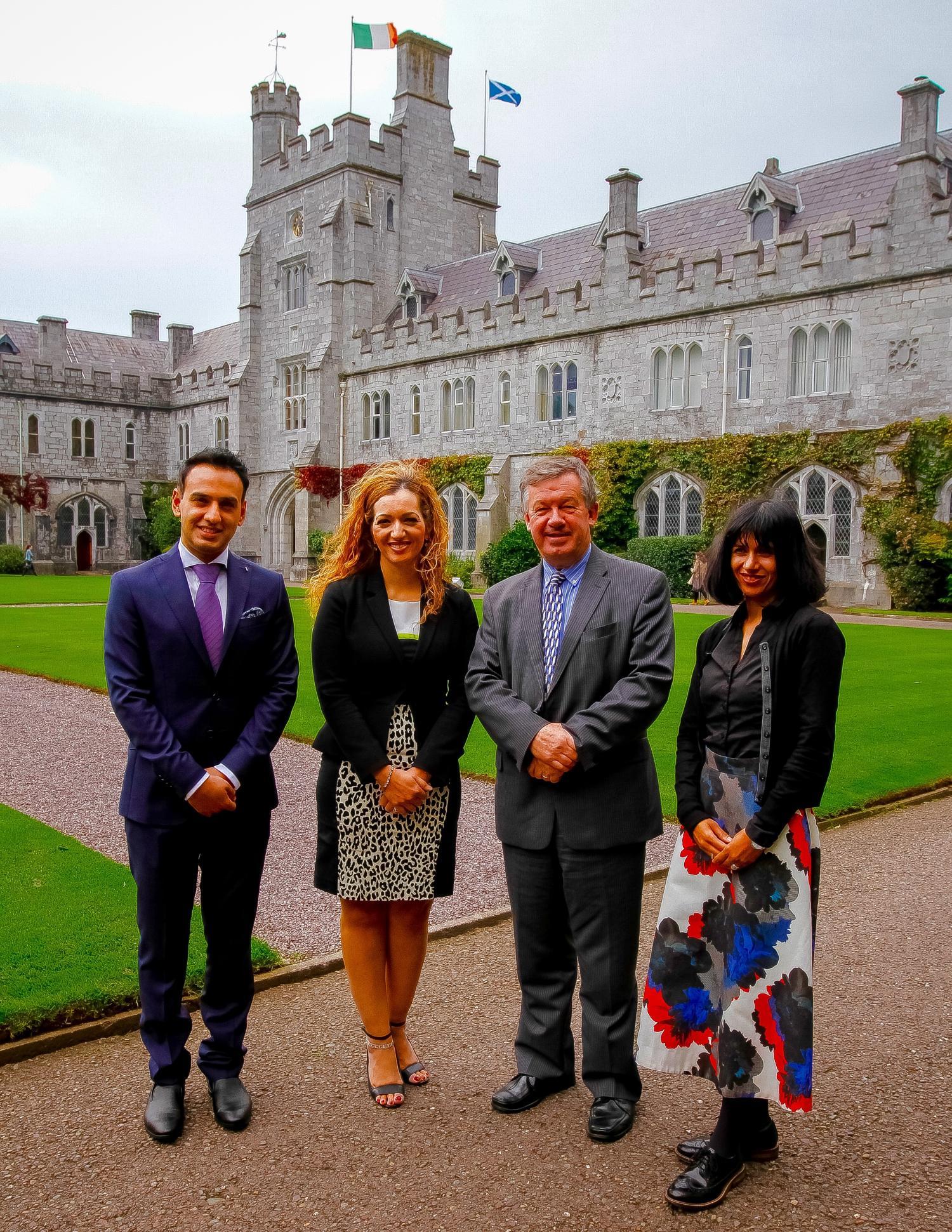
On Friday 23rd September 2016 a forum was held on 'Muslim Immigration in Europe: Masculinity, Politics and Law' organised by Study of Religions in collaboration with ISS21 Migration/Integration Cluster, Centre for Criminal Justice and Human Rights (CCJHR) and Women’s Studies.
Read more -
ISS21 visit to Sheffield Centre for Study of Childhood and Youth
29 May 2013
Deirdre Horgan (School of Applied Social Studies) and Helen Lynch (Department of Occupational Therapy) recently visited the Centre for Study of Childhood and Youth (Sheffield University) on behalf of the ISS21 Children and Young People Research Cluster.
Read more -
Inter-disciplinary encounters: neuroscience, social science and the politics of research
19 May 2017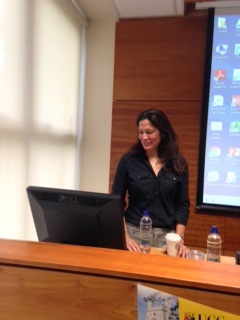
On 5th May, the ISS21 Children and Young People Cluster, and ISS21 Disability and Mental Health Cluster, in conjunction with the School of Applied Social Studies, hosted a half day seminar exploring the relationship between neuroscientific and social scientific knowledges in the context of early intervention with children, and autism.
Read more -
'Spaces for Change? The Practice and Policy of Community Participation in Local Governance in Ireland'
29 Nov 2018.jpg)
On the 29th November 2018, the ISS21 Civil Society Cluster hosted a seminar on the practice and policy of community participation in local governance in Ireland. Speakers at the event included: Dr Mary Murphy, Department of Sociology, National University of Ireland, Maynooth; Dr Aodh Quinlivan, Department of Government, University College Cork; Aiden Lloyd, Chair of the Rights Platform and member of South Dublin PPN Secretariat and LCDC; and Dr Catherine Forde, School of Applied Social Studies, University College Cork.
Read more -
Prof Smadar Lavie to speak on 'Mizrahi Mothers, Wrapped in the Flag: Ultra-Nationalism, Apartheid, and the Divinity of Bureaucracy in Israel'
08 Sep 2014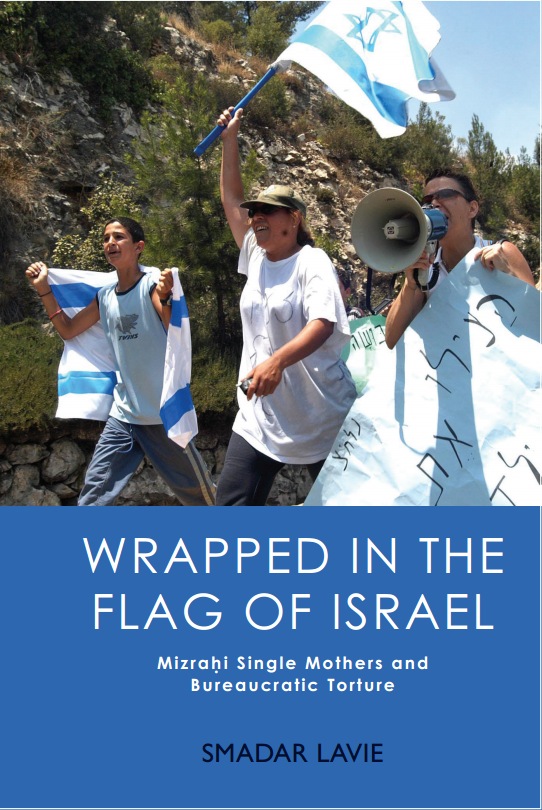
ISS21 Seminar and Book Launch on Thursday 11th September, 3-5pm, CACSSS Seminar Room, O'Rahilly Building
Read more -
Licencees in the Private Rented Sector
16 Nov 2017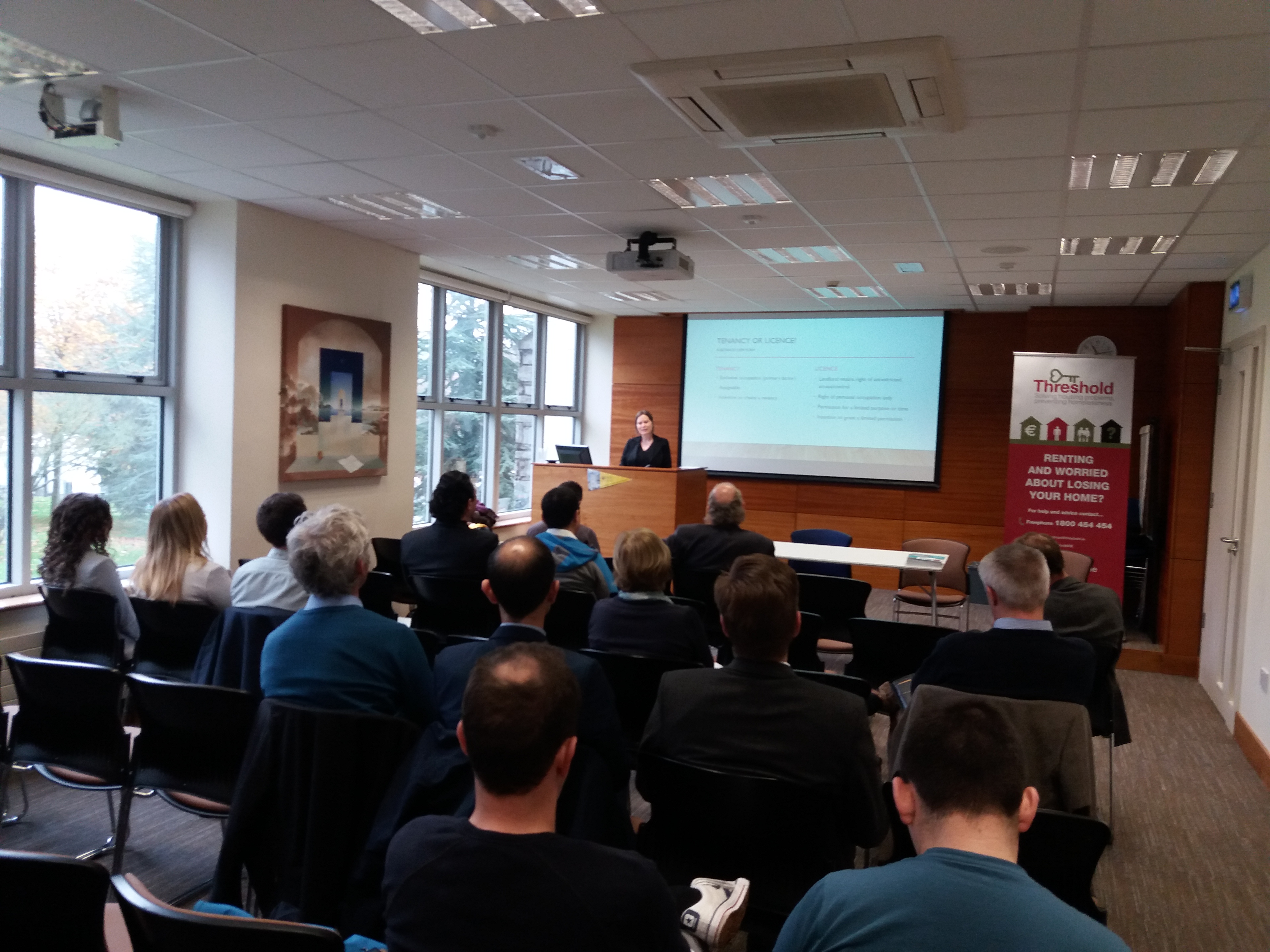
A recent seminar on 'Licensees in the Private Rented Sector: A Forgotten Sub sector?' was hosted by the School of Applied Social Studies, Threshold and ISS21.
Read more -
Forthcoming Seminar: Emerging Research on Public Sector Work
31 Oct 2013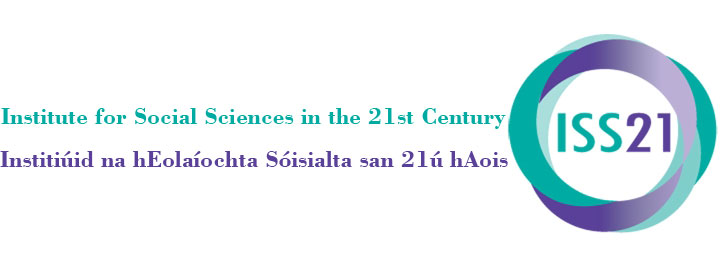
A forthcoming ISS21 seminar will present new research data and perspectives on the experience of working in the public sector in Ireland.
CACSSS Seminar Room, G27 O’Rahilly Building, 1.30-3.00PM, Wednesday 13th November 2013
Read more -
Public Policy Seminar Family Caring: Experiences, Transitions and Information (ISS21 Caring Research Working Group)
16 Nov 2017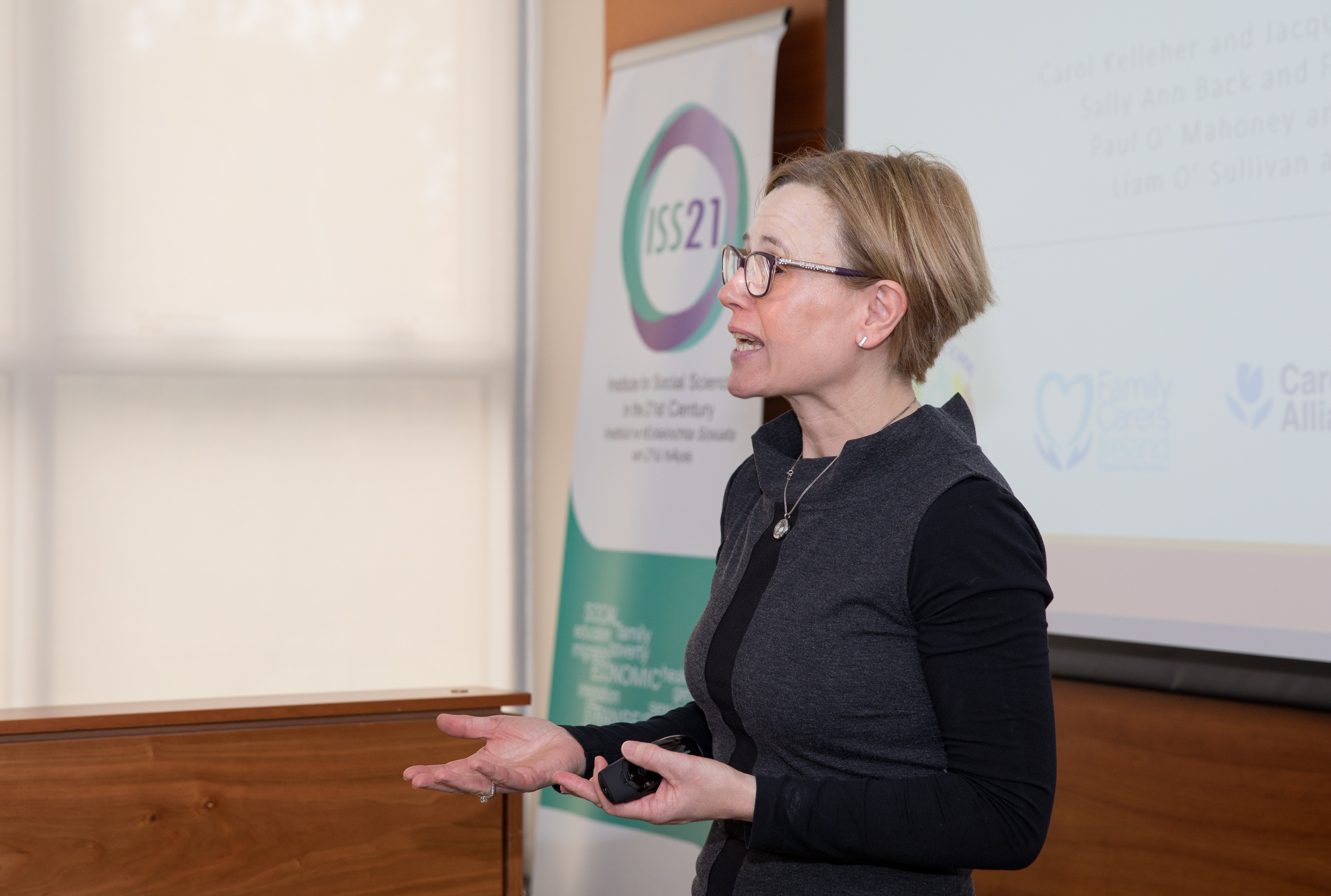
On 6 November 2017 the ISS21 Caring Research Working Group hosted a seminar on family caring in Ireland, at which reports from two IRC New Foundations projects were officially launched.
Read more -
Transformation of the community, voluntary and co-operative sectors?
20 Mar 2017
The new faces of community, voluntary and cooperative organisations in England: Are contracts and markets transforming their character and what are the implications for Ireland?
Read more -
Two-panel Workshop: The EU and the southern Mediterranean
28 May 2015
The EU and the southern Mediterranean
A two-panel workshop, 3-4 July 2014
Panel 1: ‘Disposable People’ - The Crisis in the Mediterranean
Panel 2: EU Cultural Policies and the Southern Mediterranean
Read more -
Connections: Exploring Acquired Brain Injury through the Medium of Dance
10 Mar 2016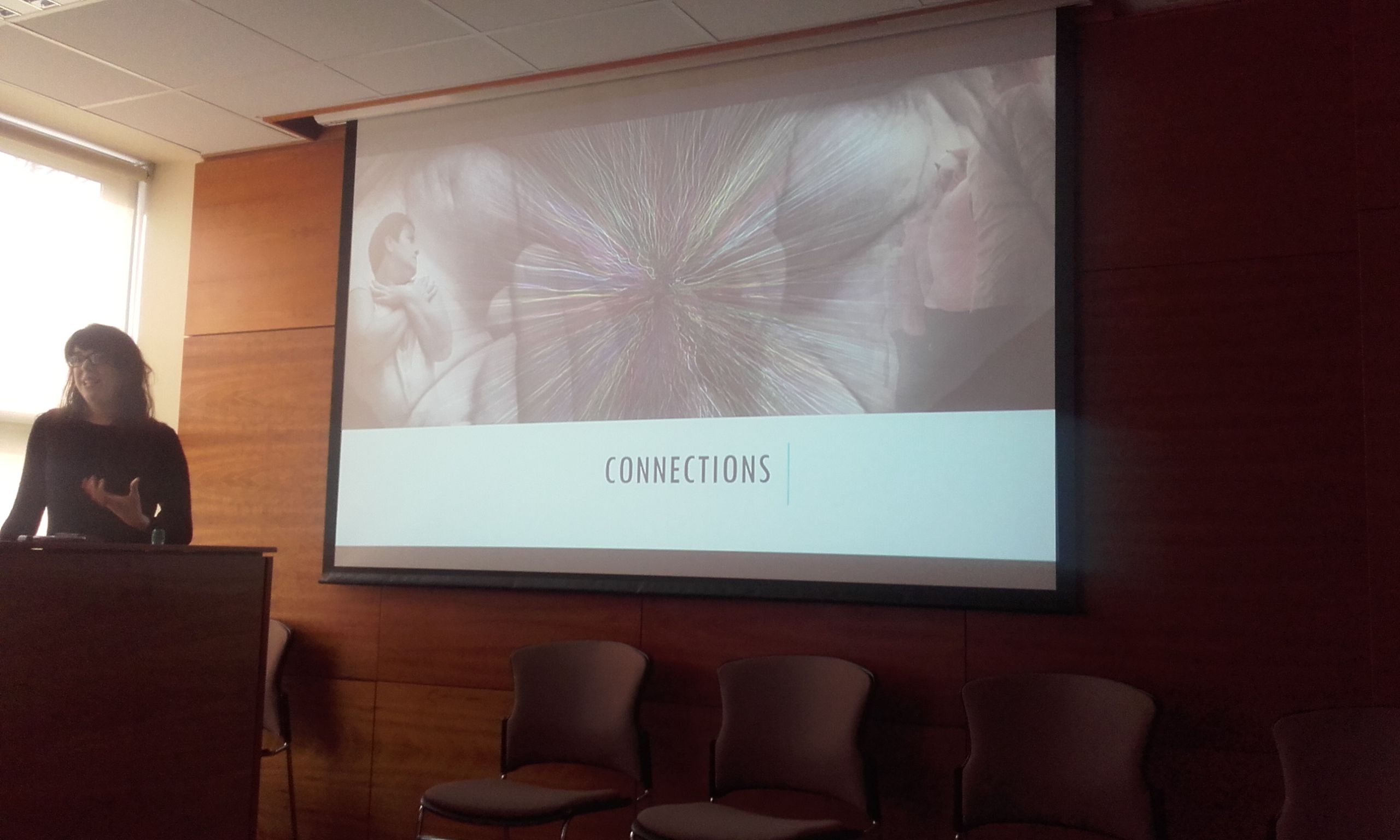
The ISS21 Disability and Mental Health Research Cluster held a seminar, supported by ISS21 and the CACSSS Research Fund, on the theme of dance and acquired brain injury on 25th February 2016. The key contributors were Inma Pavon (UCC), Paula Larkin (Headway) and contributing dancers on the Connections project.
Read more -
ISS21 Research Findings Showcase Day
09 Jun 2015
ISS21 Research Findings Showcase Day:
Towards a Better Understanding of Children’s and Young People’s Lives in Ireland
Monday 29th June 2015 (11.00am - 5.00pm)
Read more -
Changing Families in Ireland: the Social, Legal and Political Context
30 Apr 2015
Thursday 14th May 2015, 9.30am-4.30pm
CACSSS Seminar Room, O’Rahilly Building, UCC
ISS21’s Family, Gender, Sexualities Research Cluster is pleased to host a public symposium that will explore some of the key legal, social and political implications of the recently passed Children and Family Relationships Bill (2015) and the soon to be held referendum on same sex marriage (which will be held on May 22nd 2015).
Read more -
PhD Fellowship - closing date July 14th 2014
30 Apr 2014
Applications are invited from candidates who wish to carry out original social science research for the degree of PhD (or PhD Track or MPhil as a pathway to a PhD) in Applied Social Studies at University College Cork.
Read more -
Collective Social Futures Festival of Social Science
16 Dec 2024.png)
The 2024 CSF Festival of Social Science was built on last year’s inaugural event showcasing social science research undertaken at UCC. An evening at The Shtepps celebrated local artists, musicians and poets demonstrating how social science research can collaborate with the arts to conduct, connect, and communicate research on key local and global challenges. A full day symposium followed in the Aula Maxima with oral and poster presentations, panel discussions, a keynote speech by Professor Linda Connolly and the launch of the UCC Futures website.
Read more -
ISS21 Newsletter 2025
06 Feb 2025
Learn more about the research and activities of ISS21 by reading our 2025 Newsletter
Read more -
UCC Symposium: Bridging Research, Advocacy and Activism
16 Feb 2026.png)
On Wednesday, 11 February, the UCC Refugee Week Research Symposium – Asylum, Migration and Community: Bridging Research, Advocacy and Activism Through Creative and Socially Engaged Research took place in the Aula Maxima.
Read more
Institute for Social Science in the 21st Century (ISS21)
Contact us
Top Floor, Carrigbawn/Safari Building, Donovan Road, Cork, T12 YE30

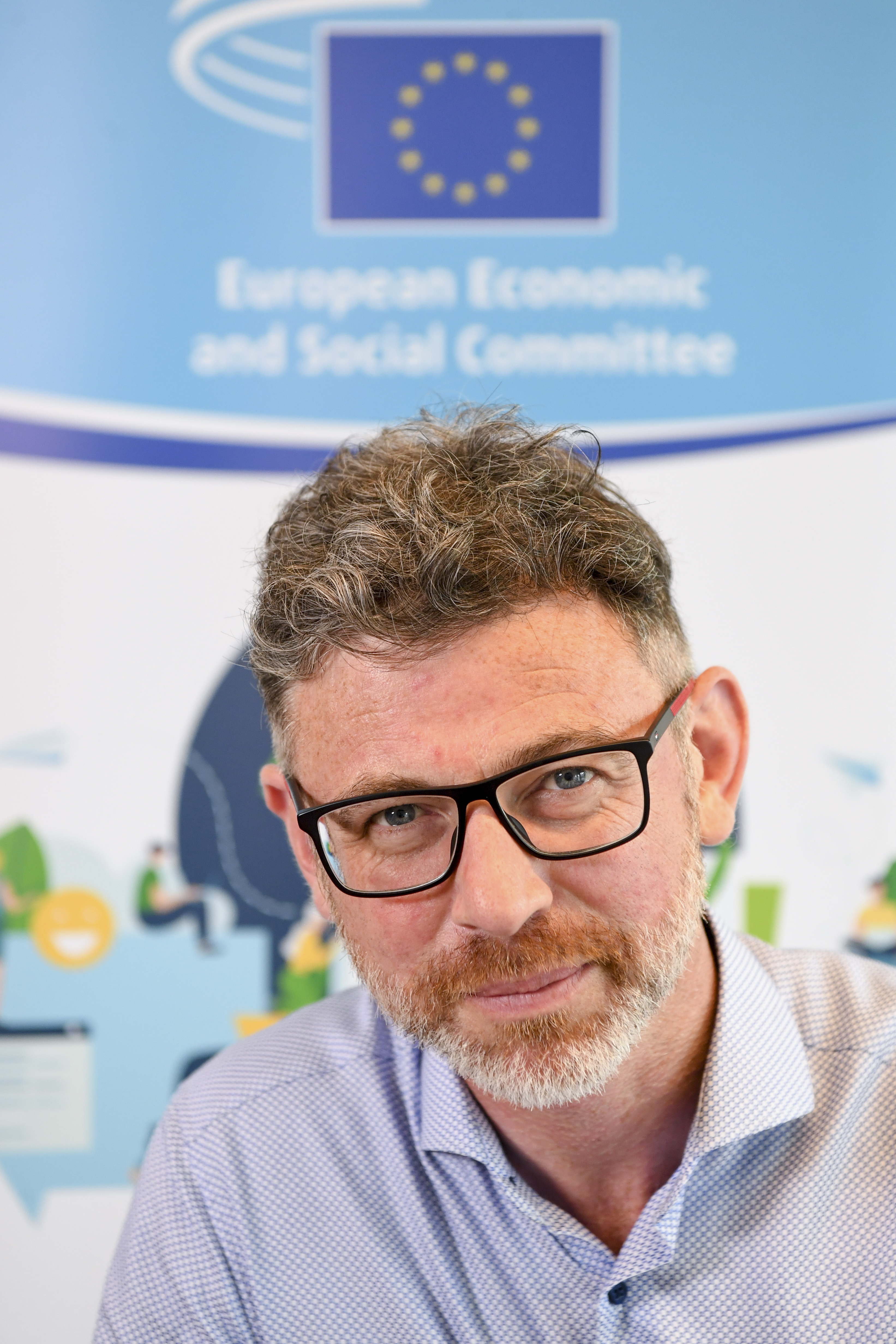
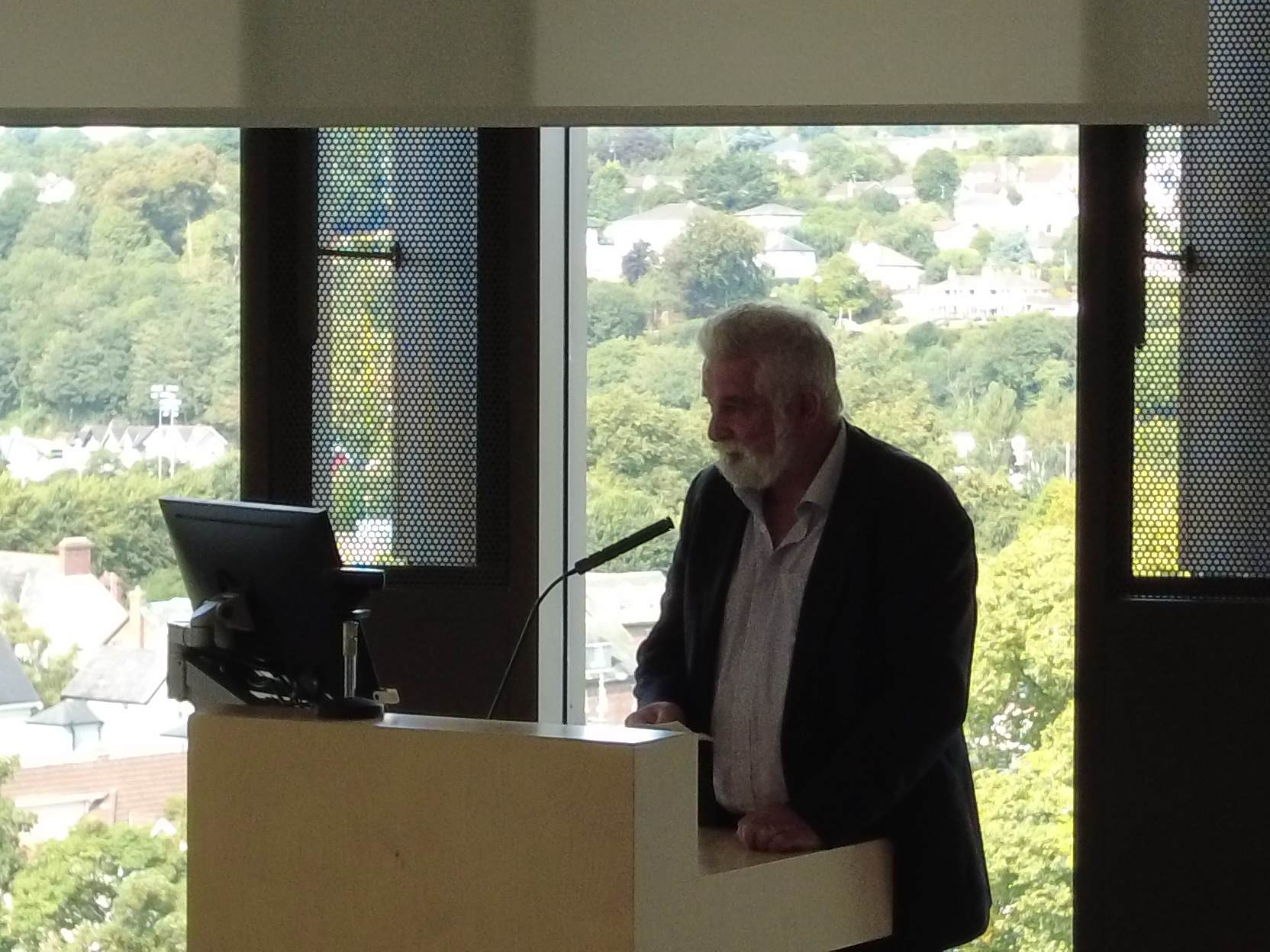
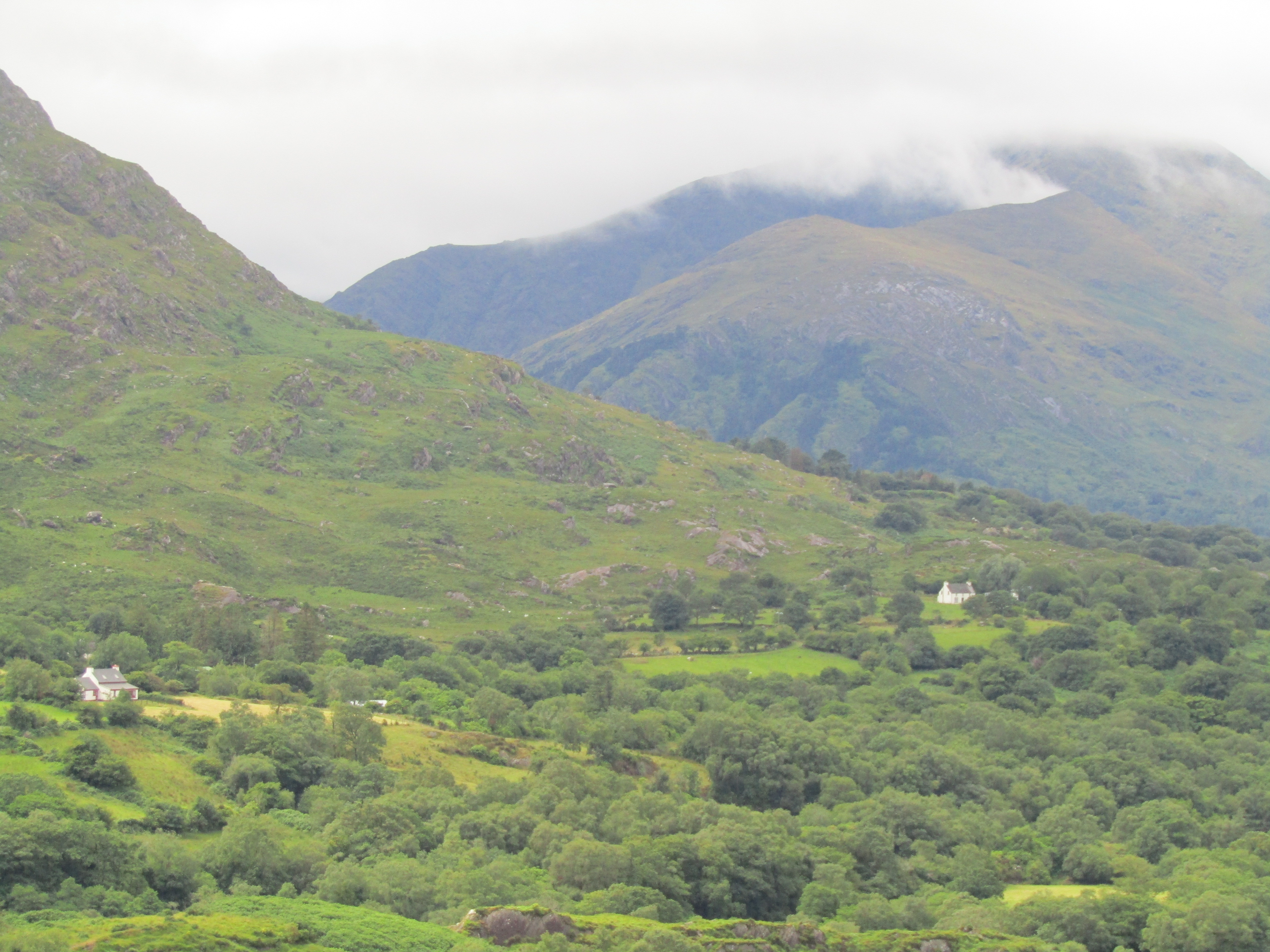
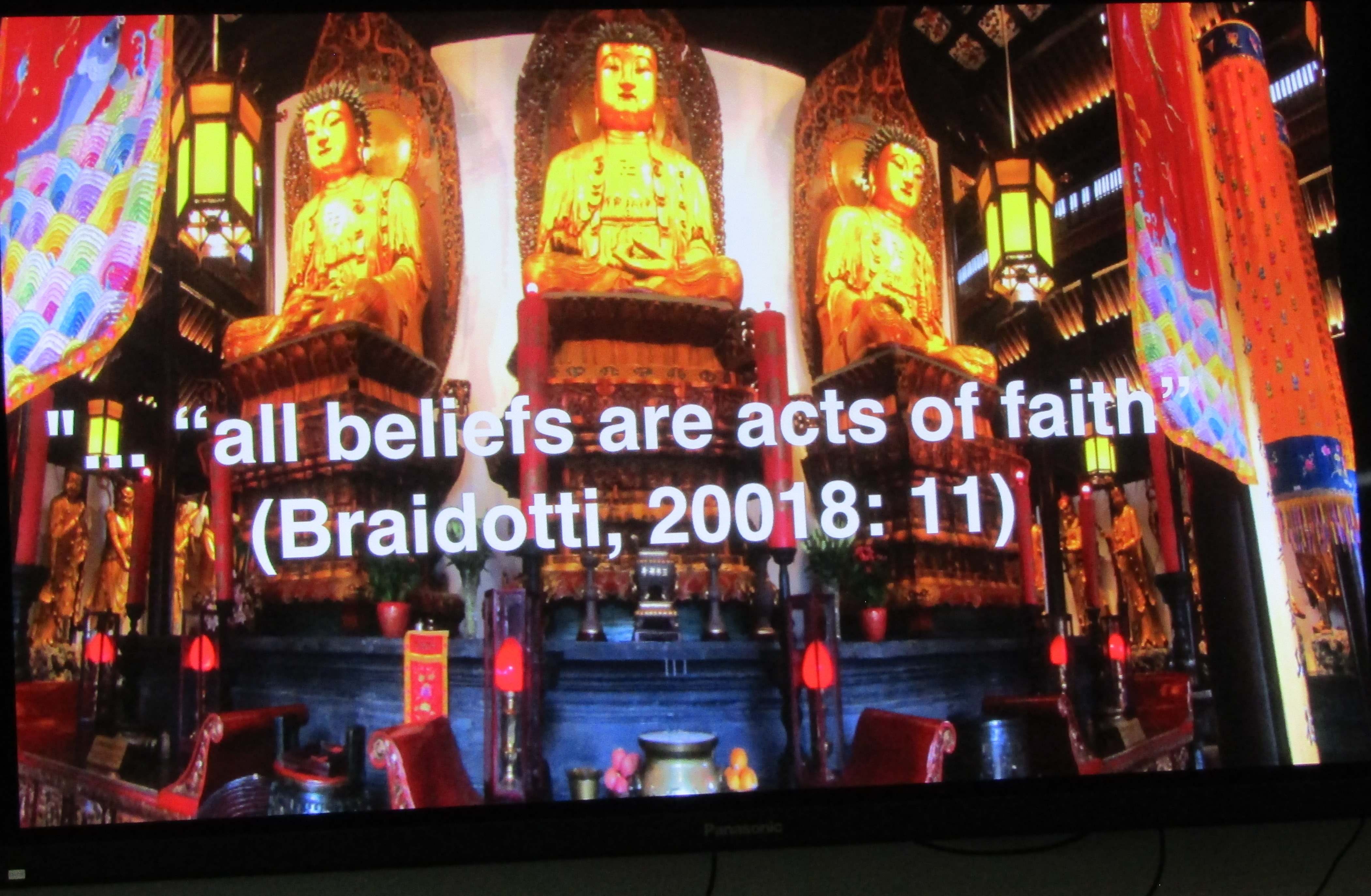
.JPG)
